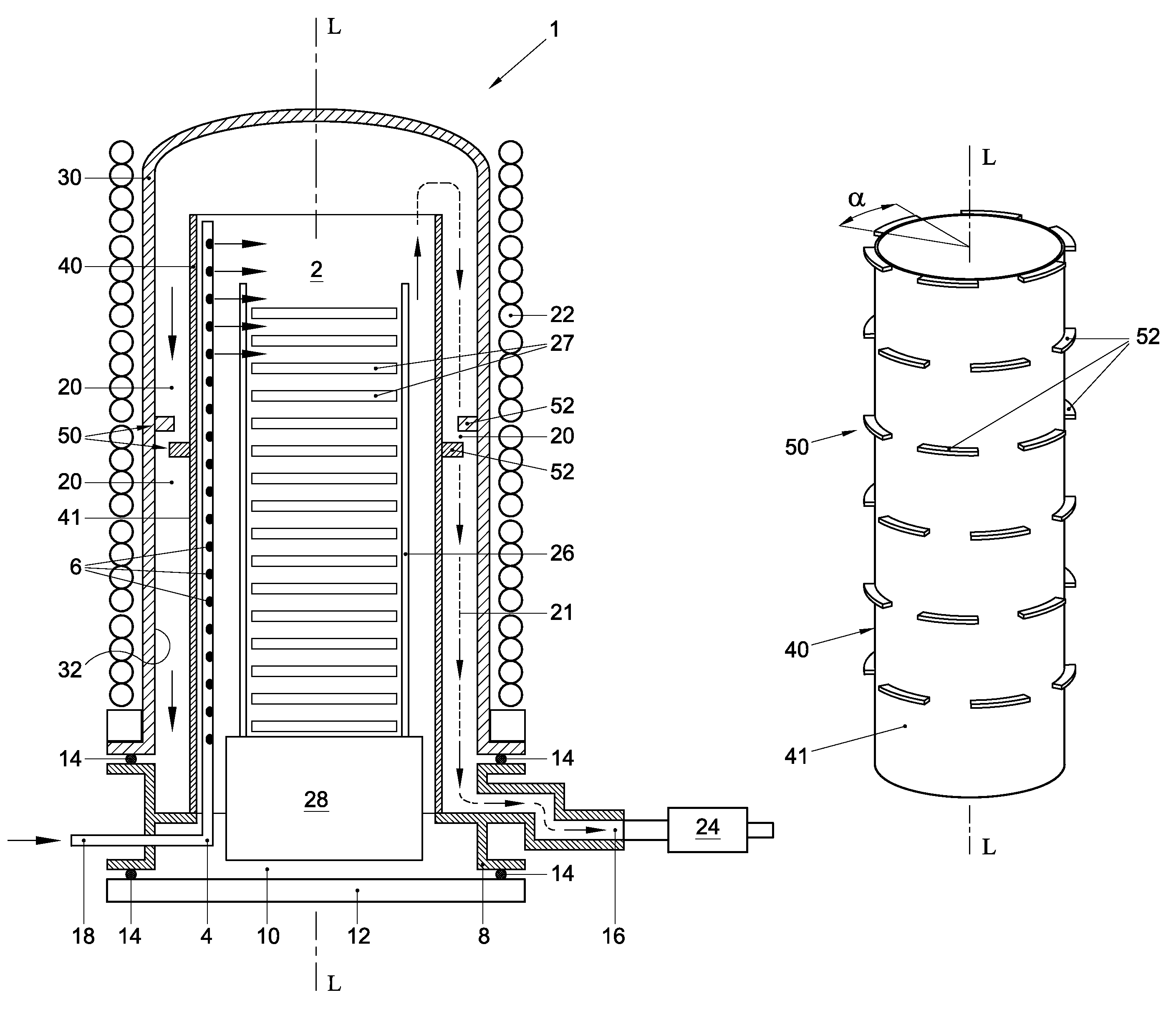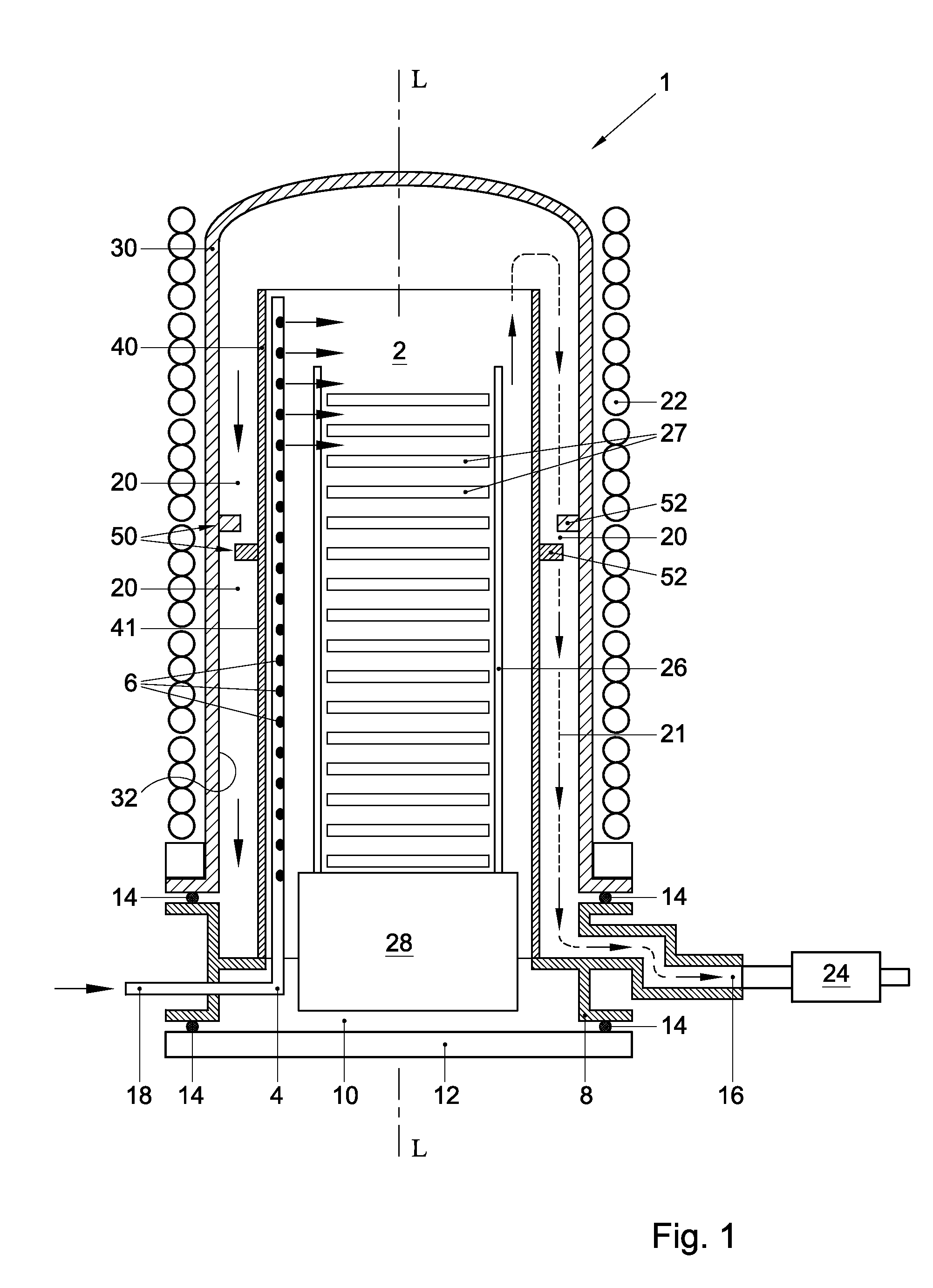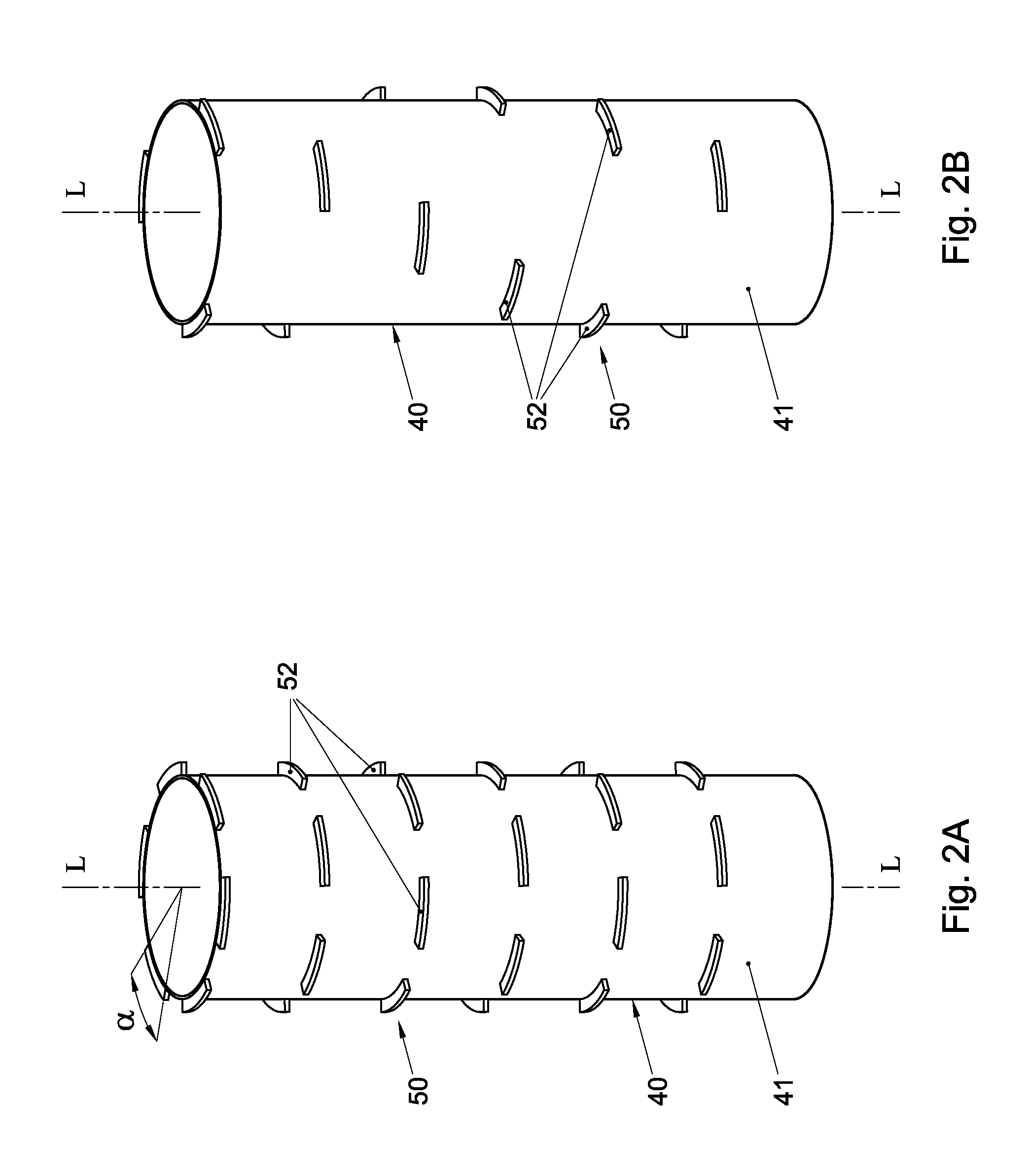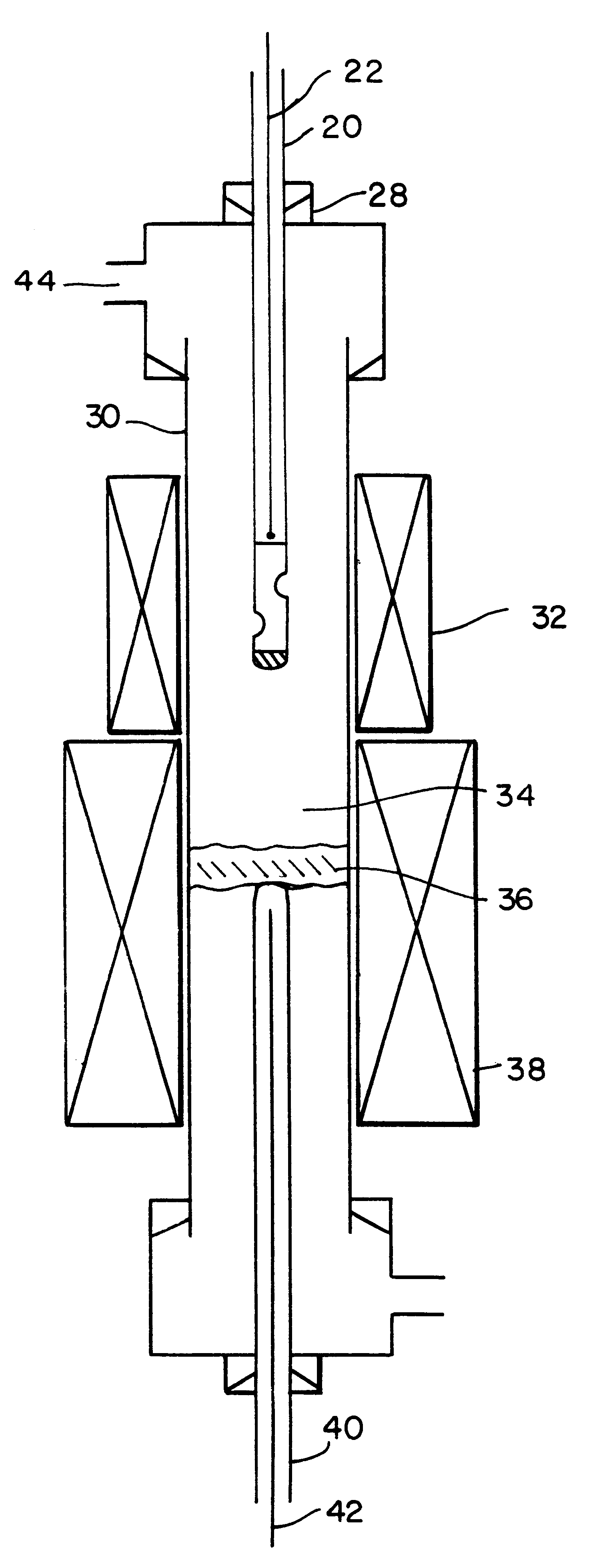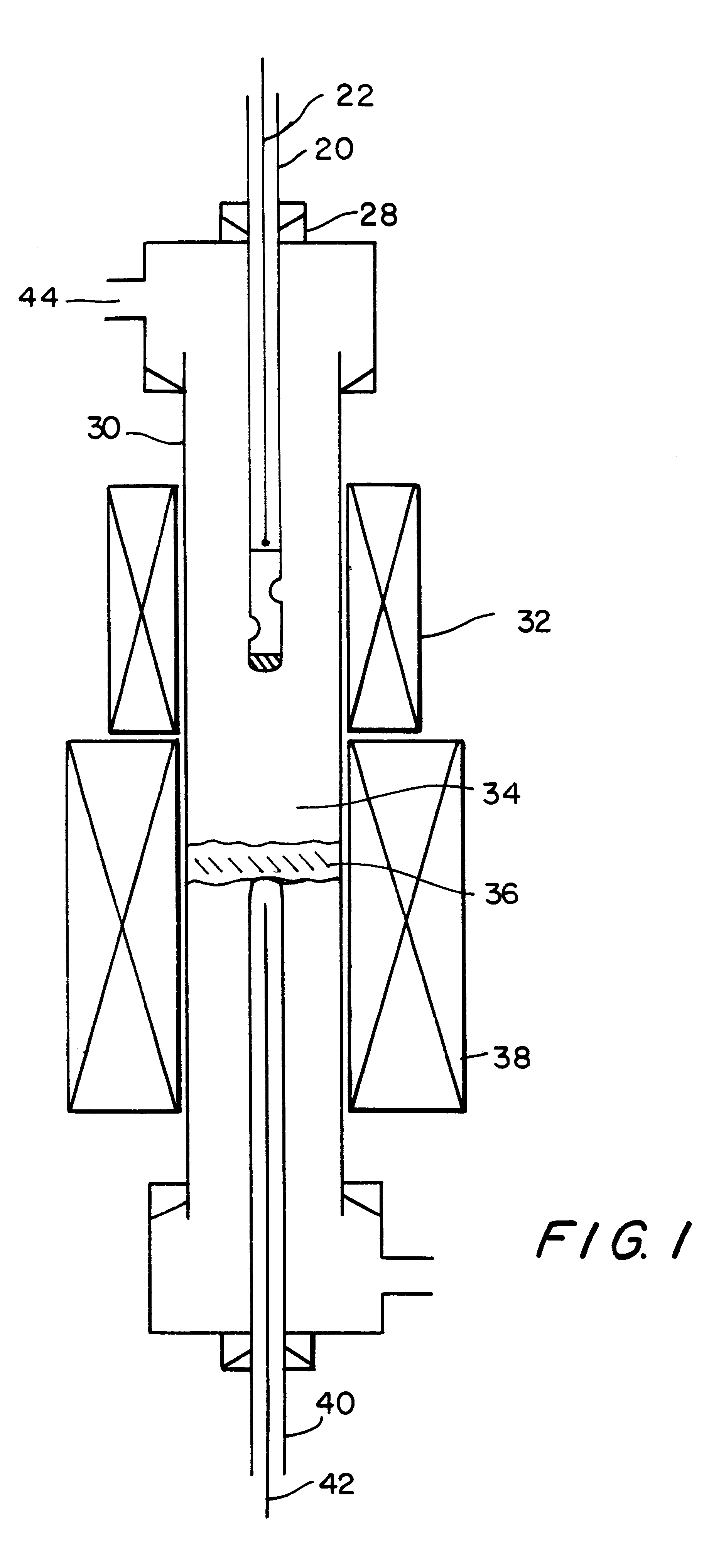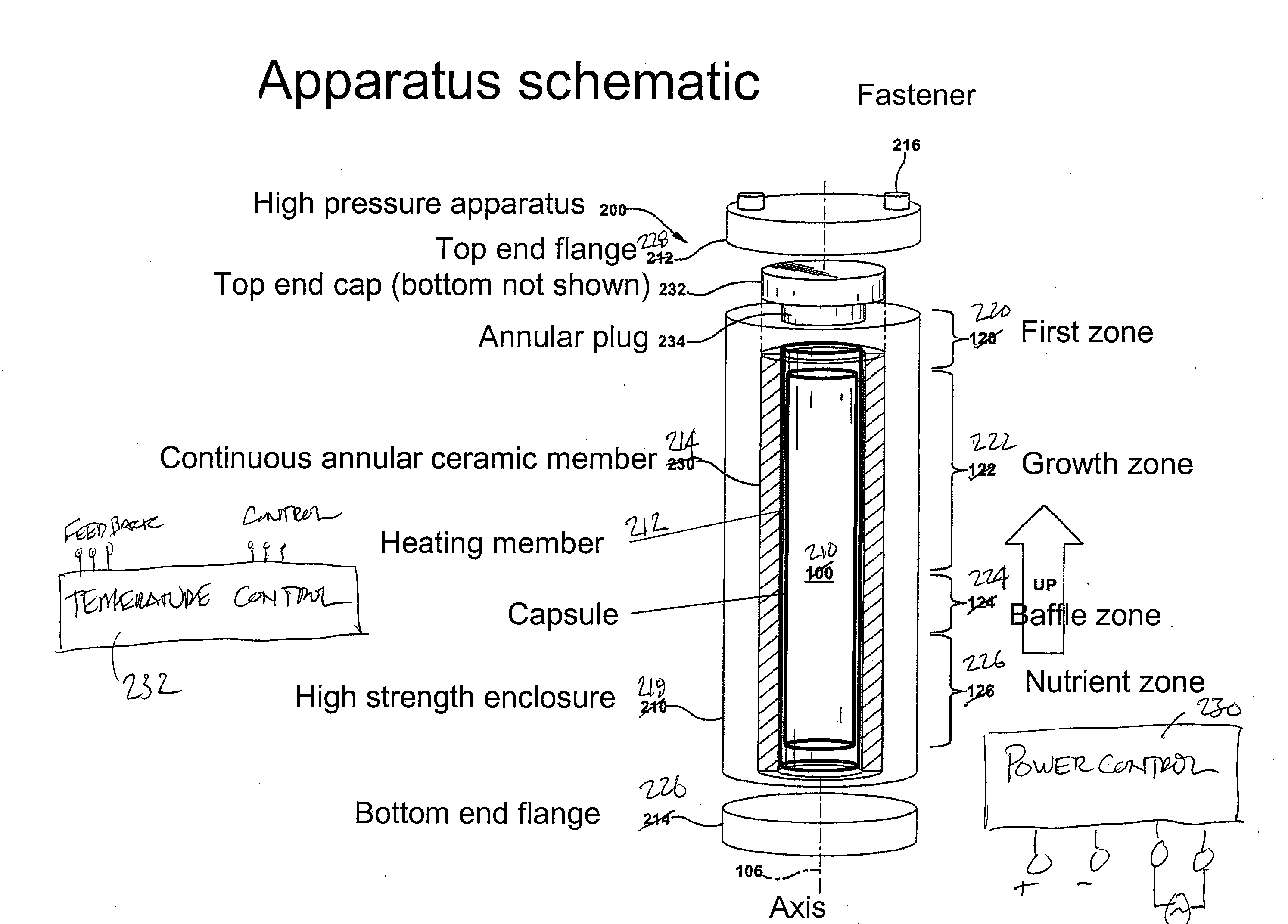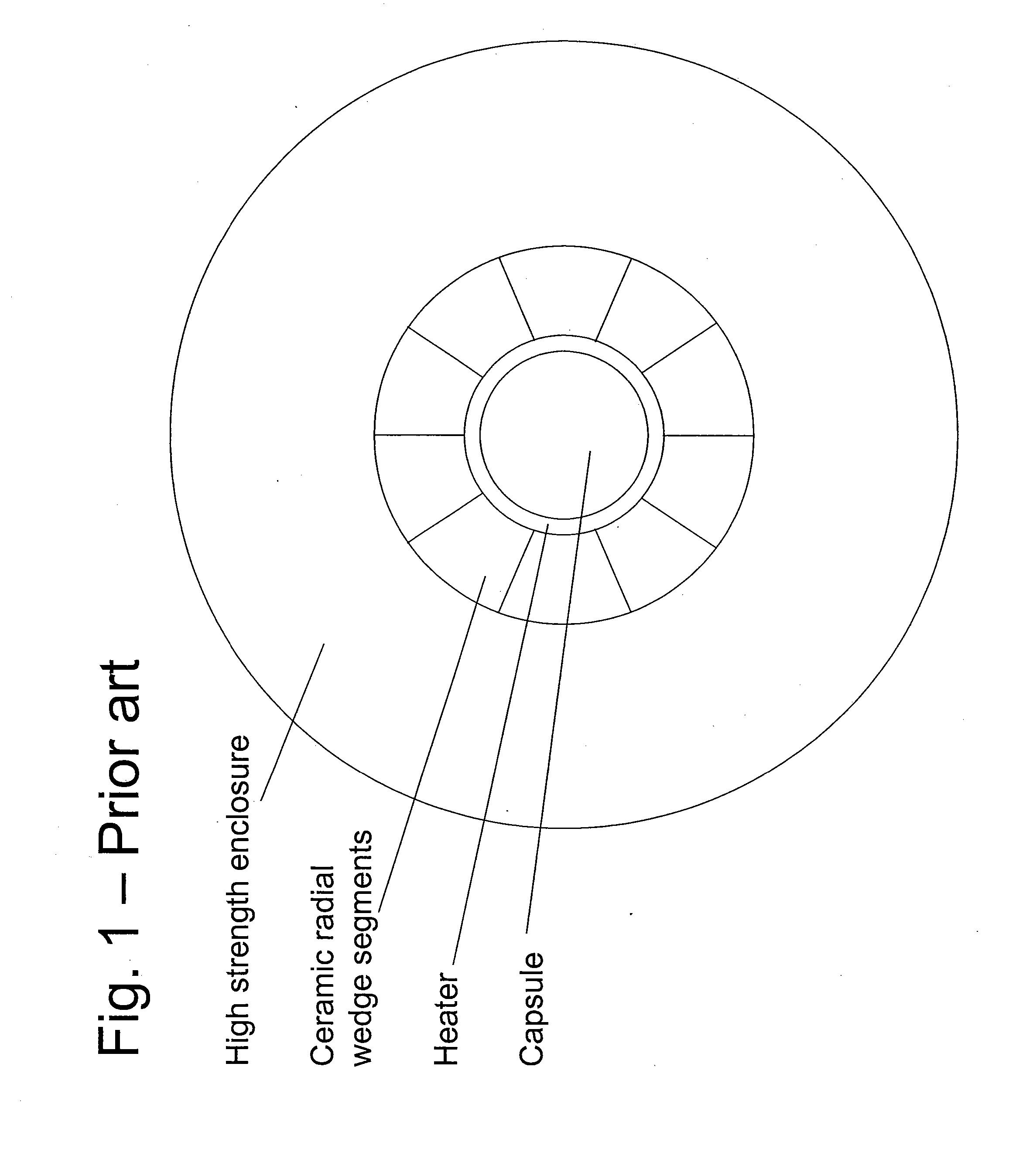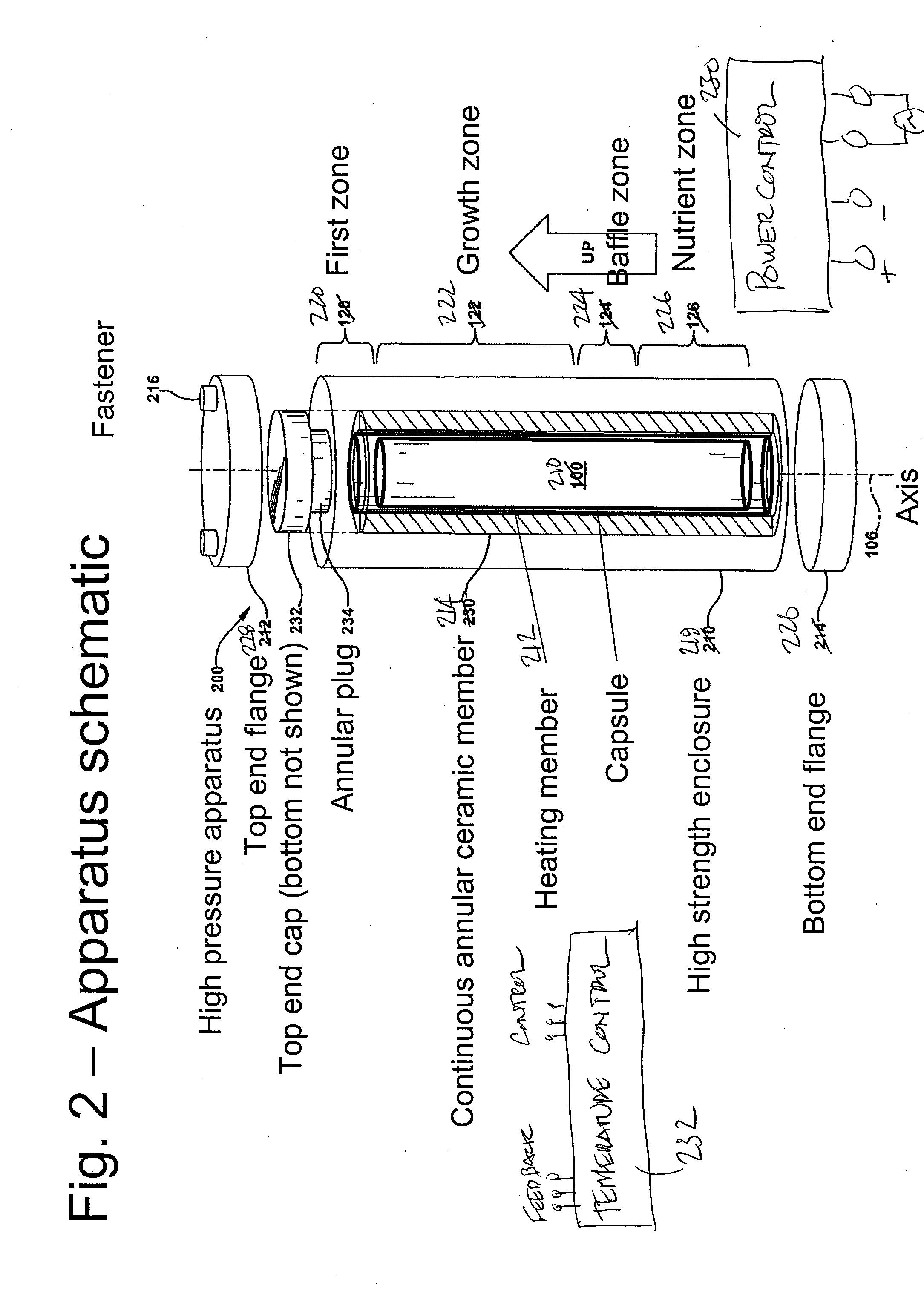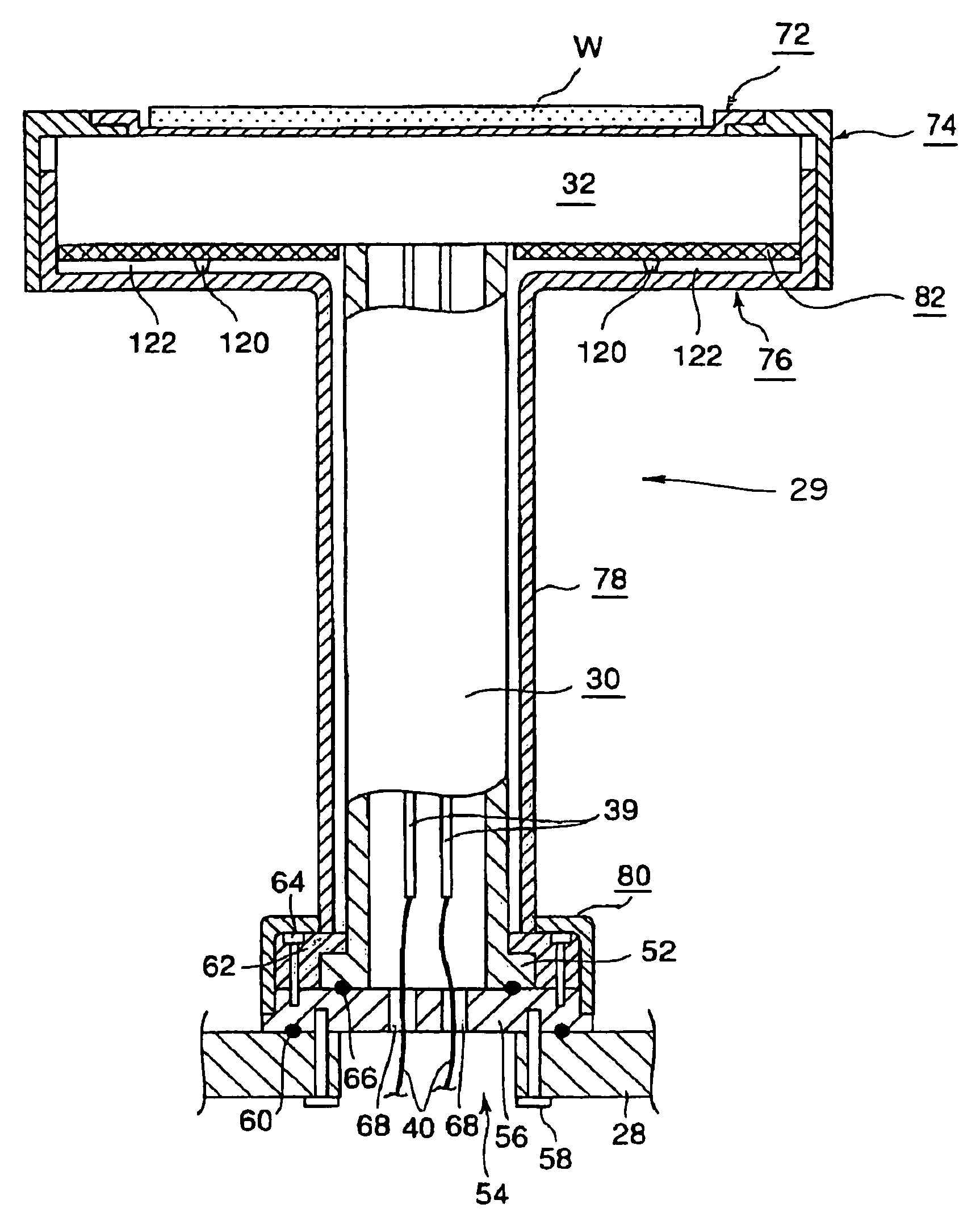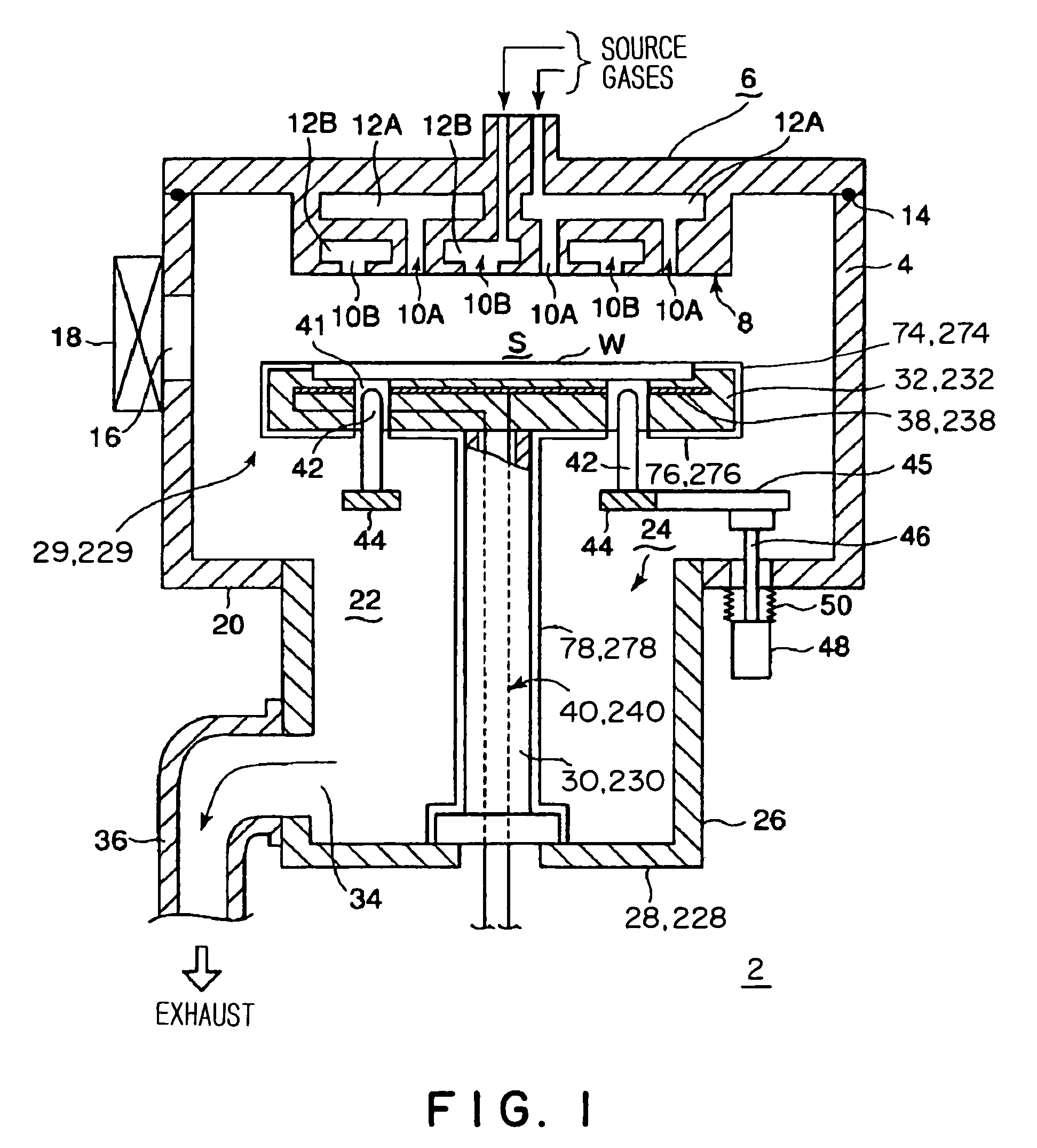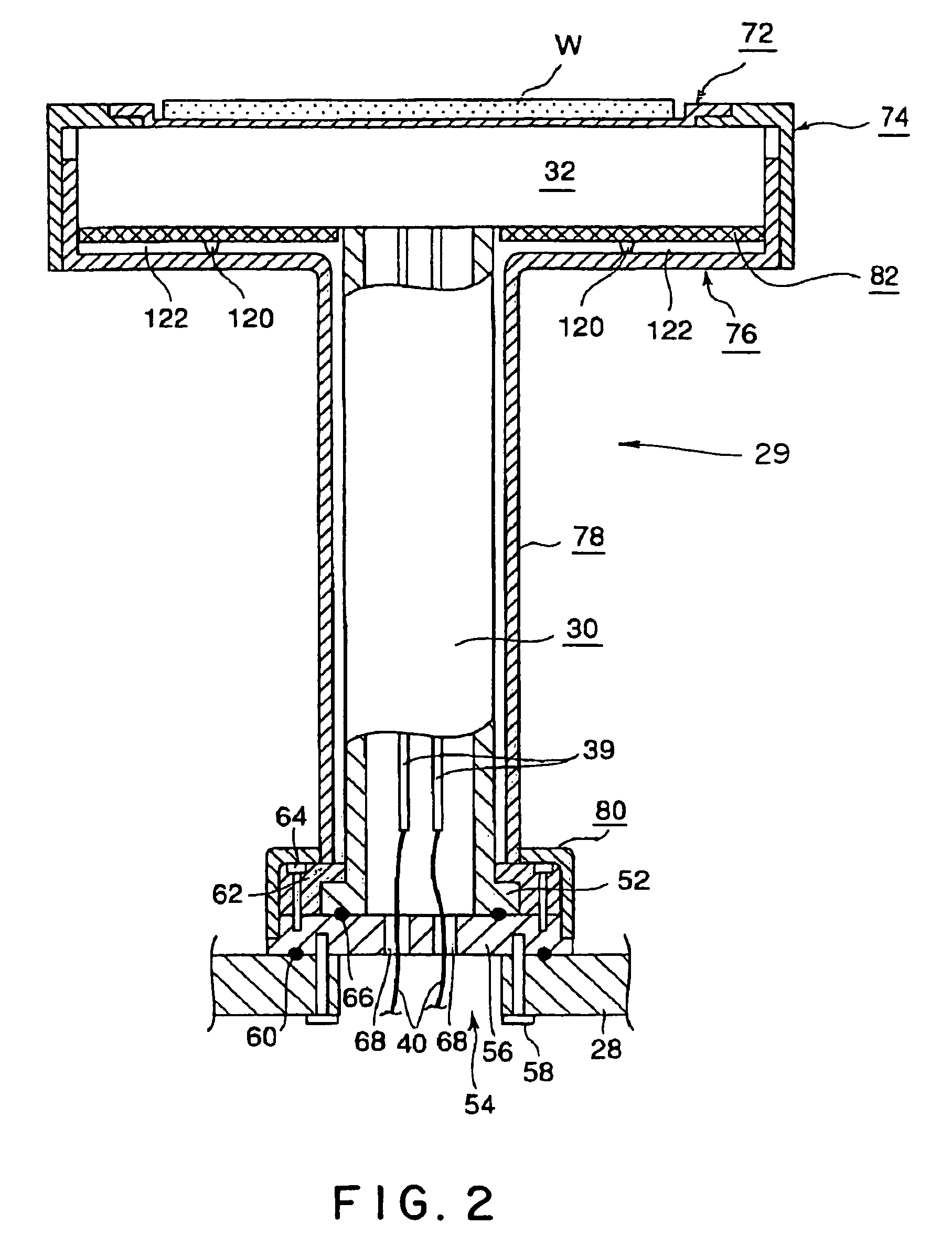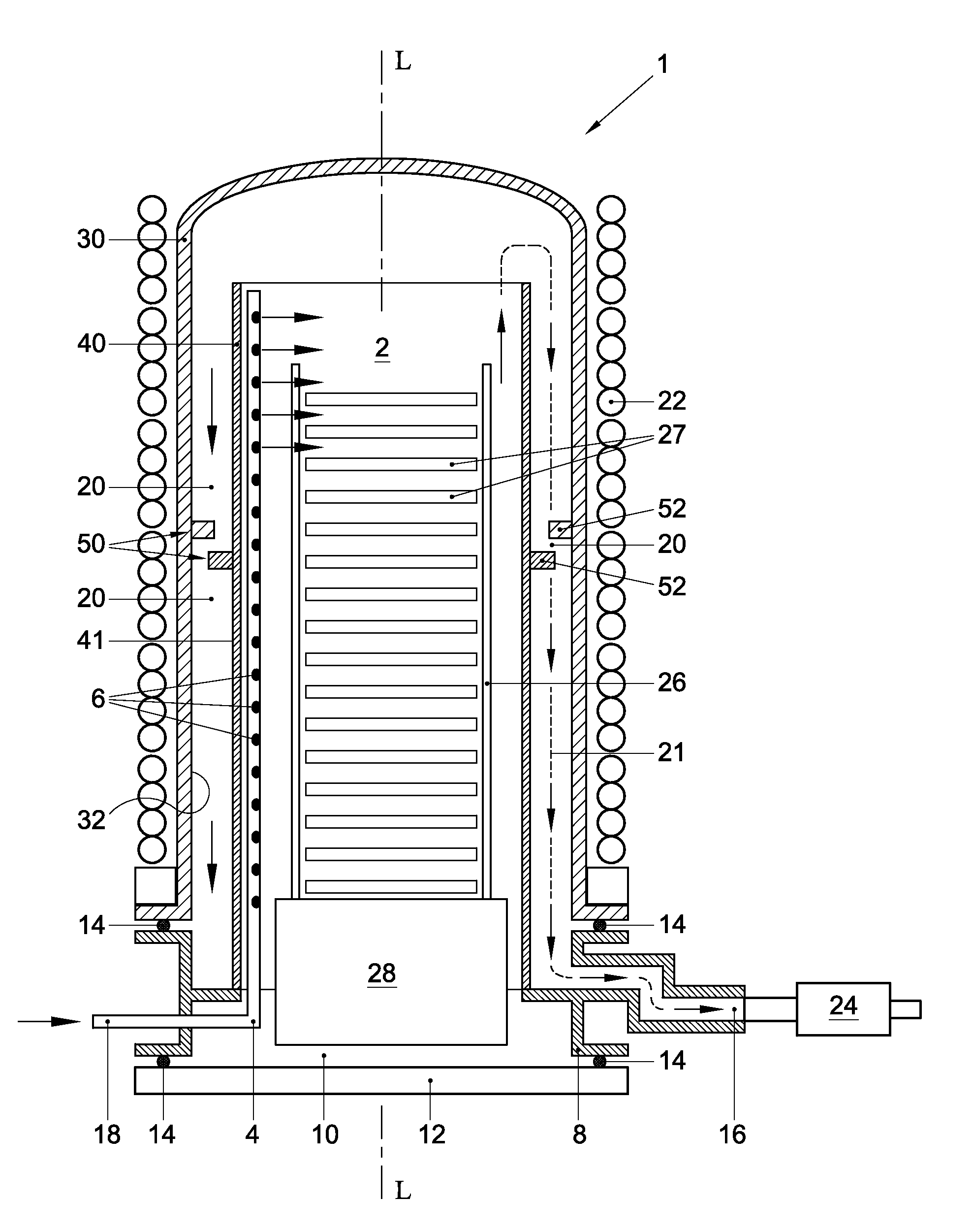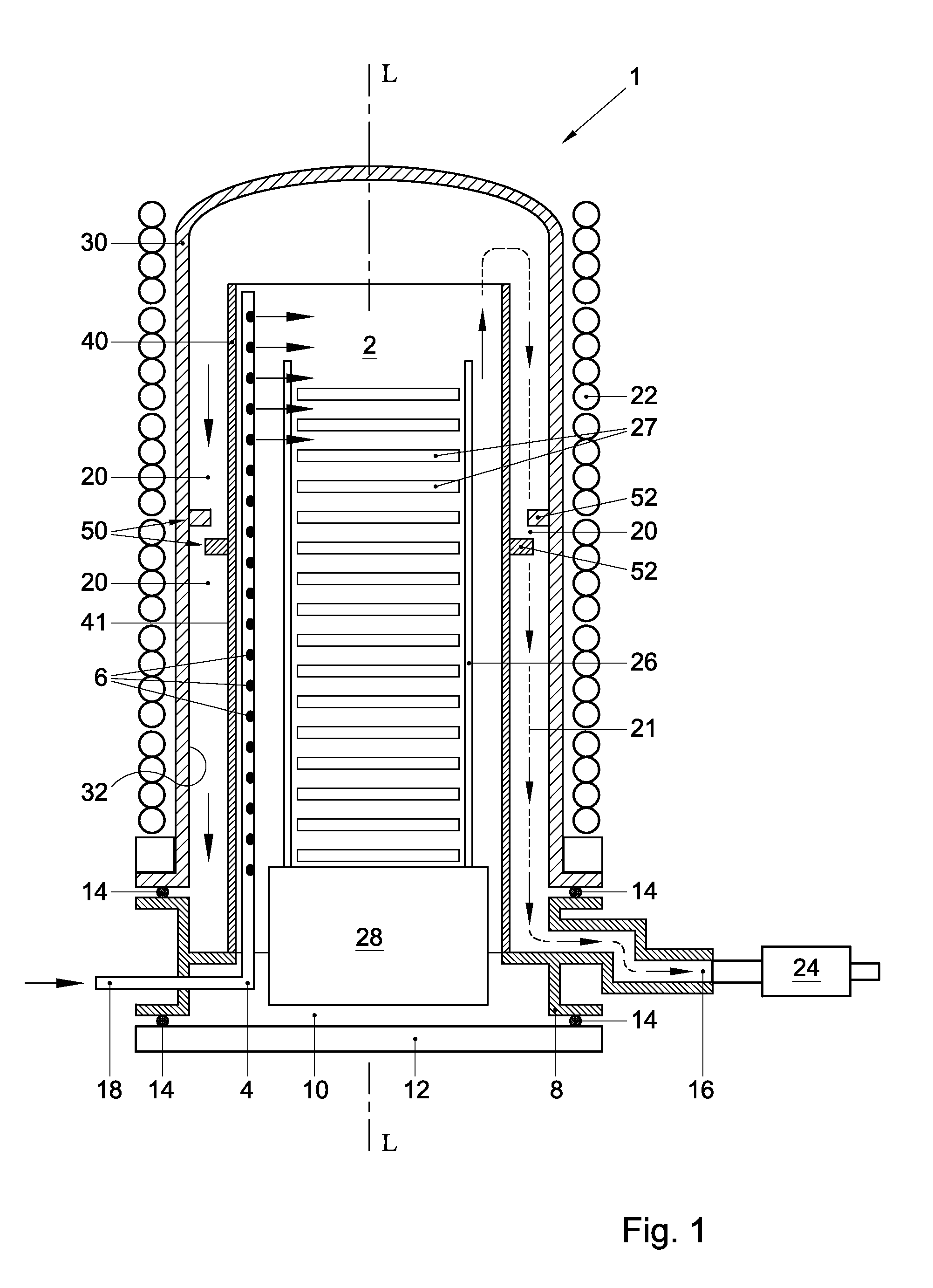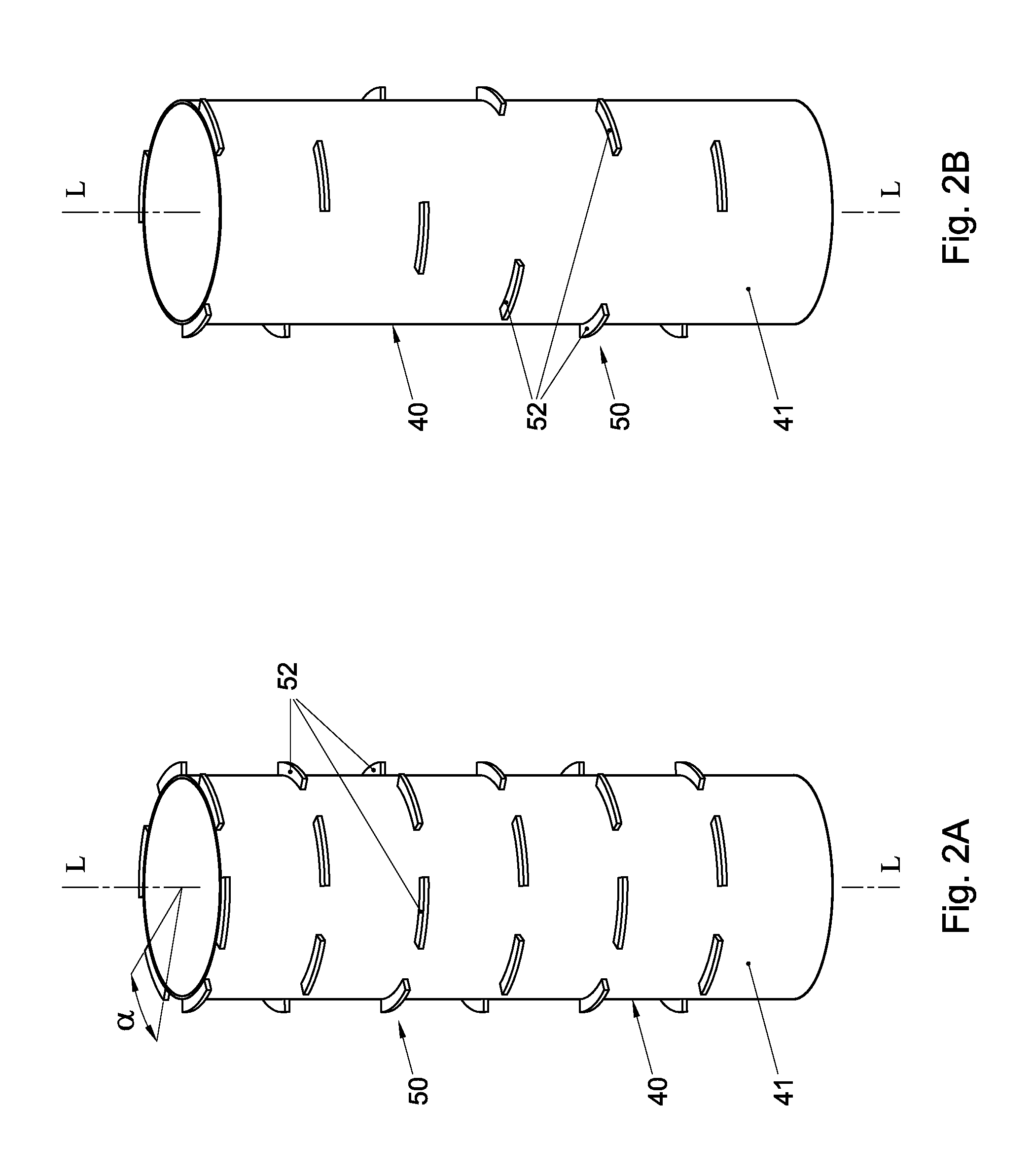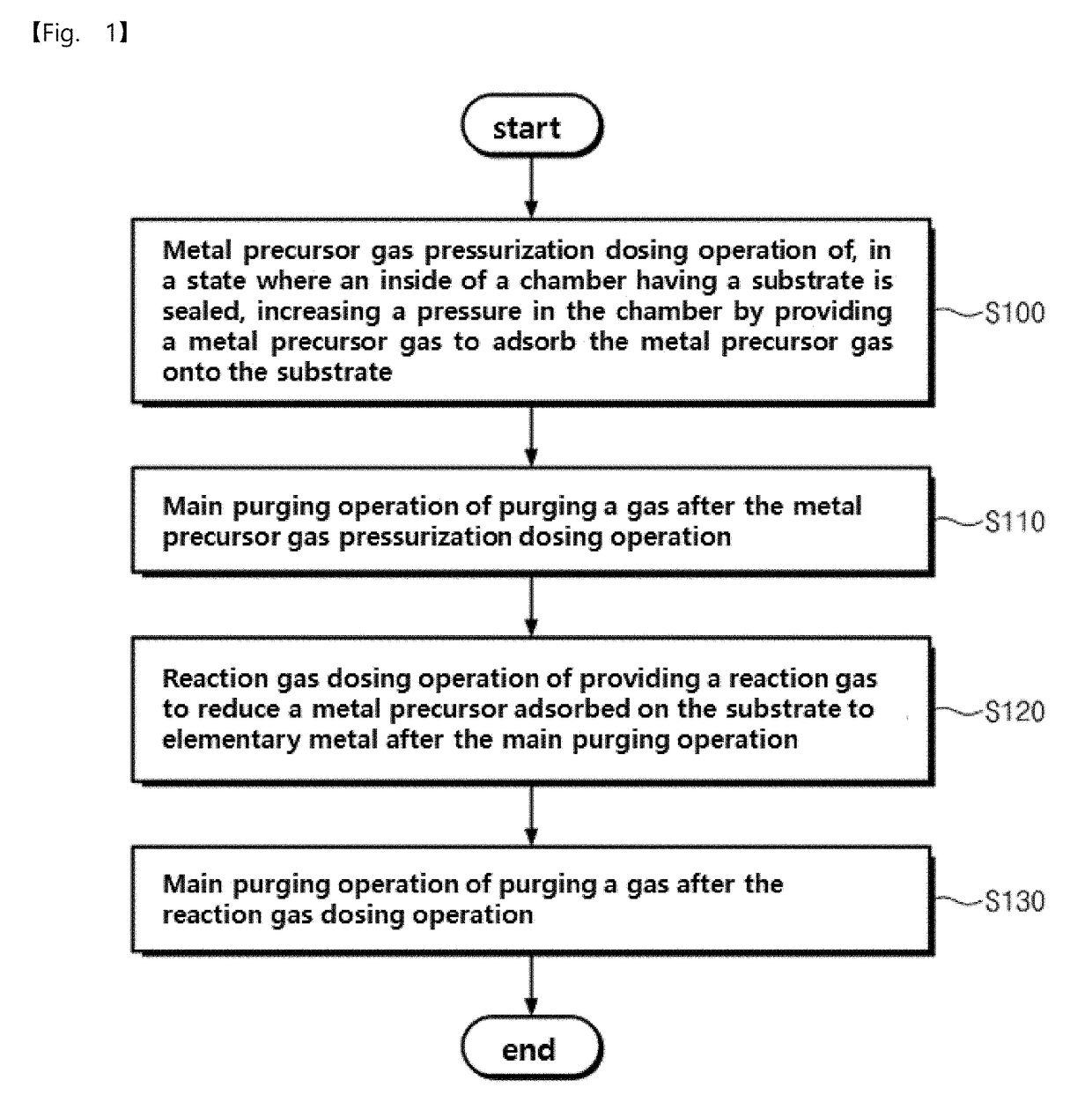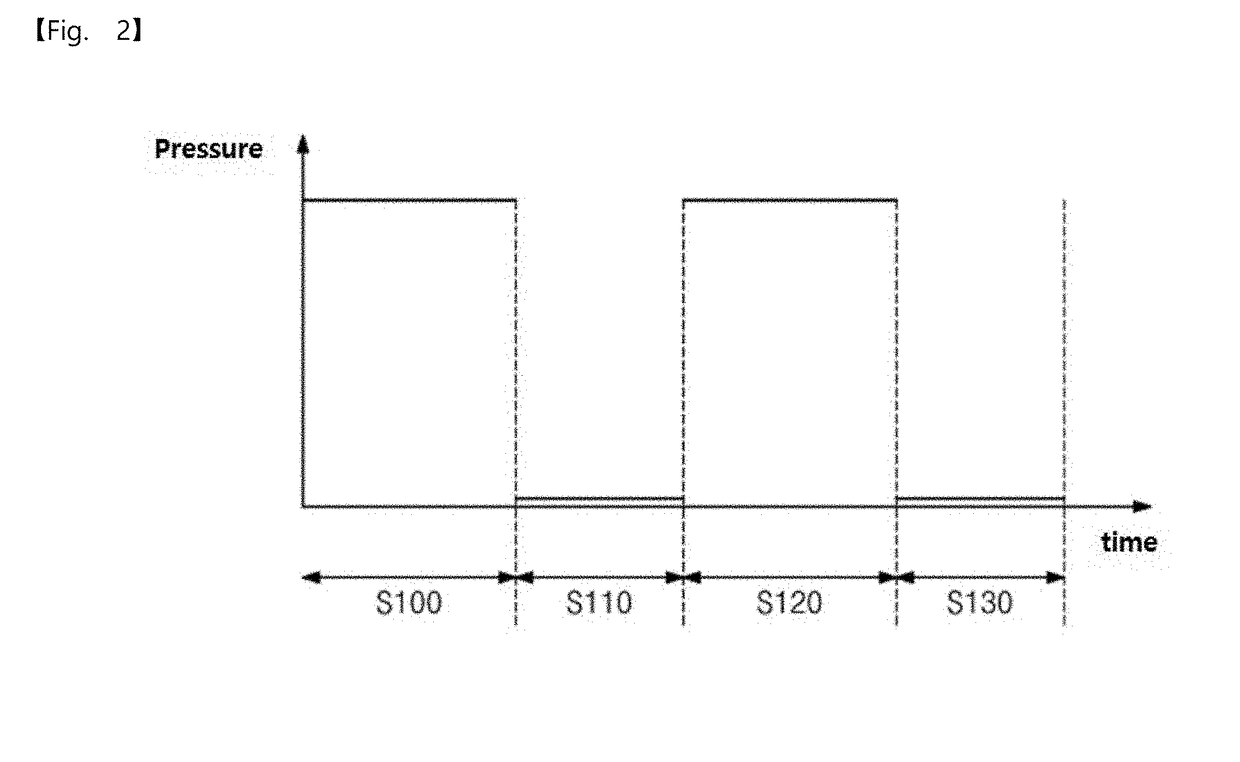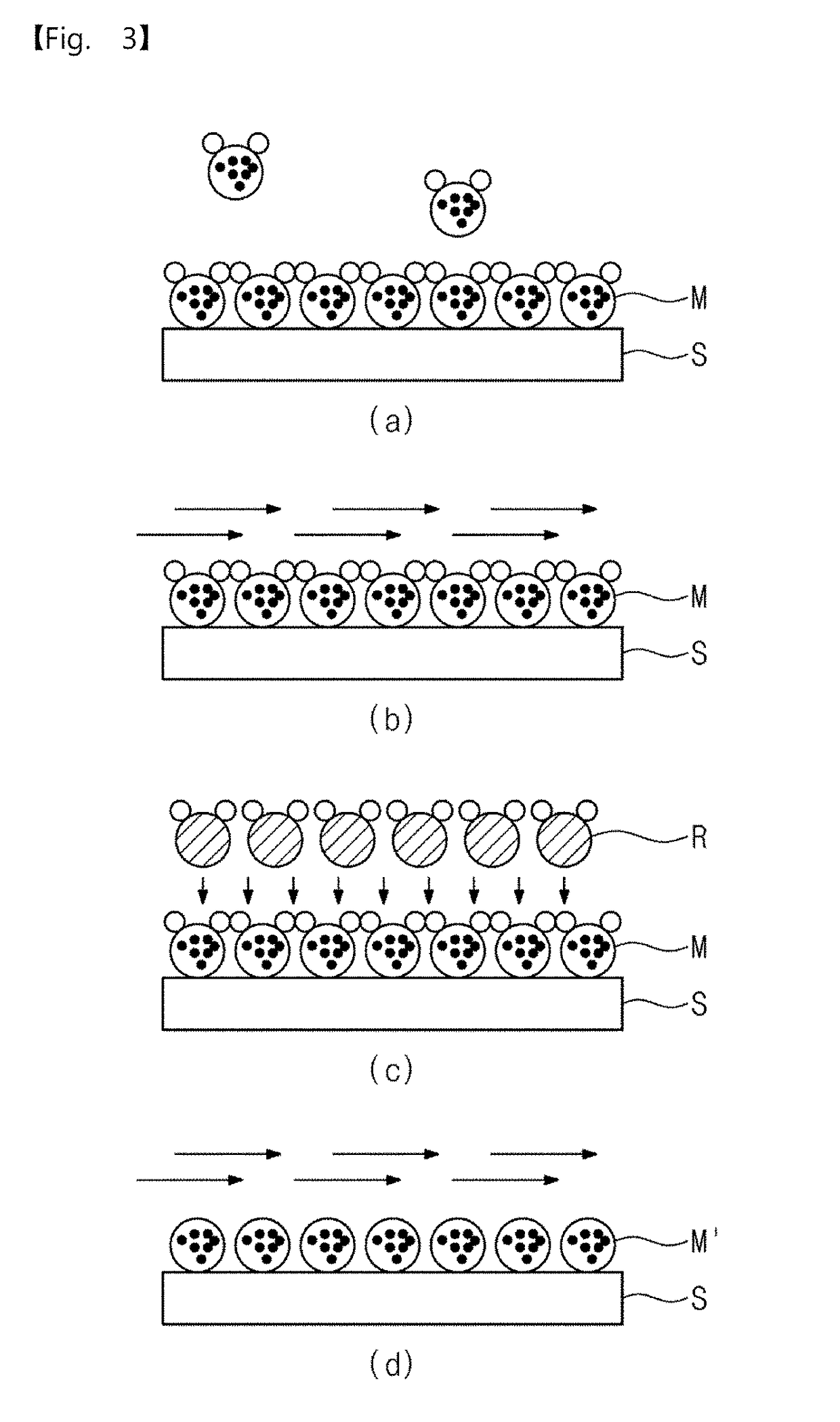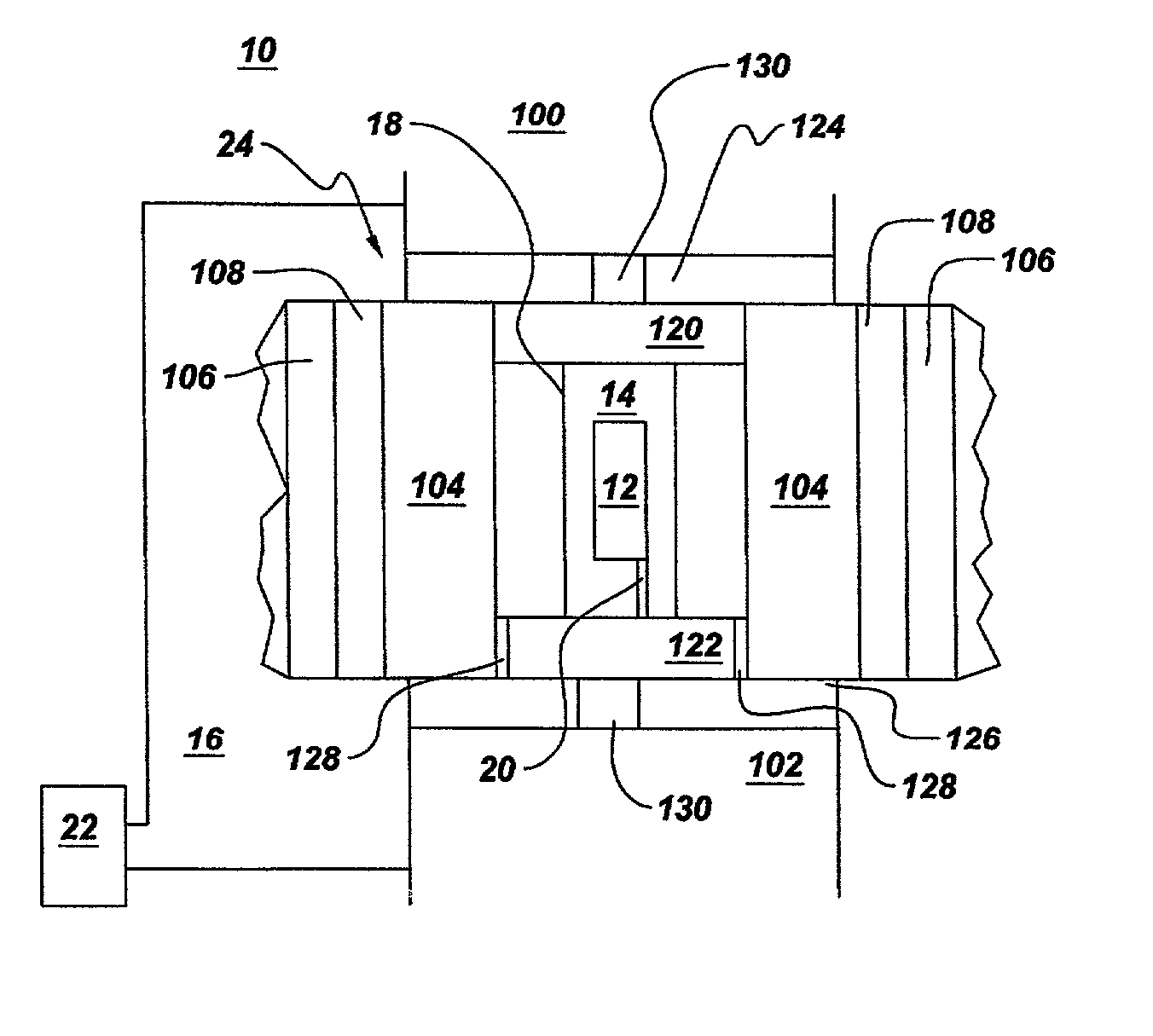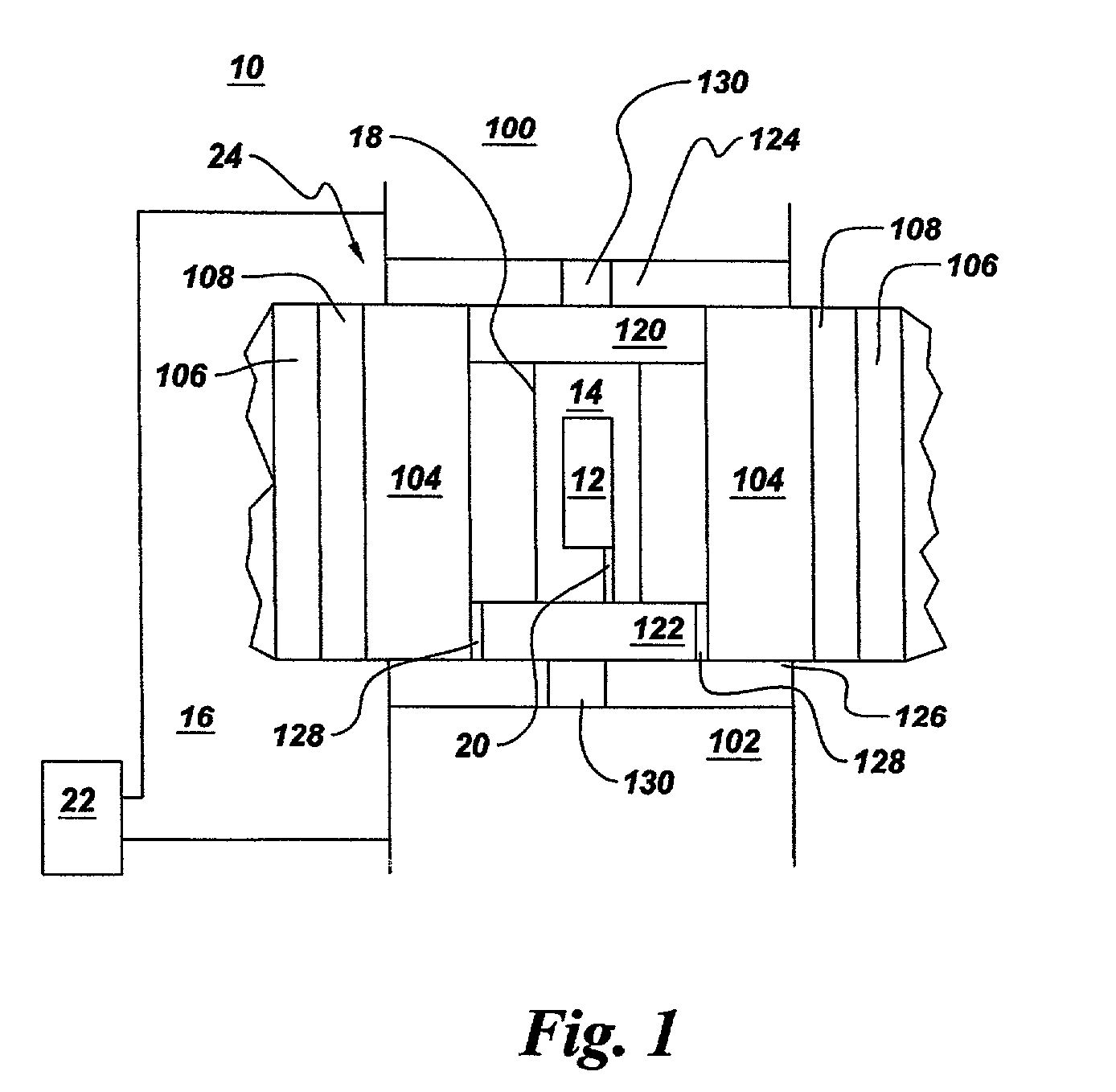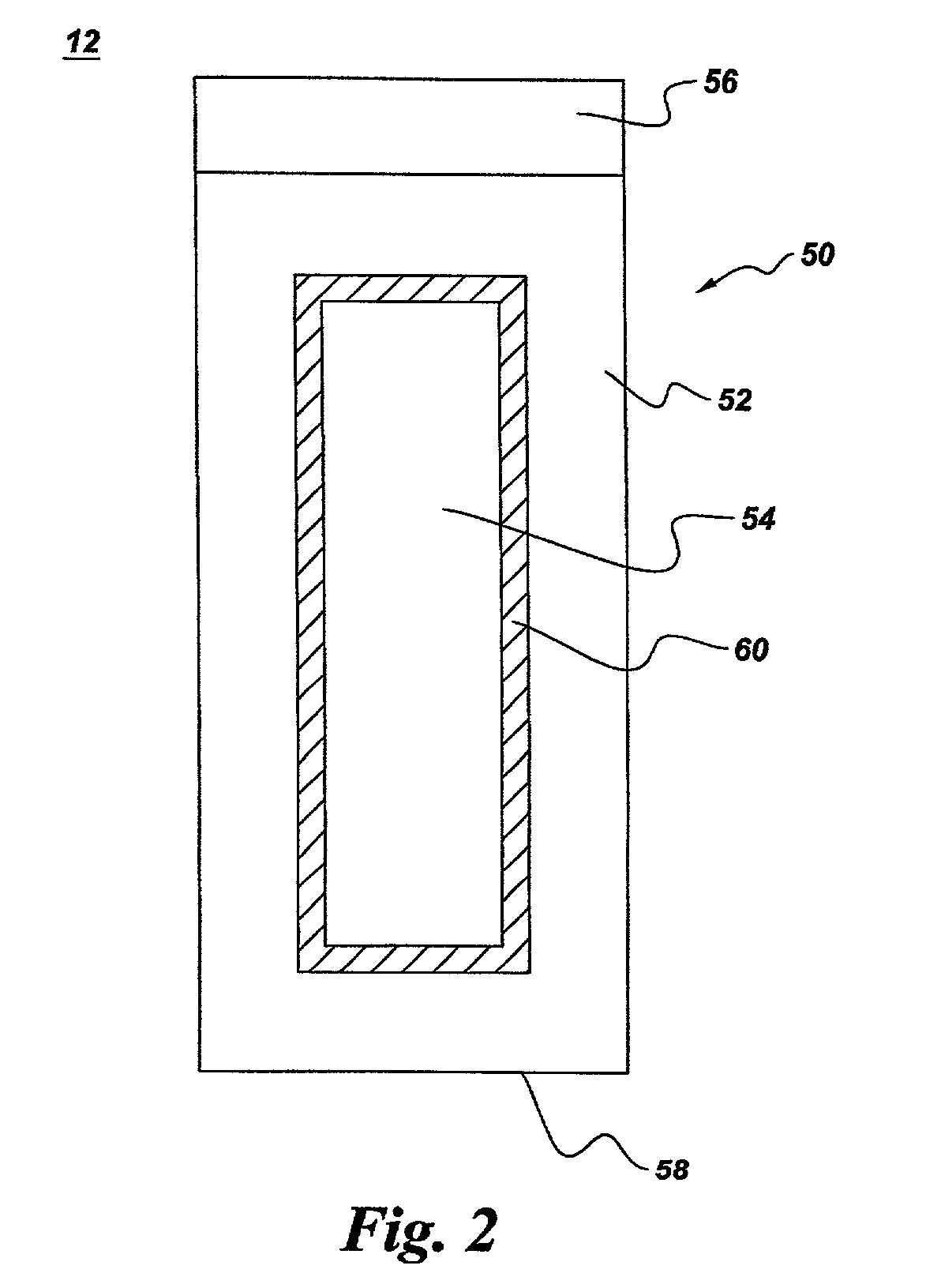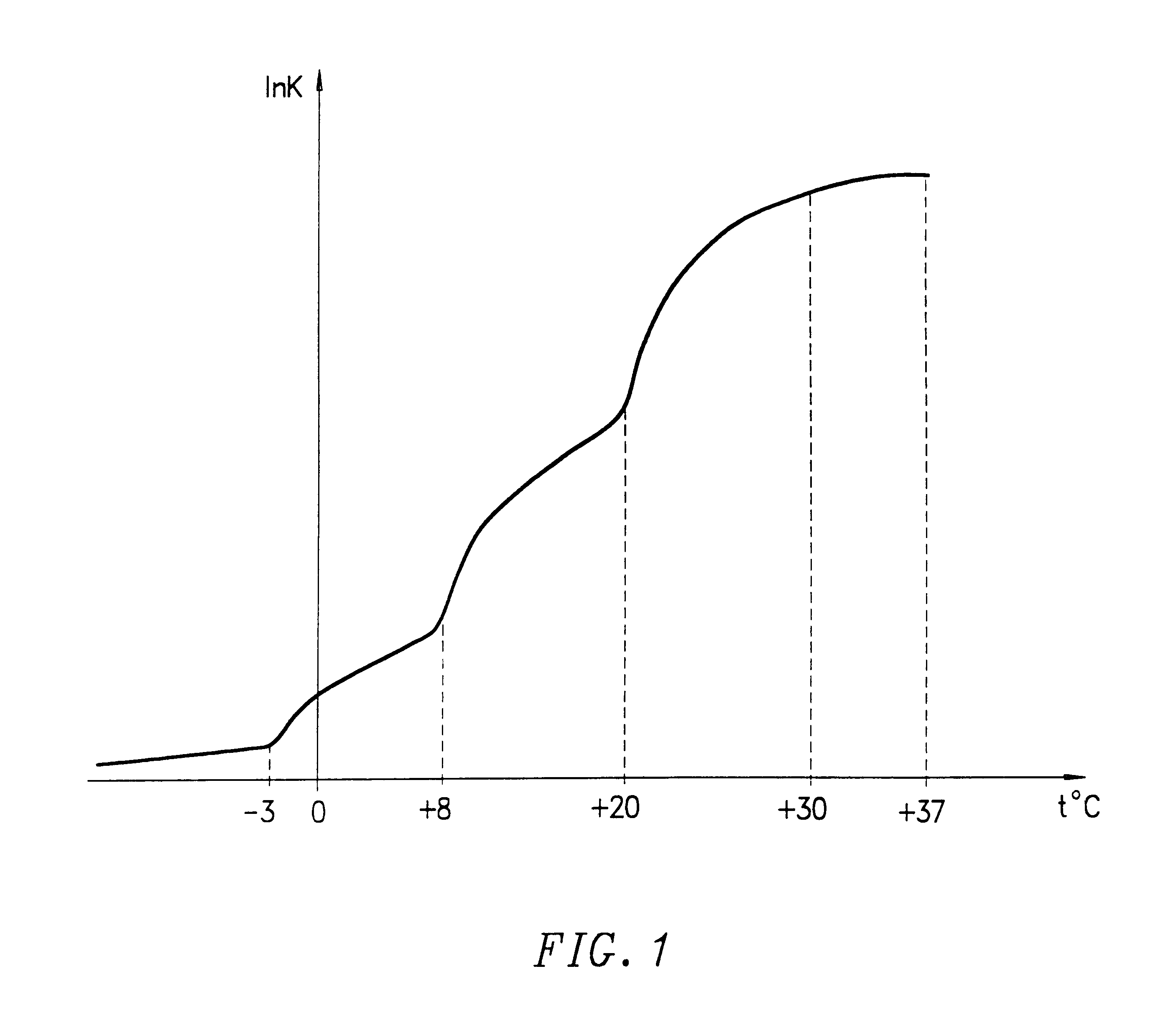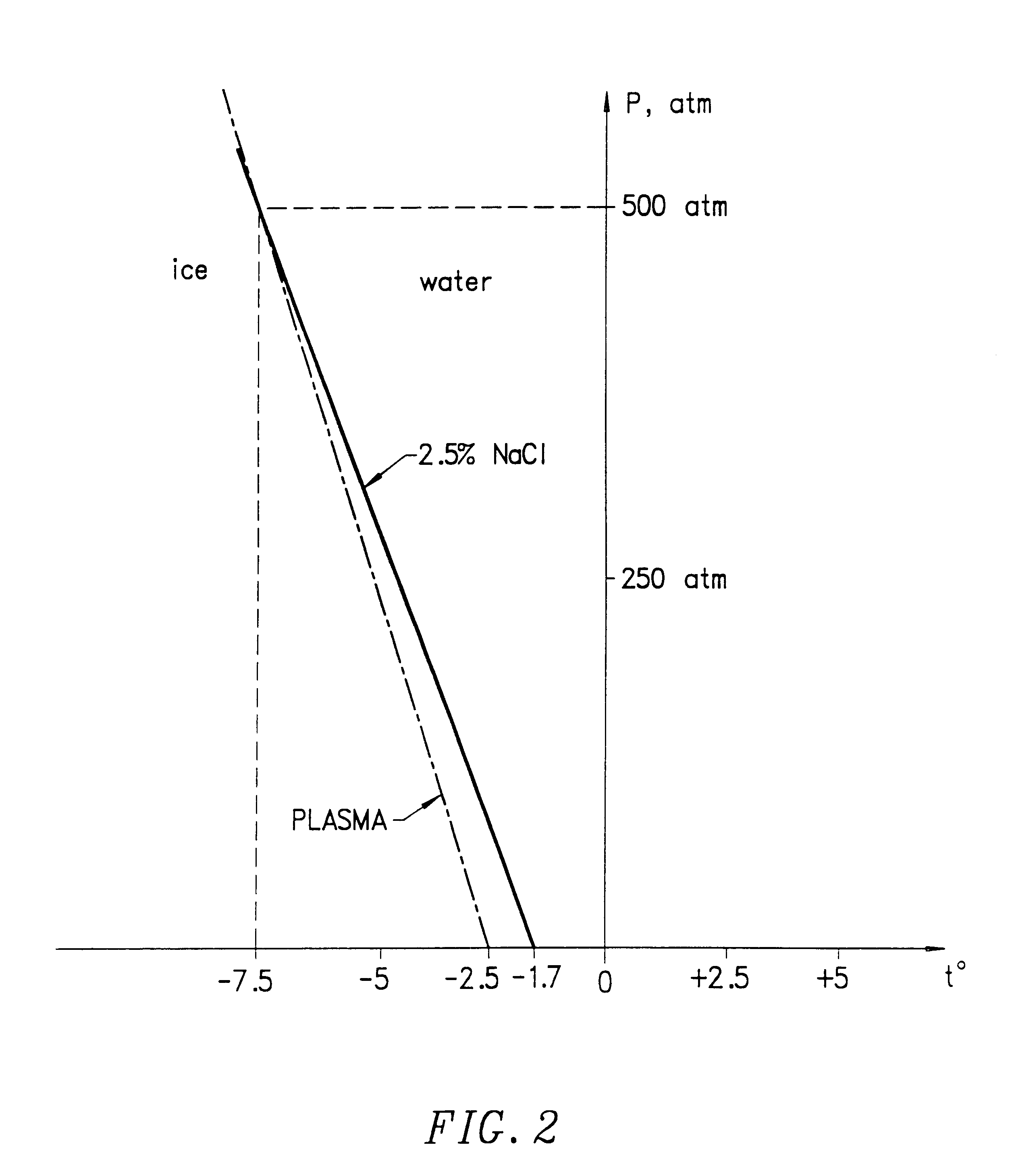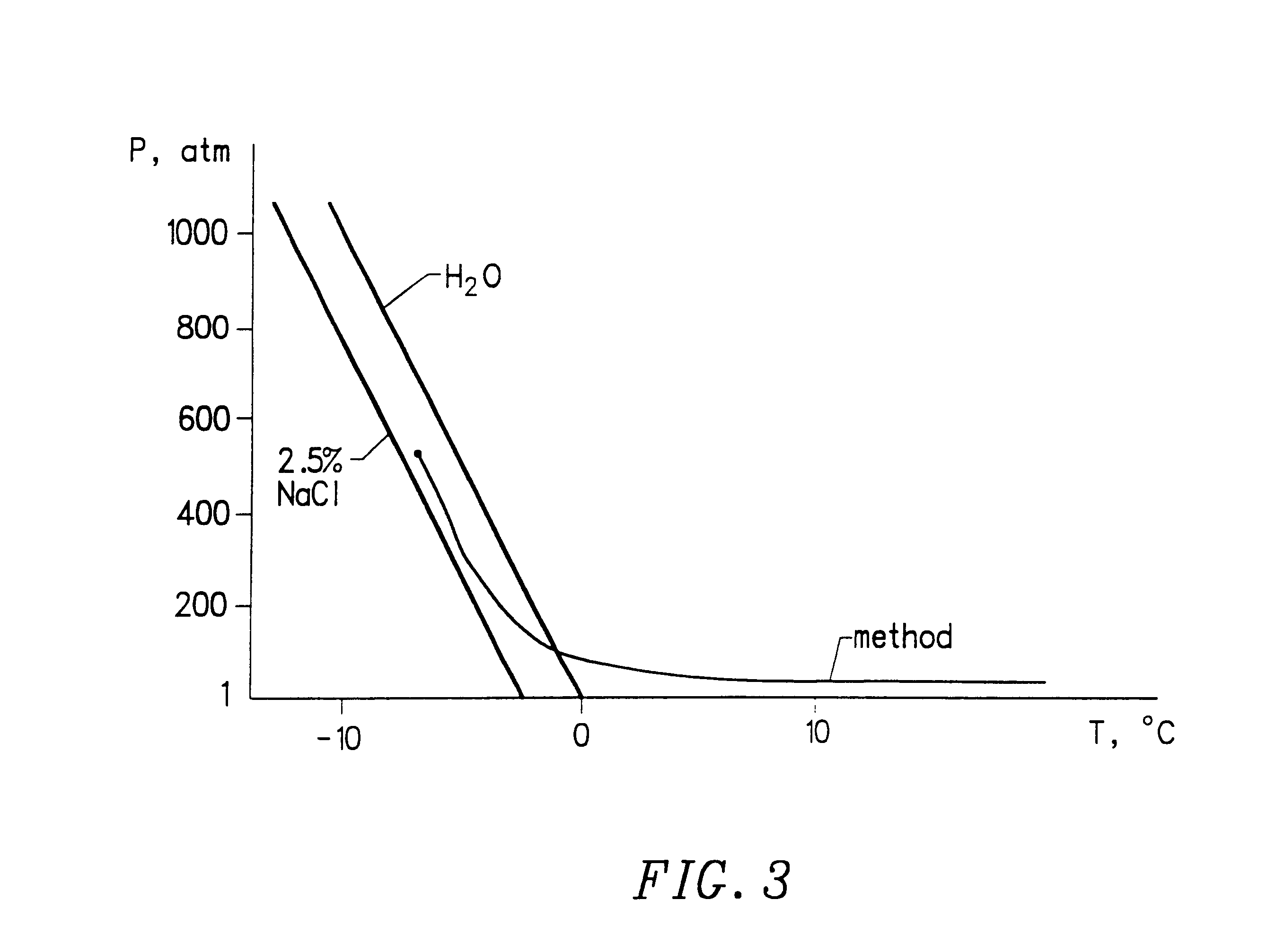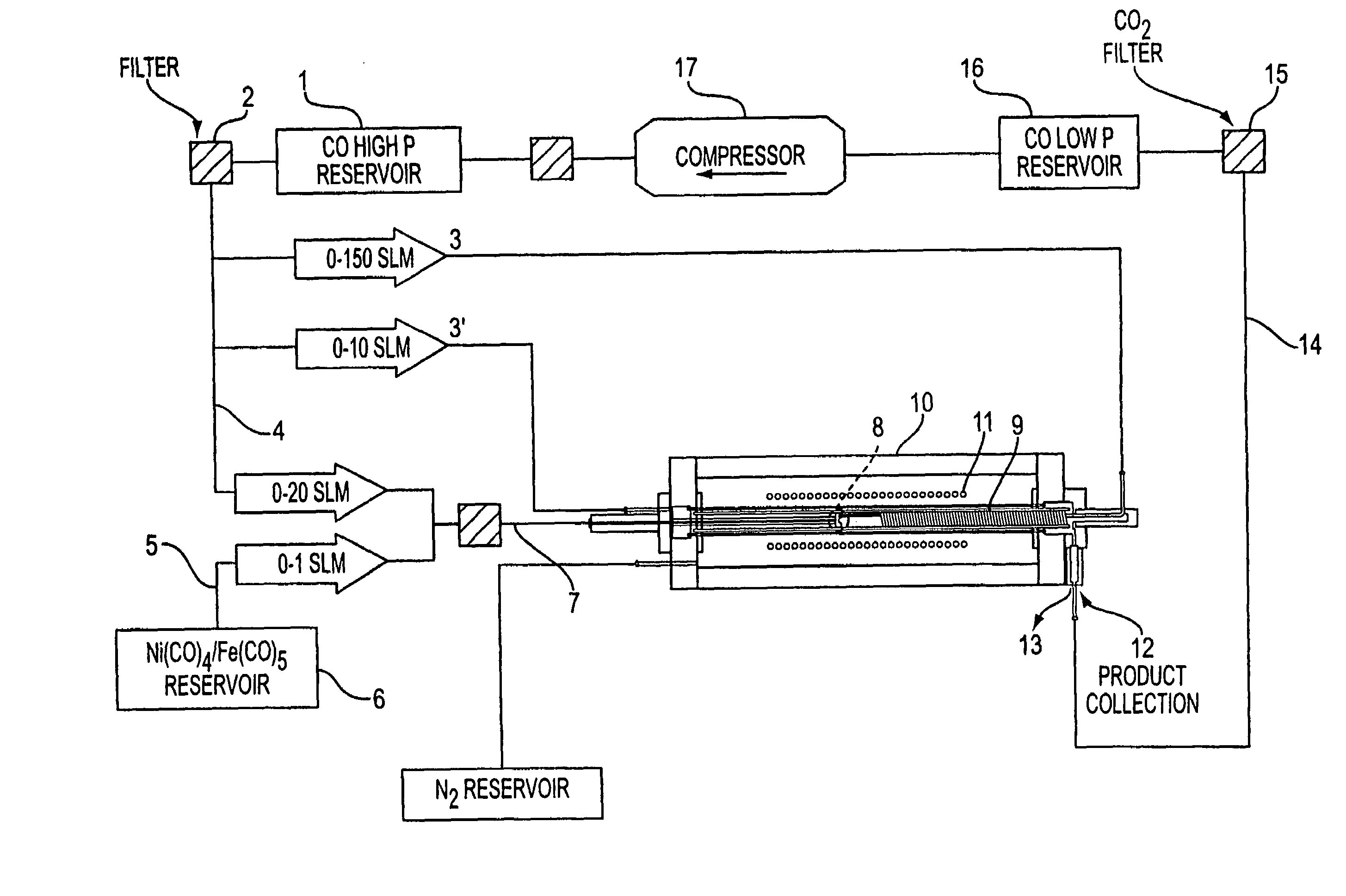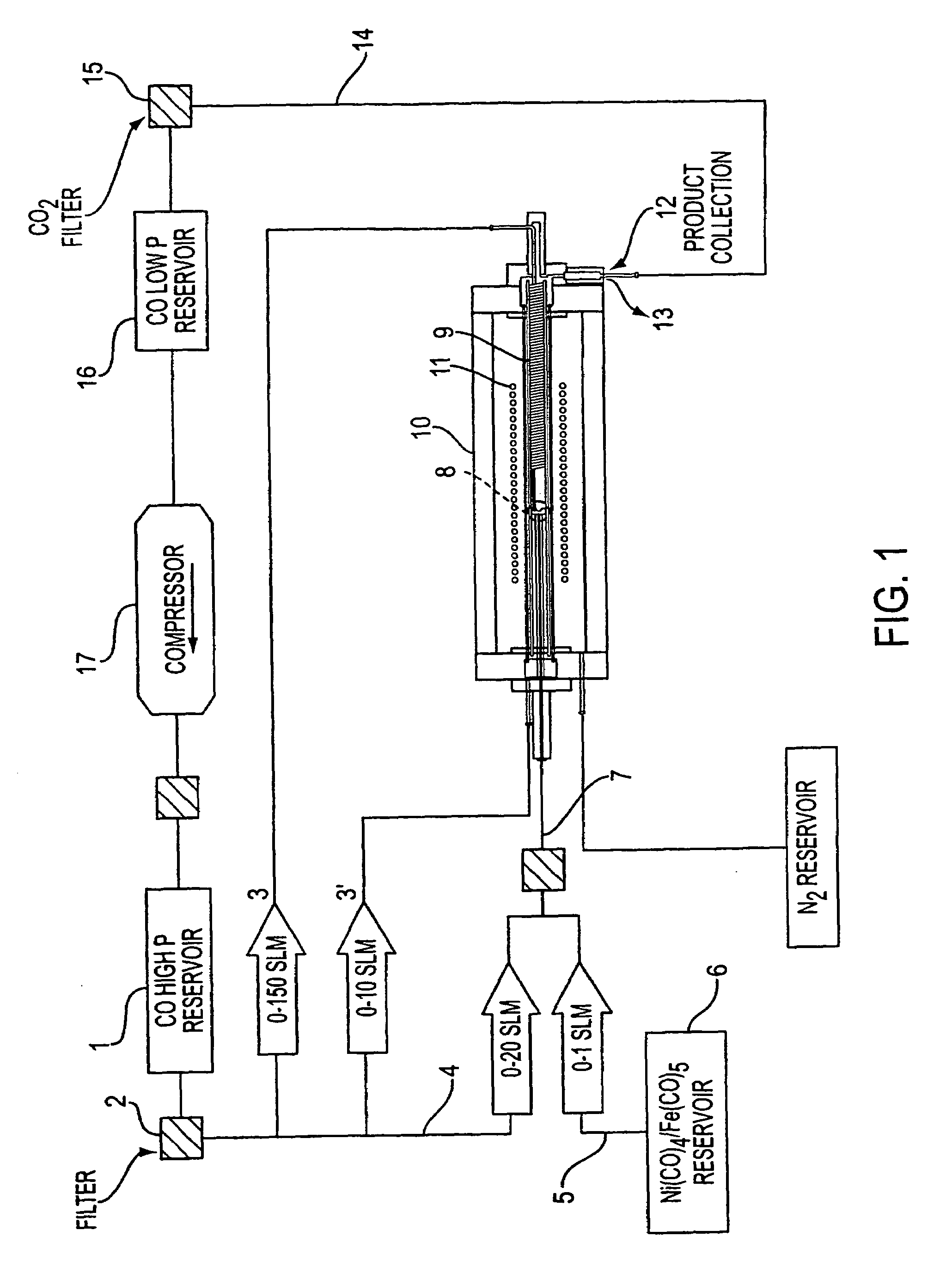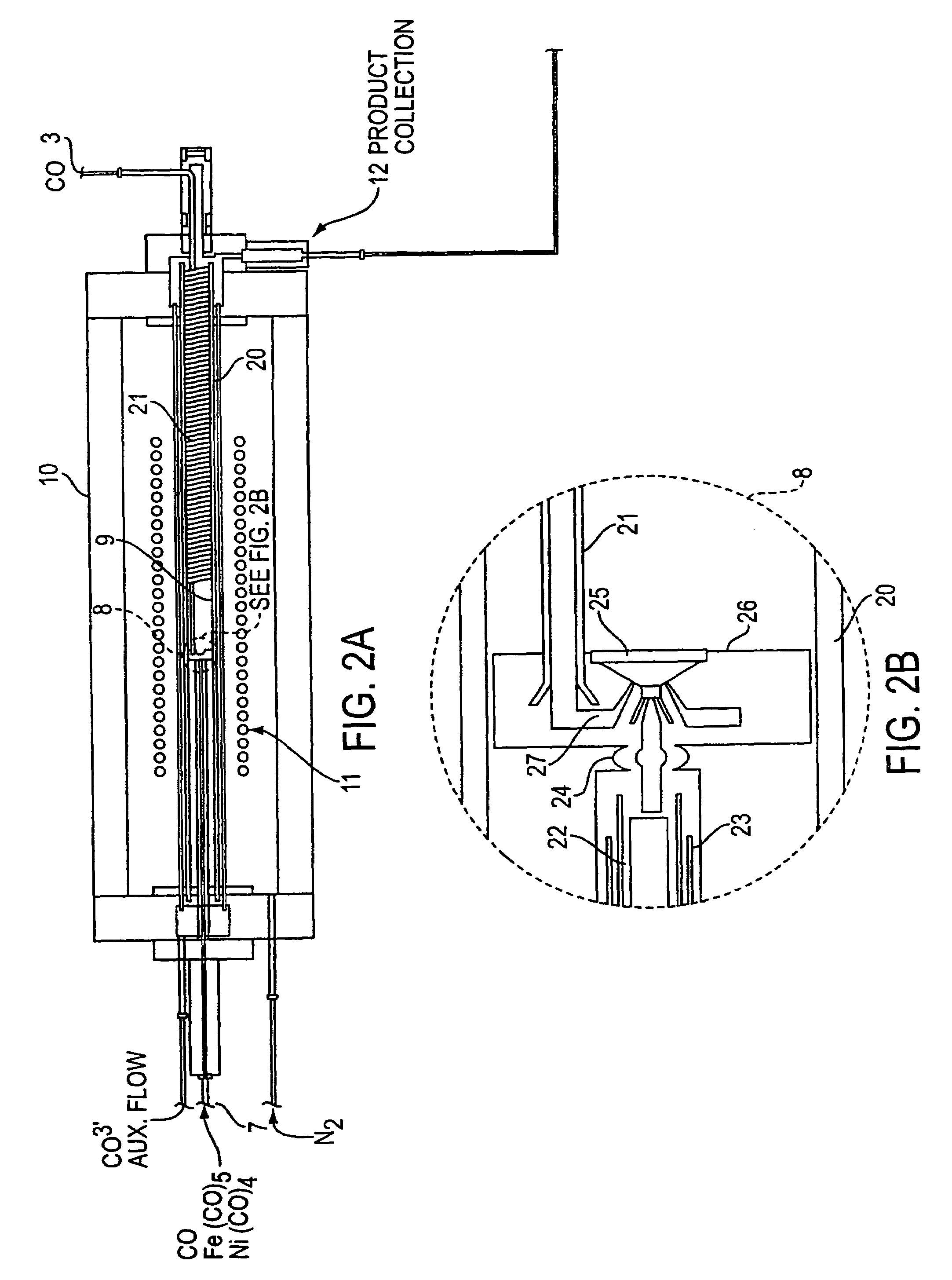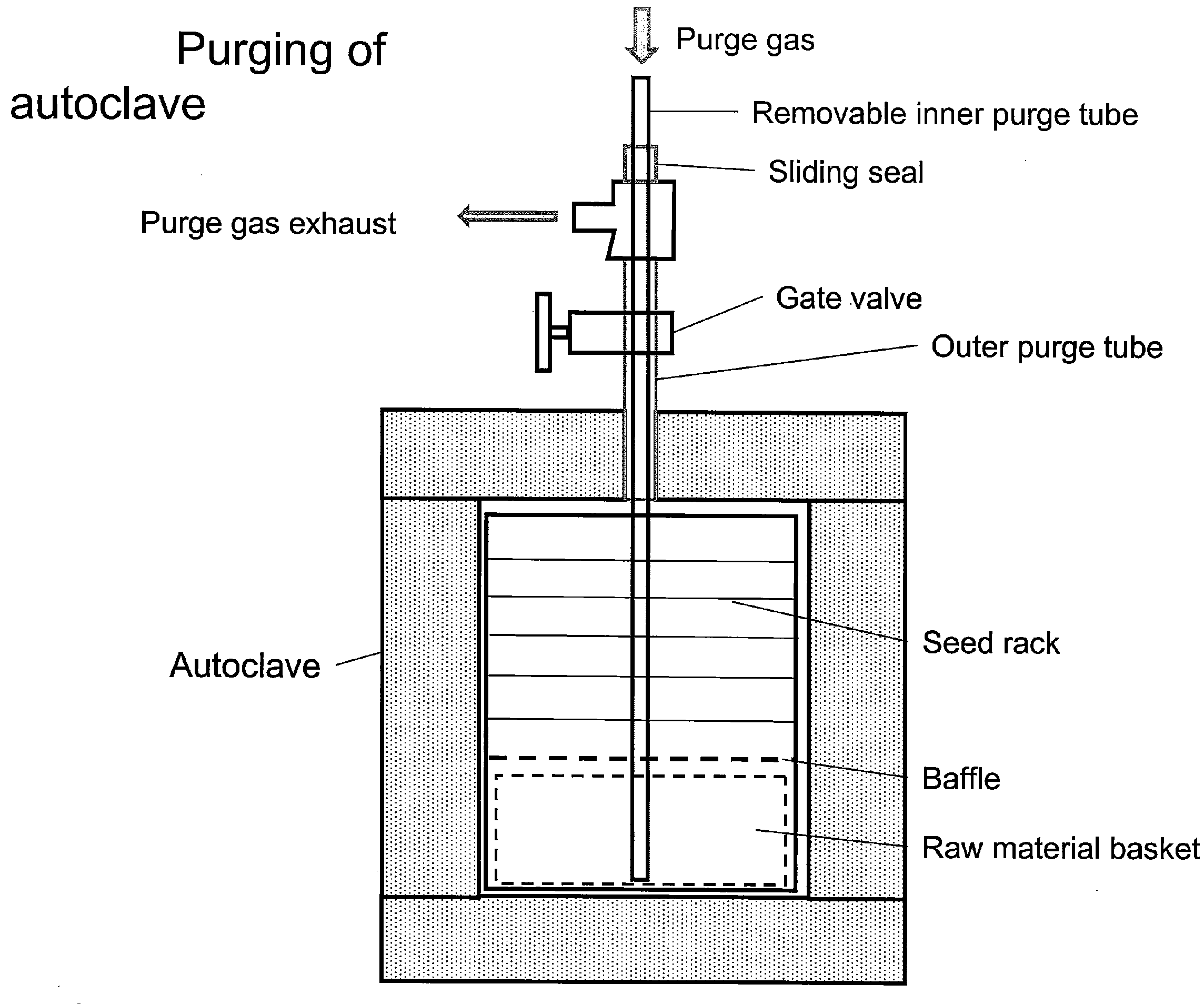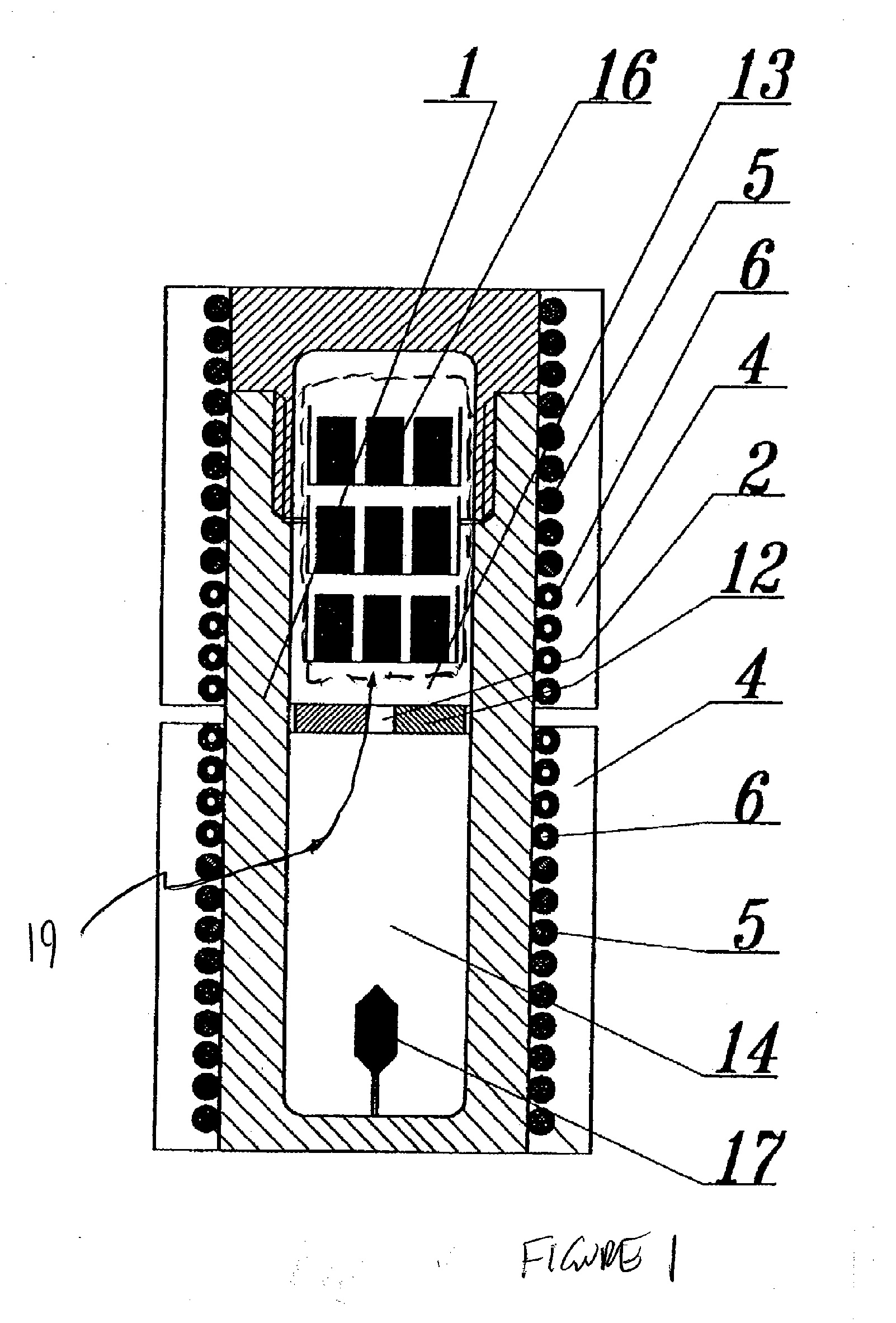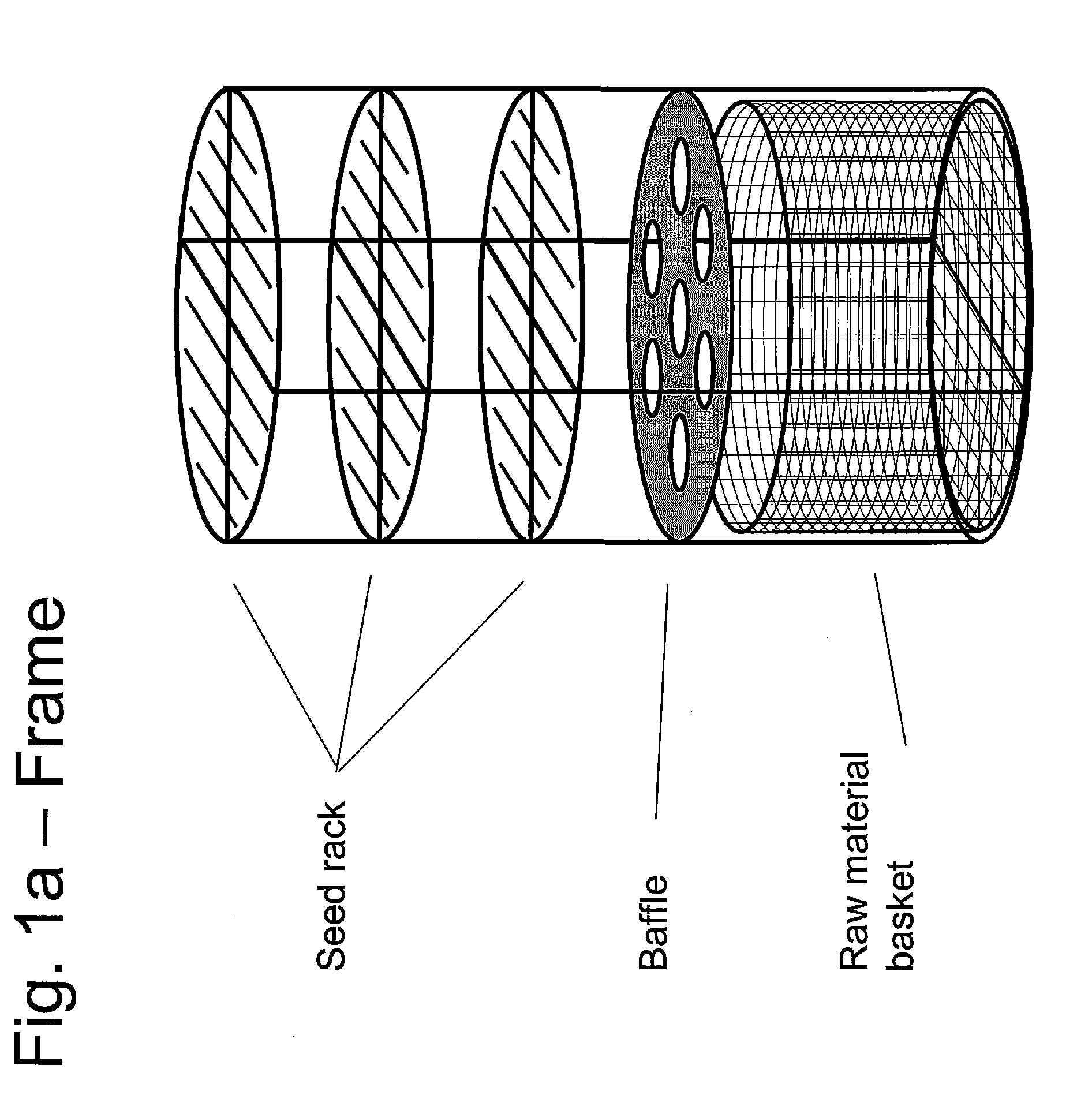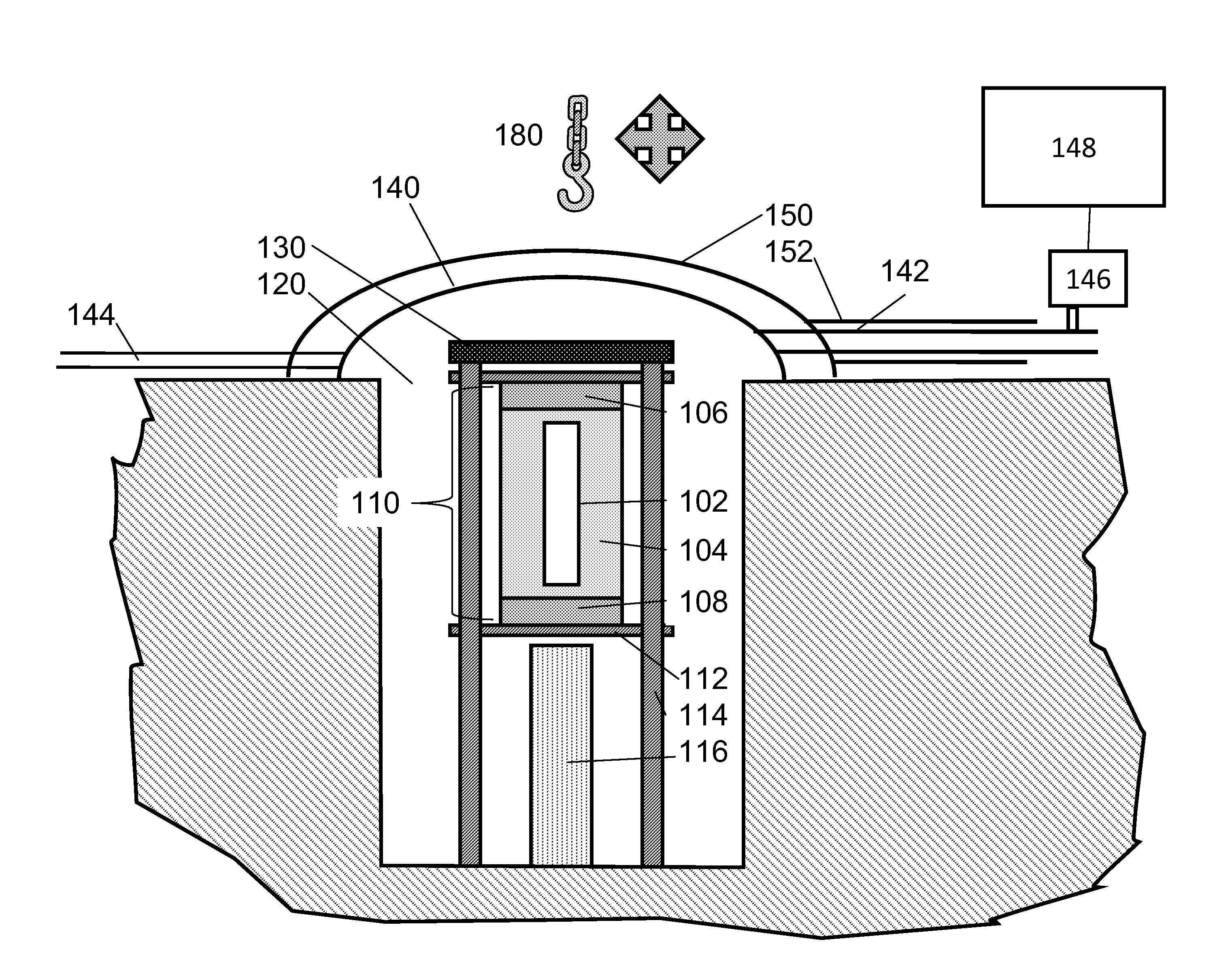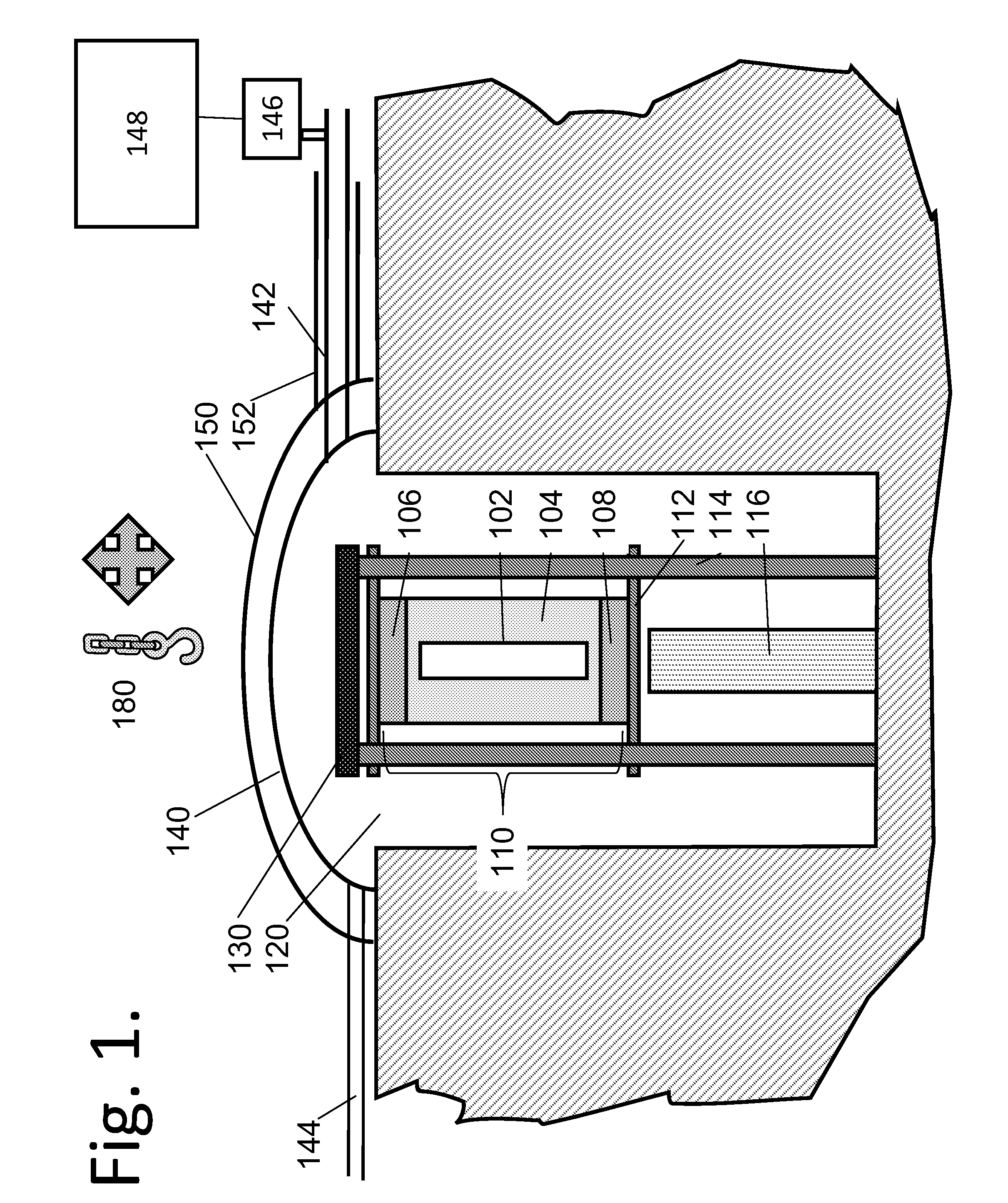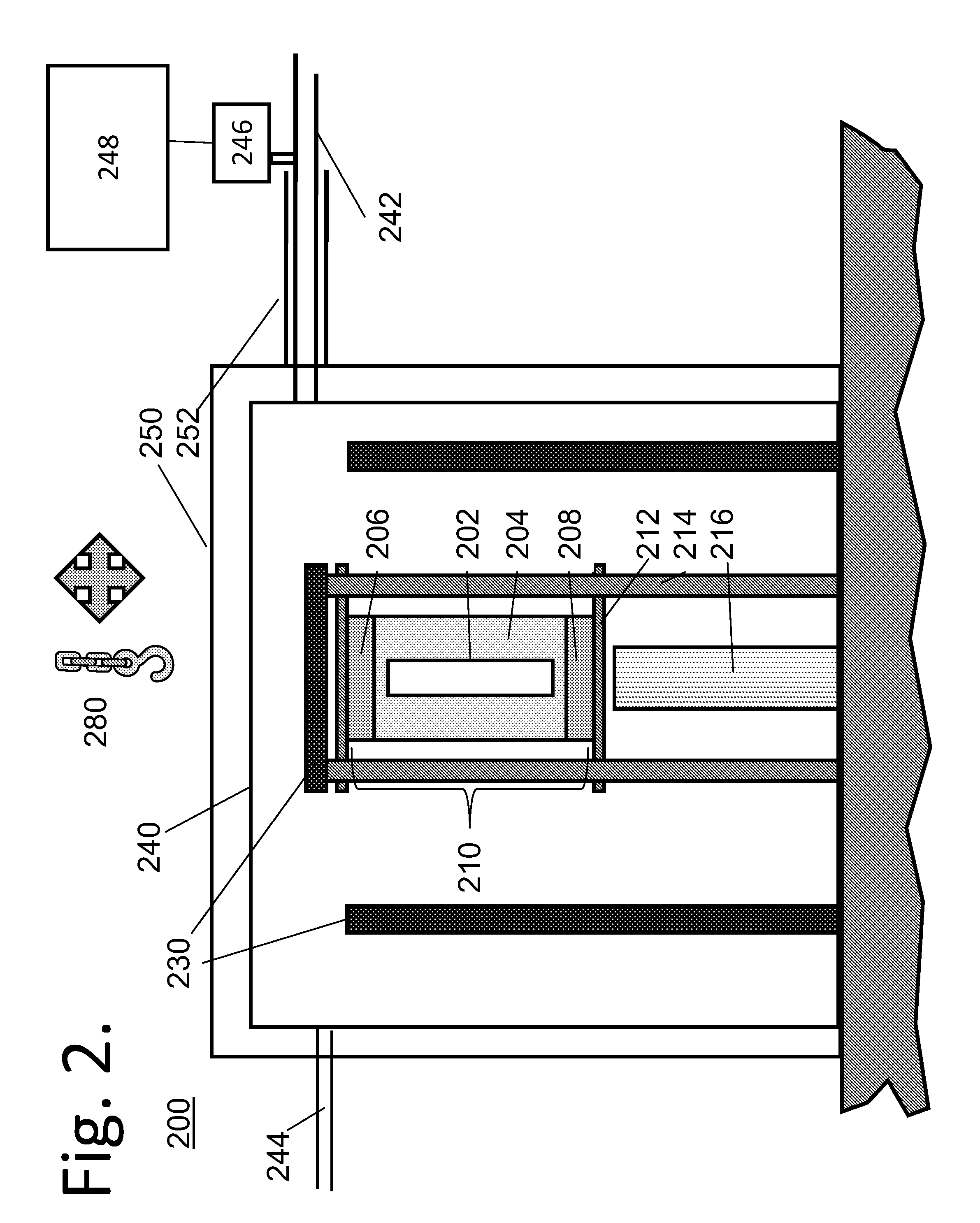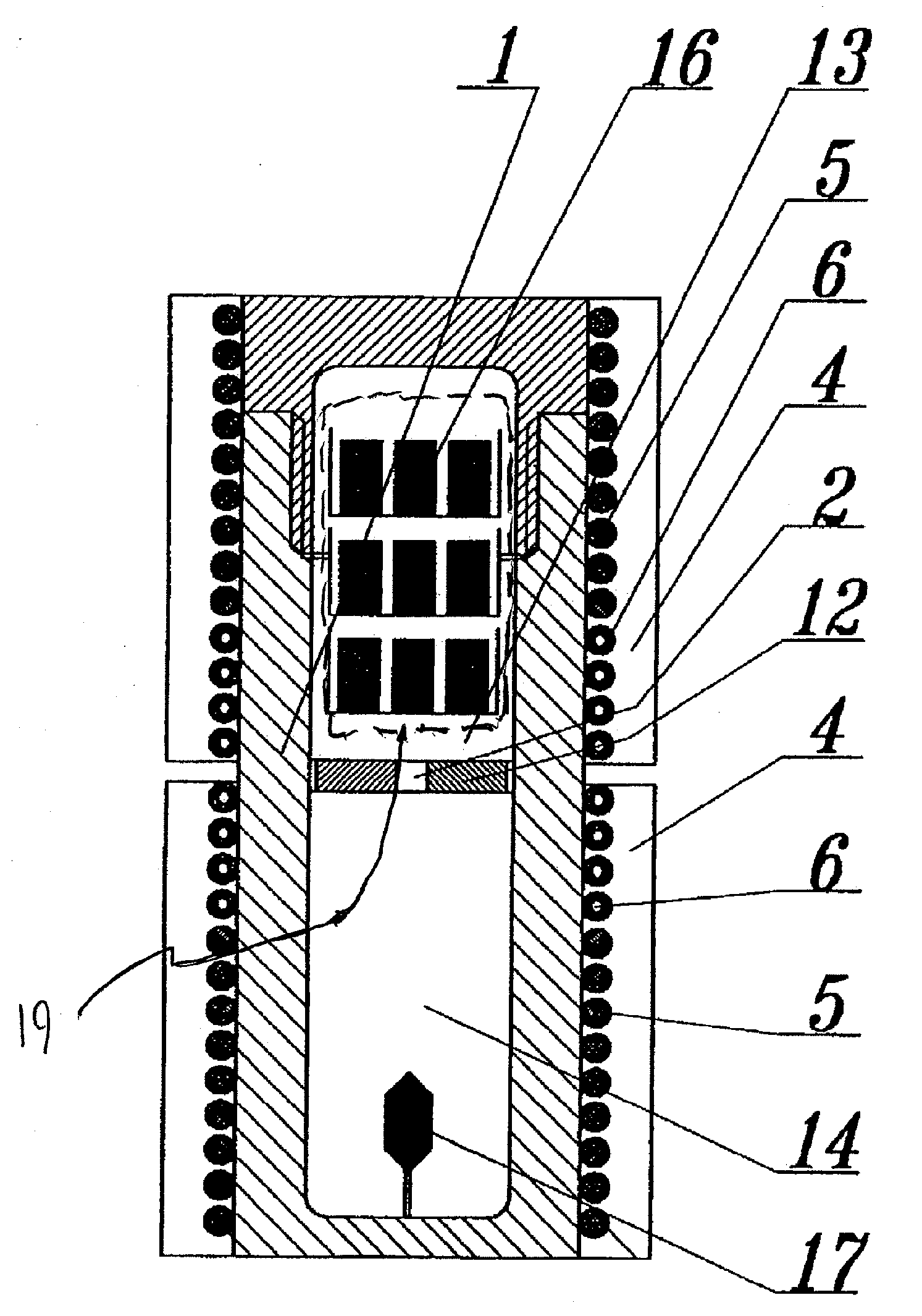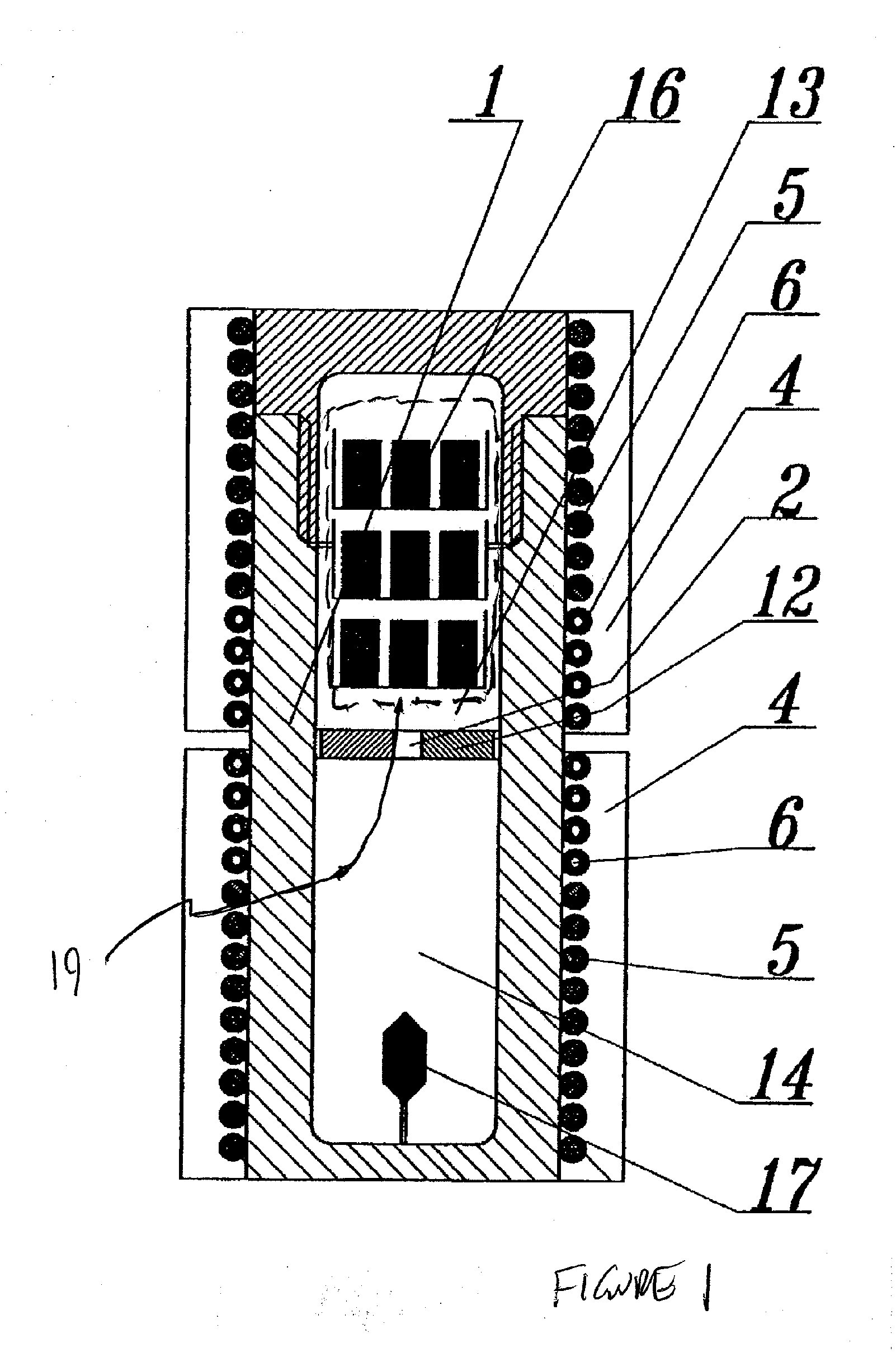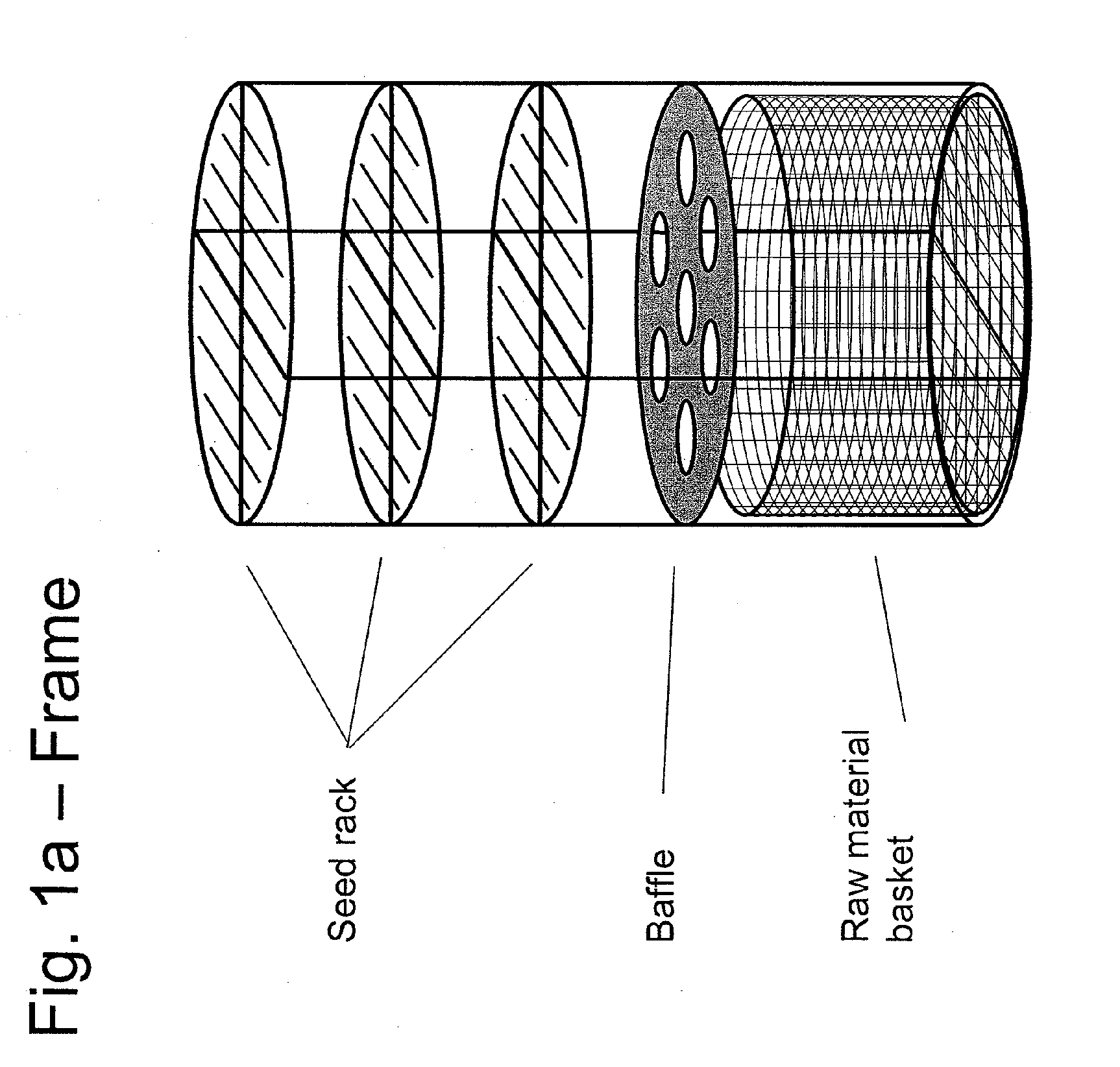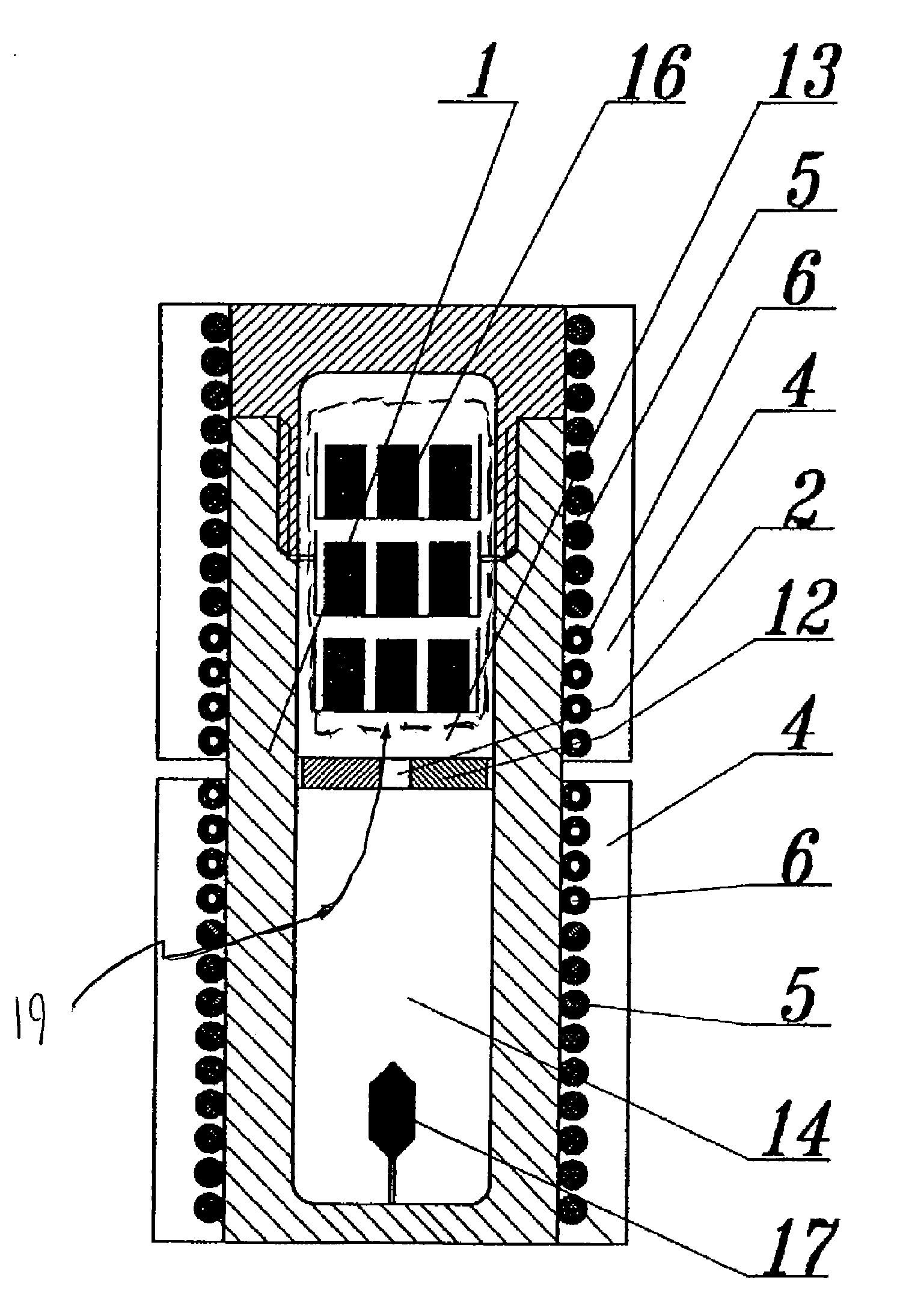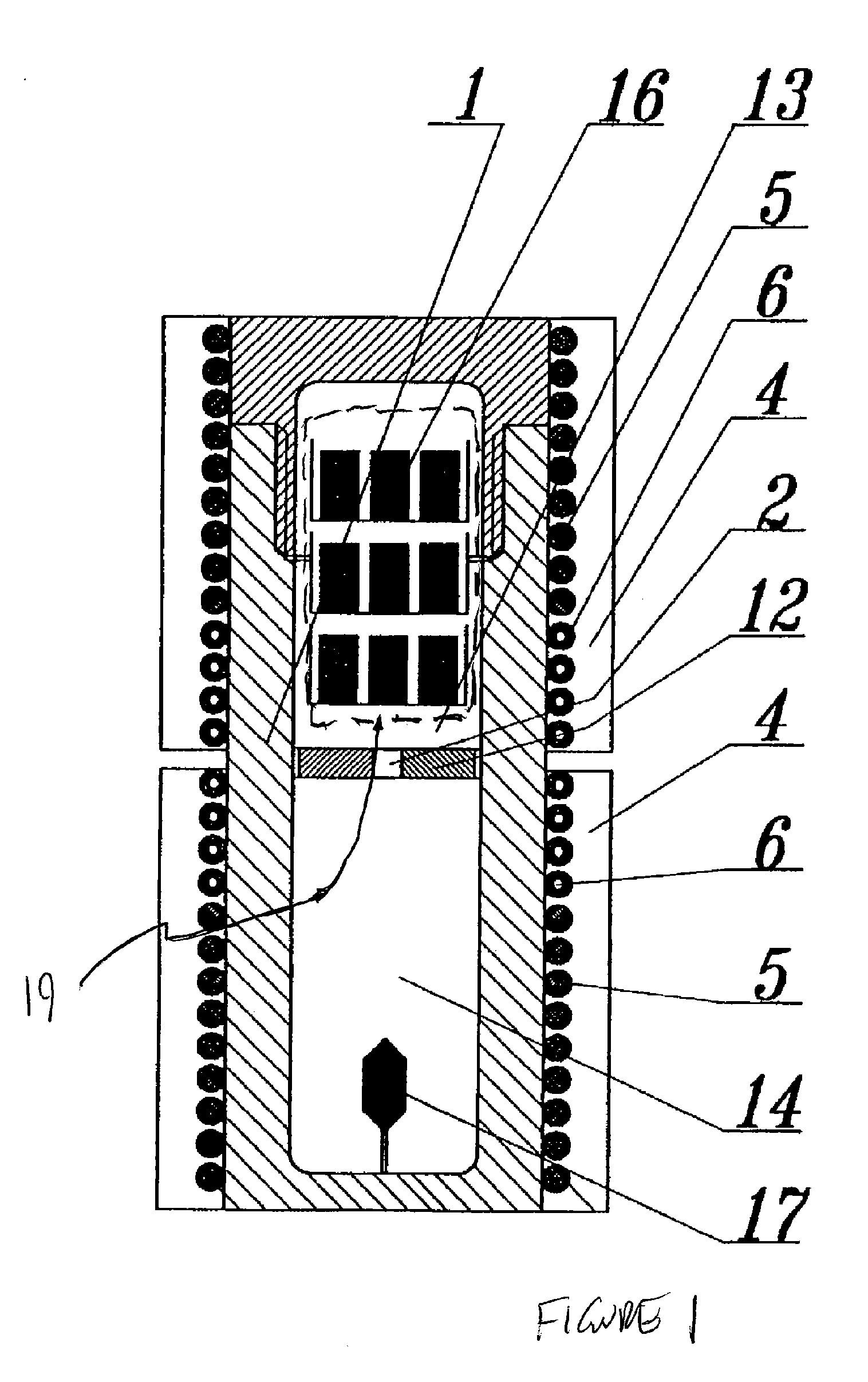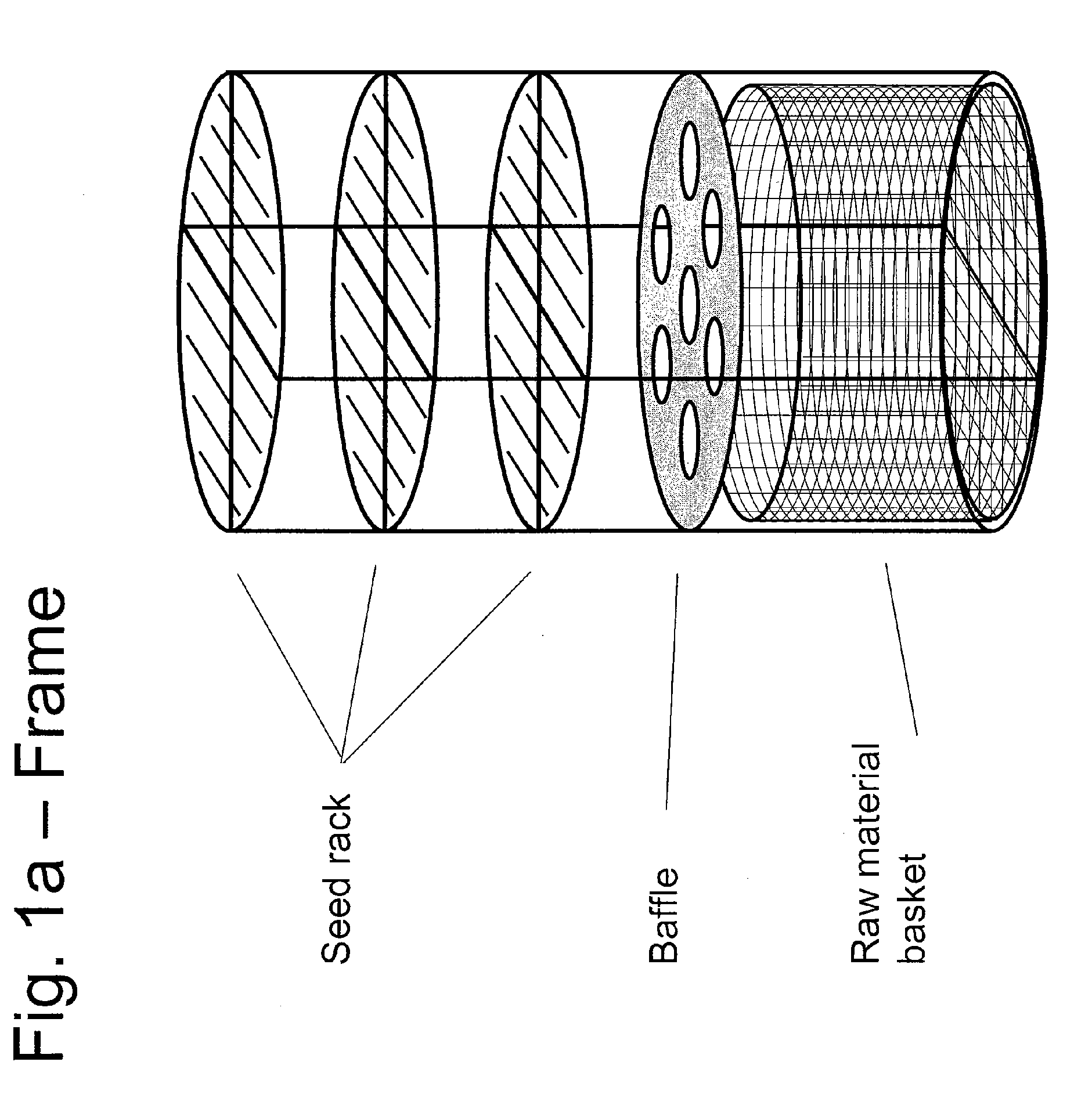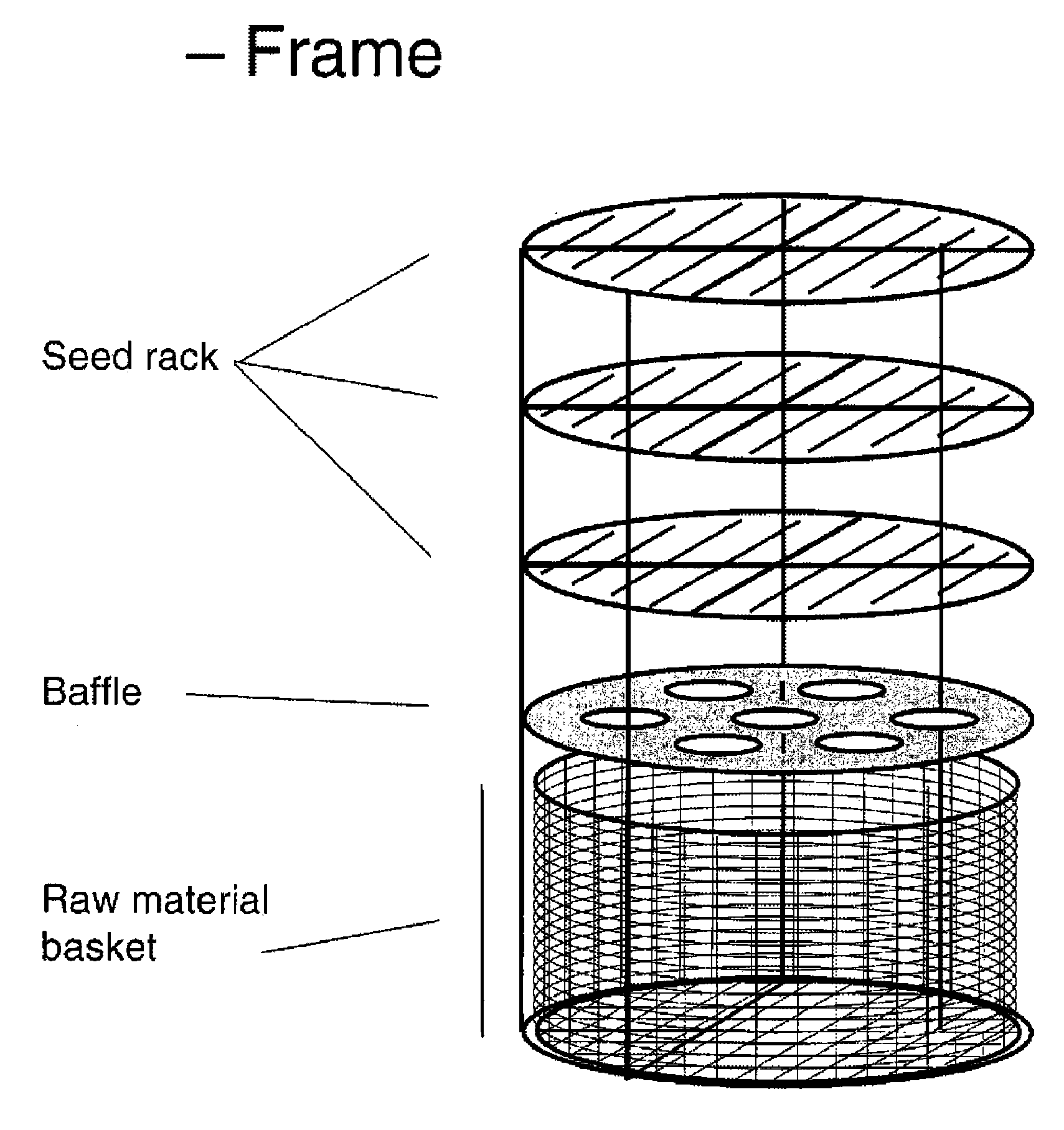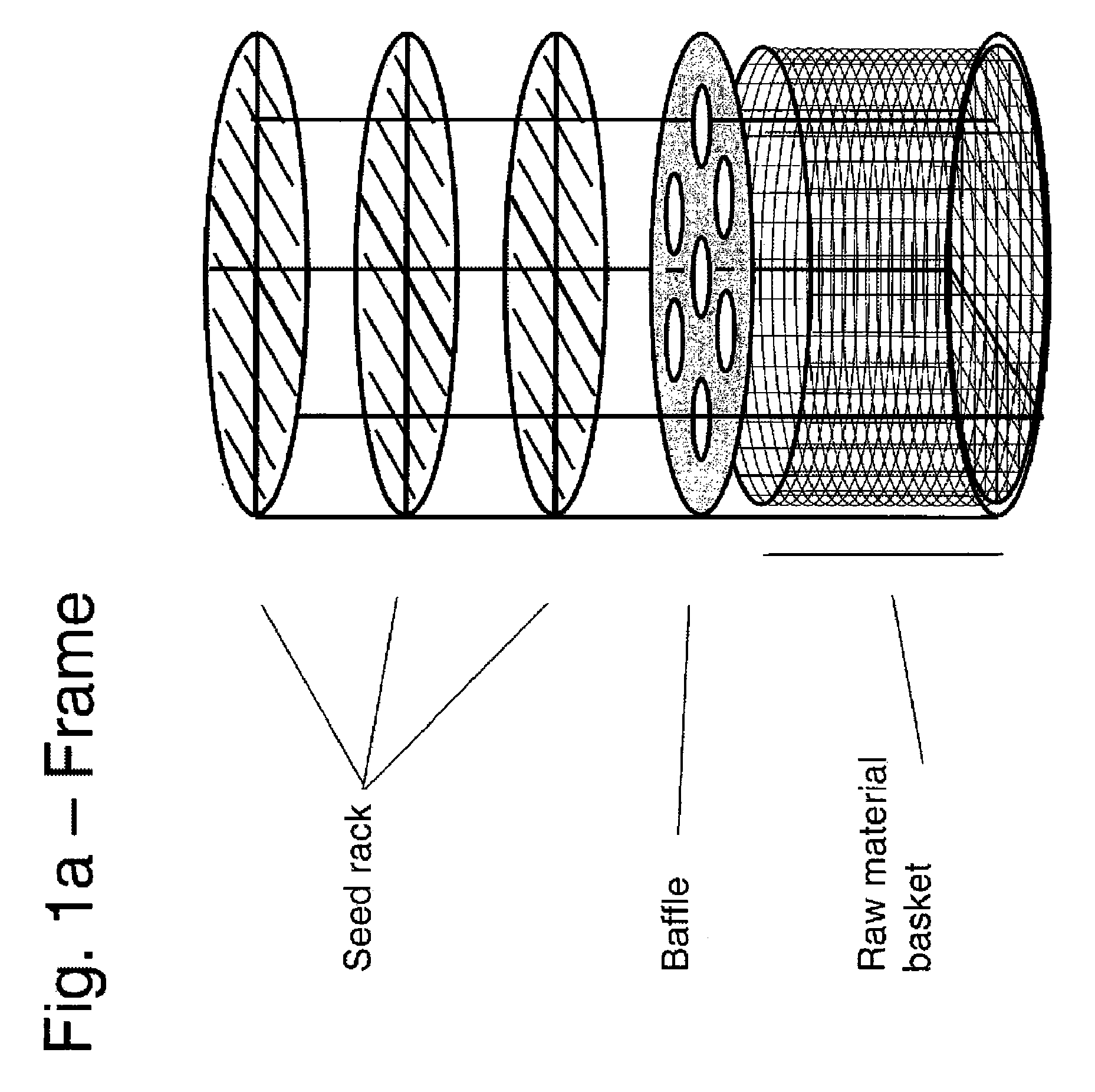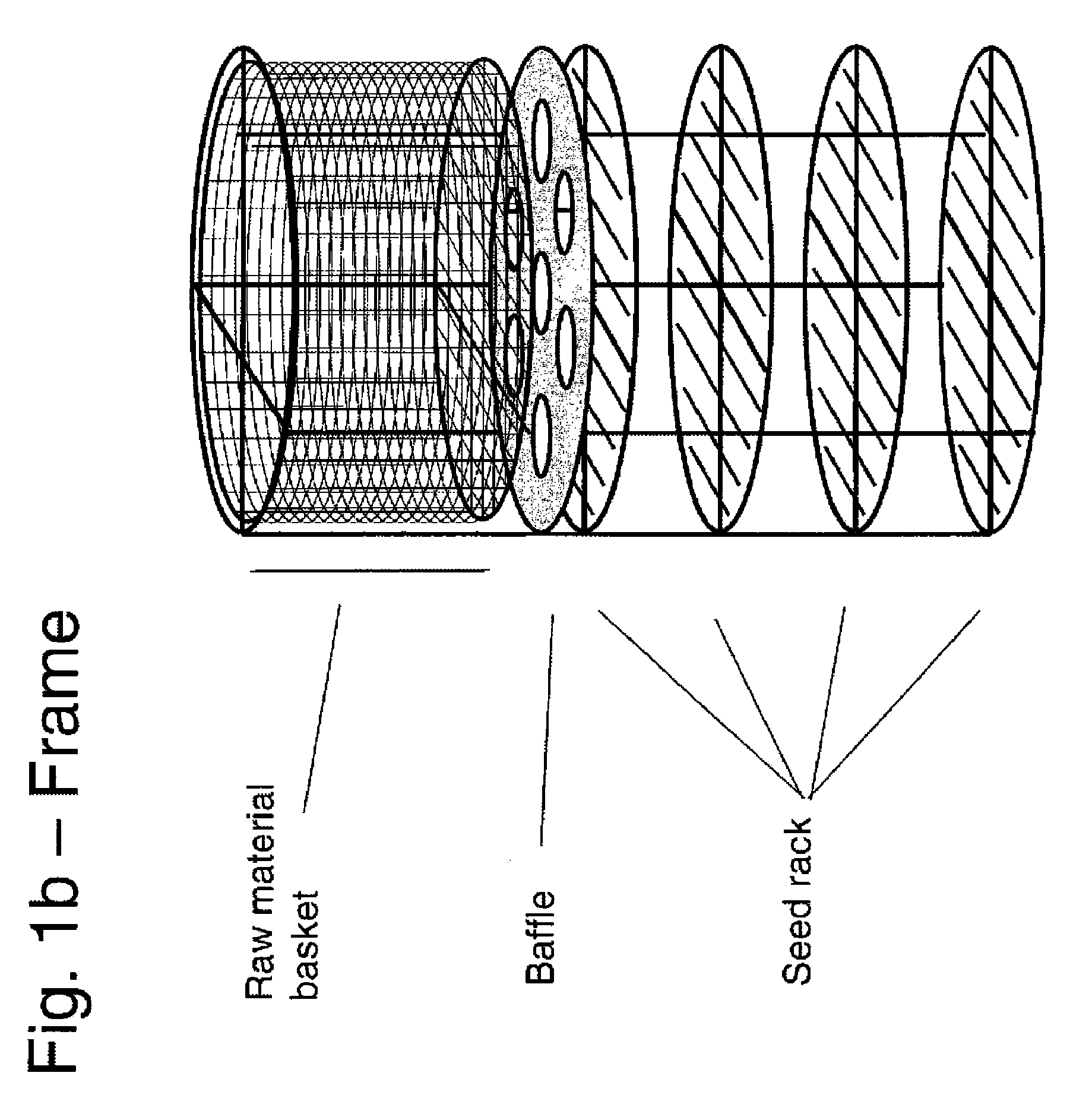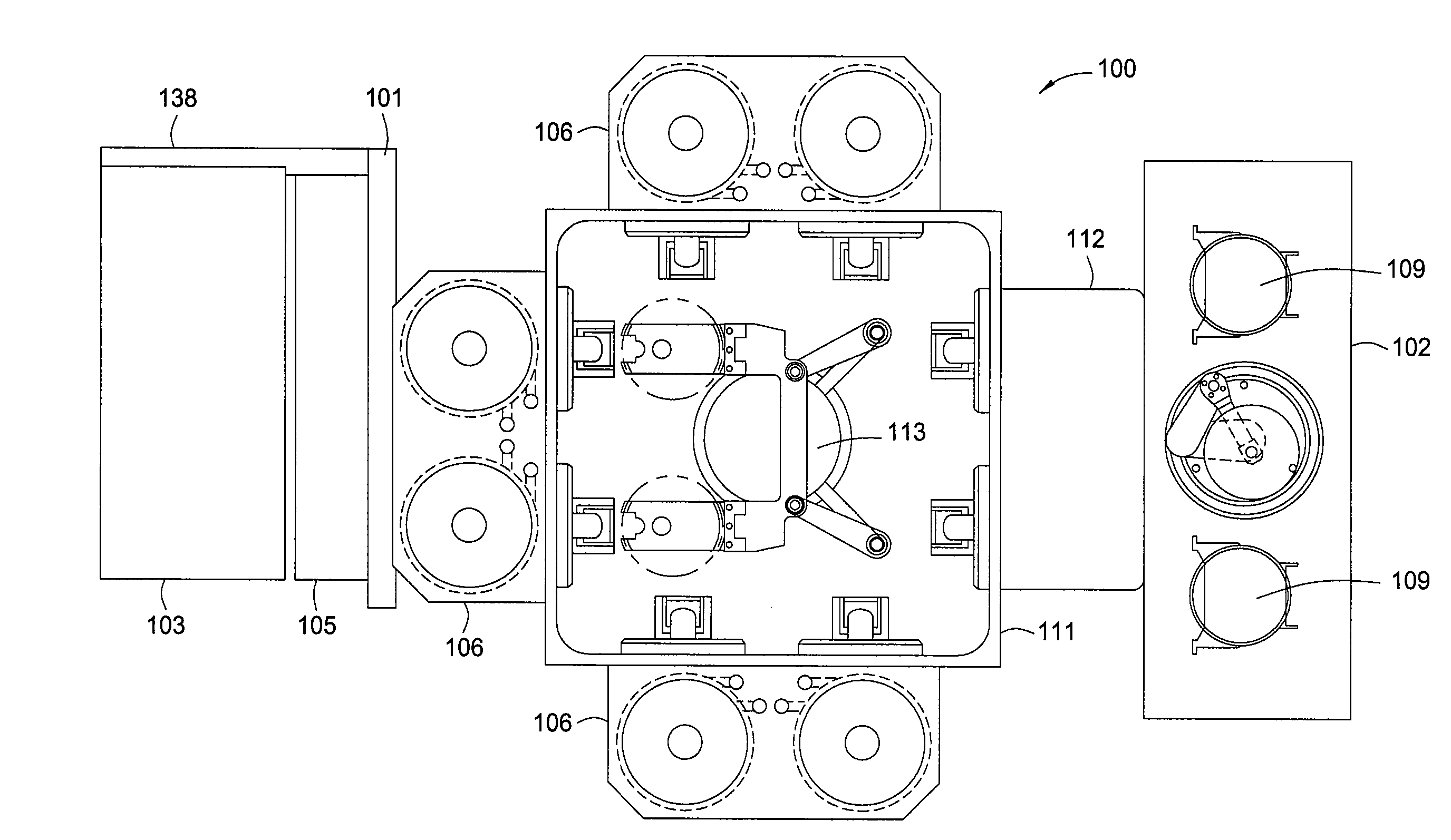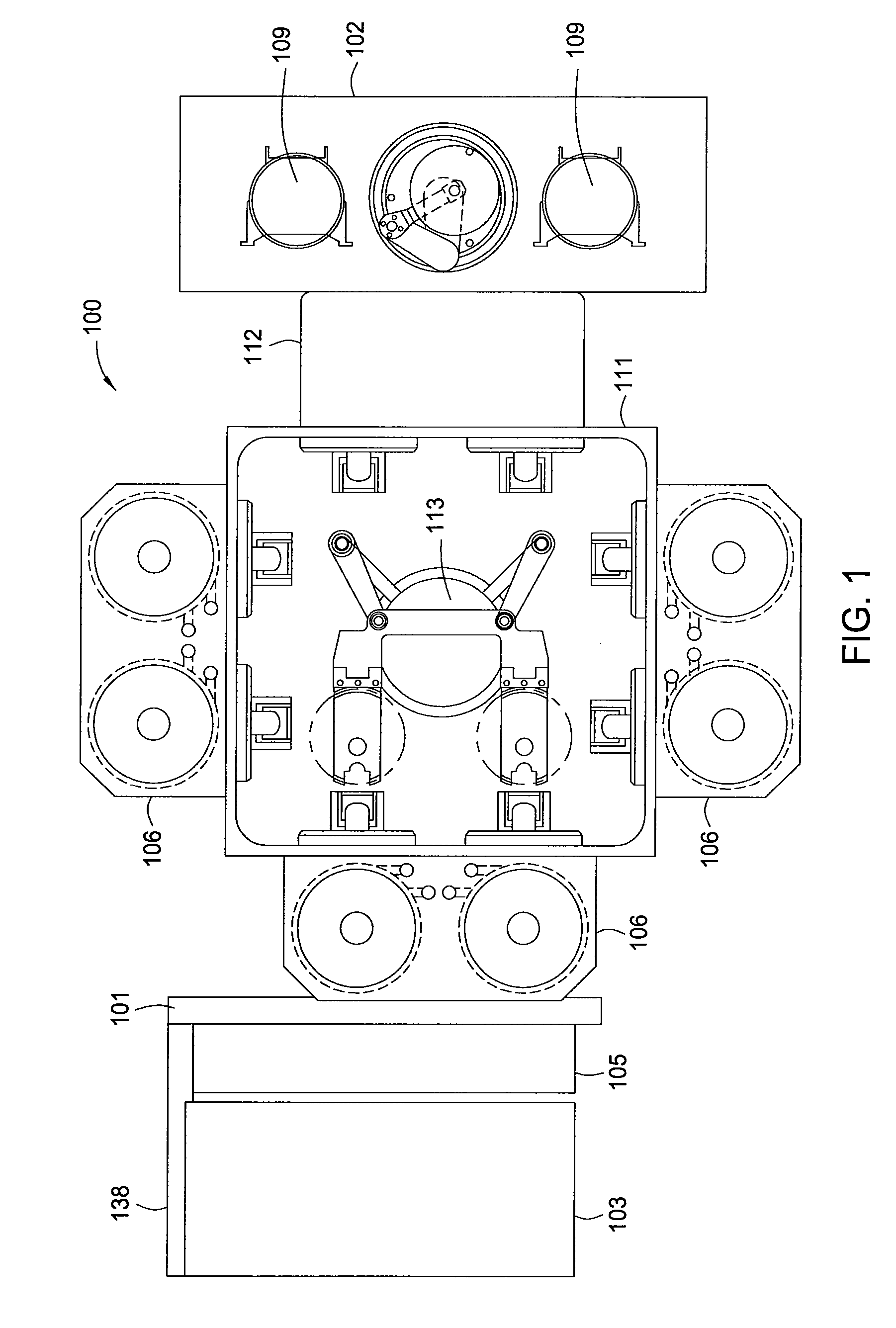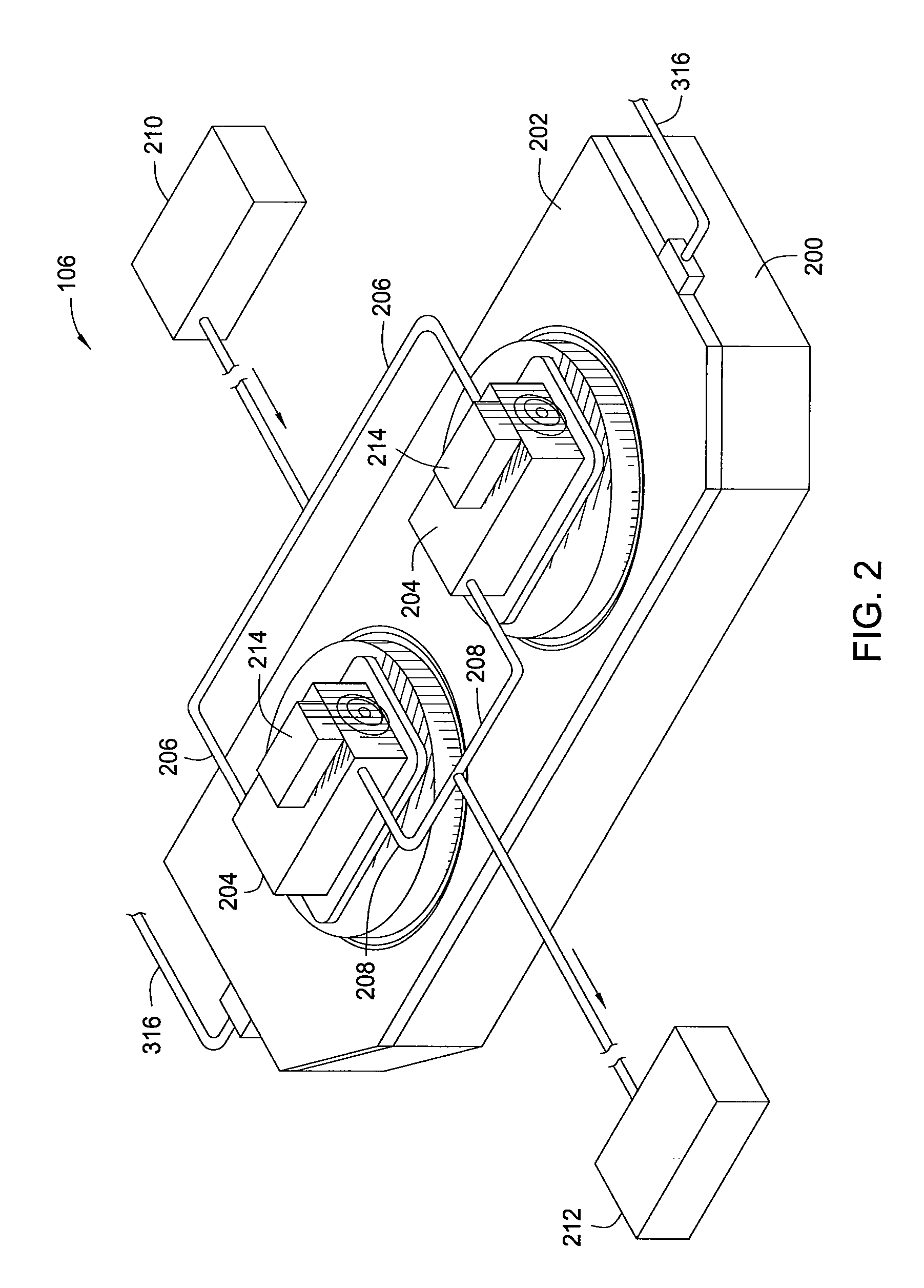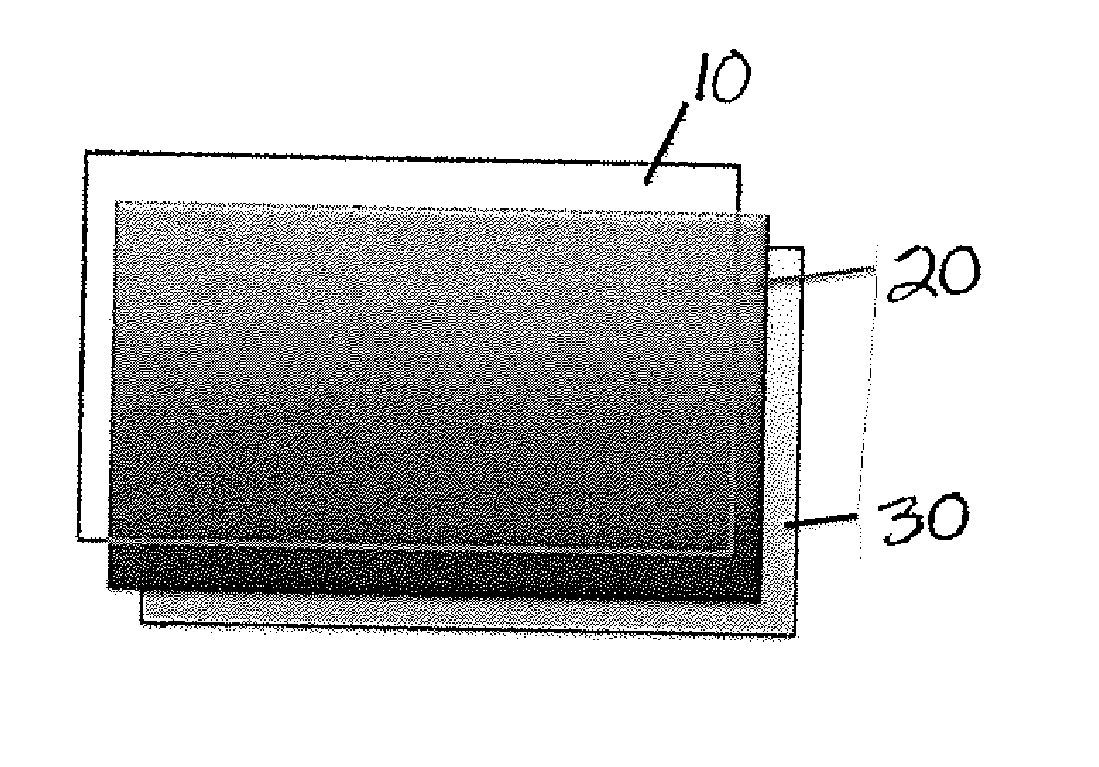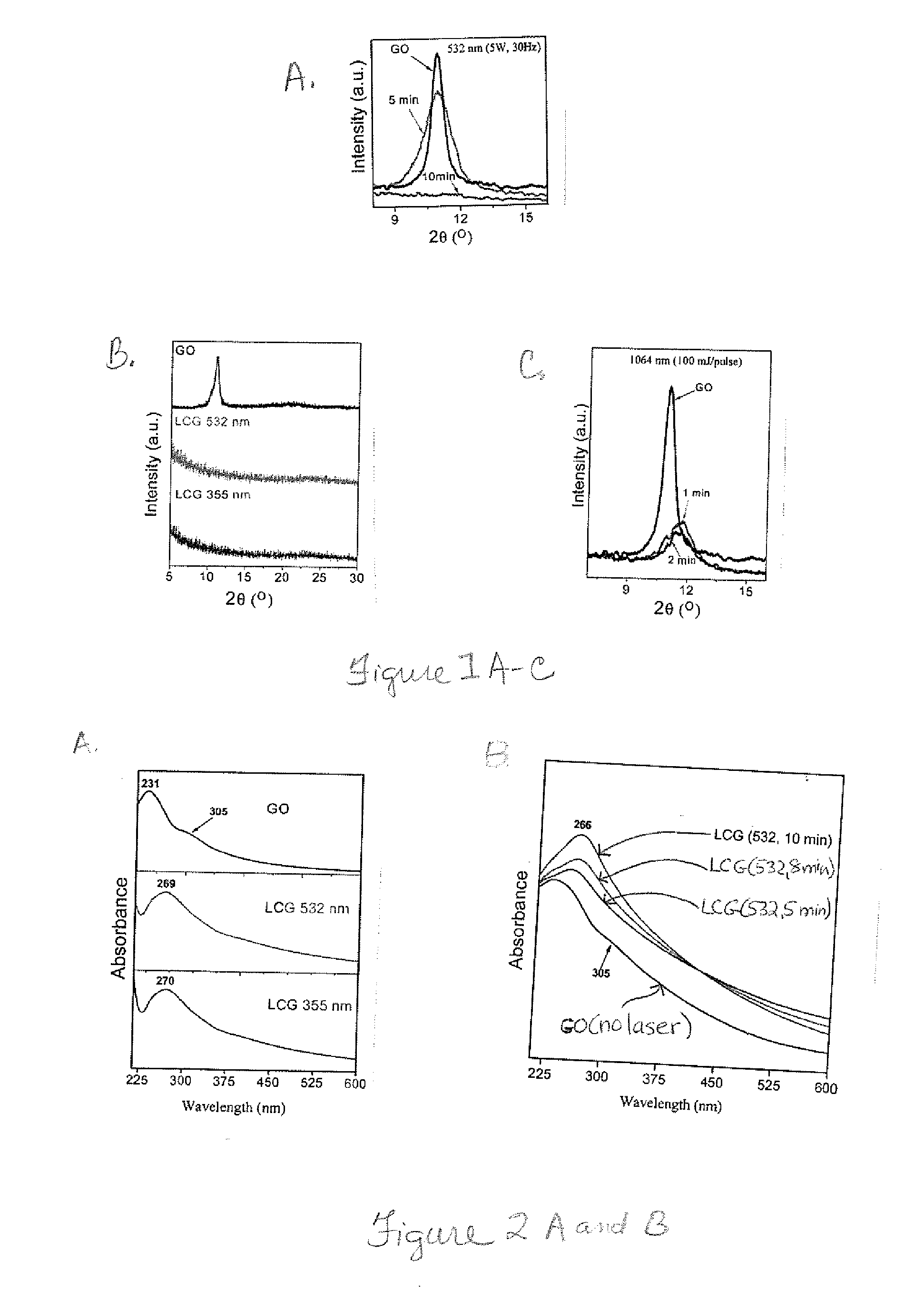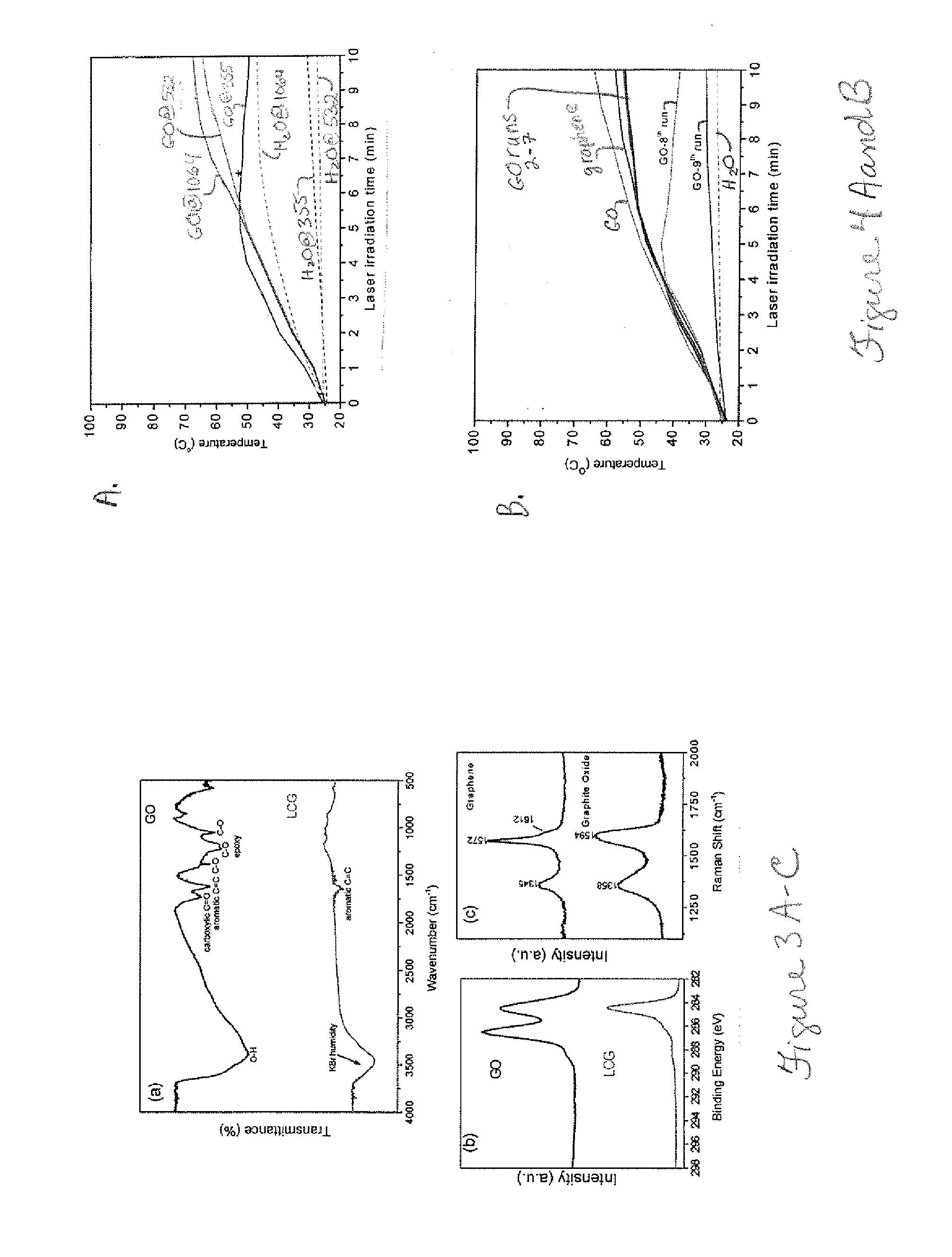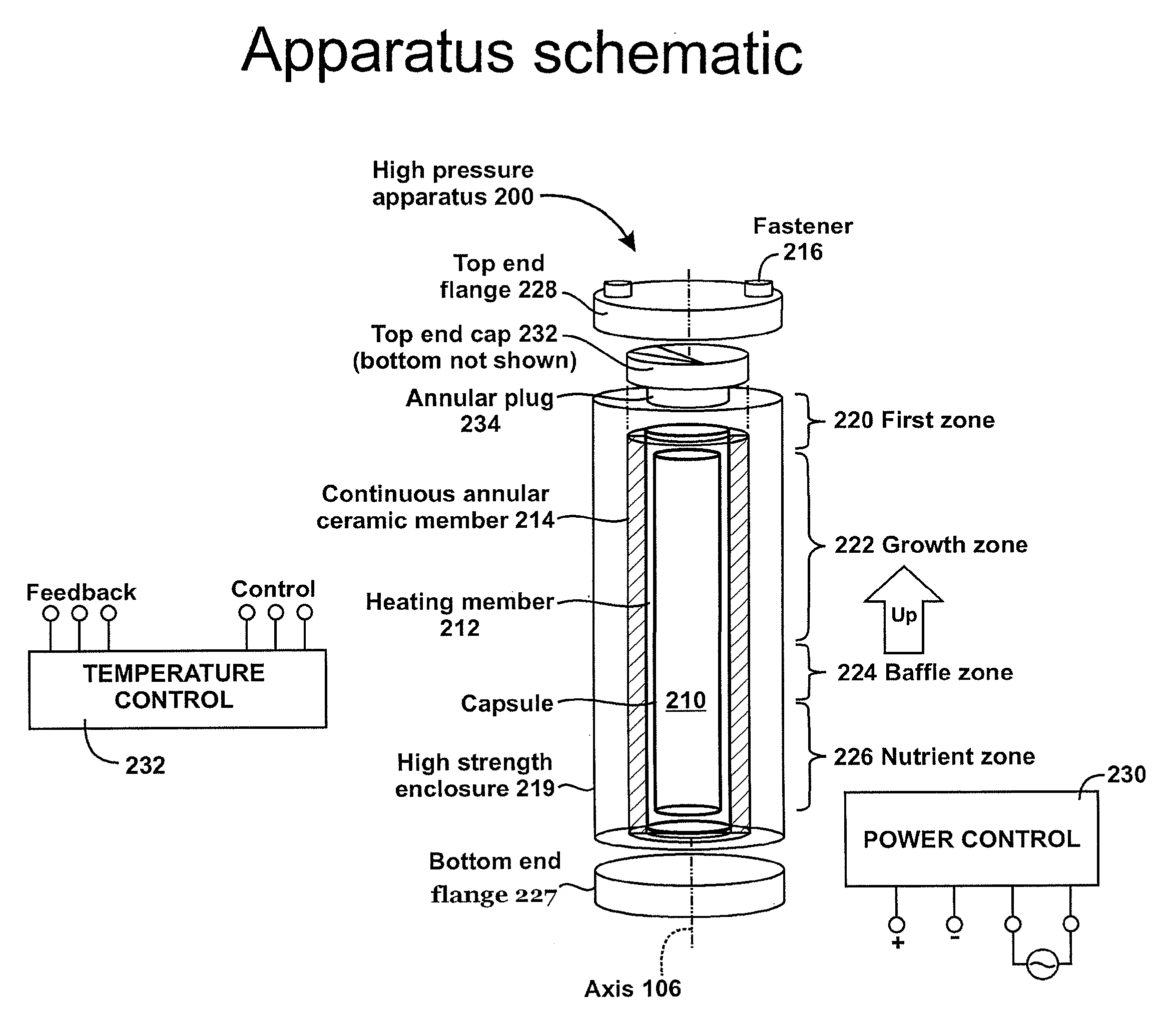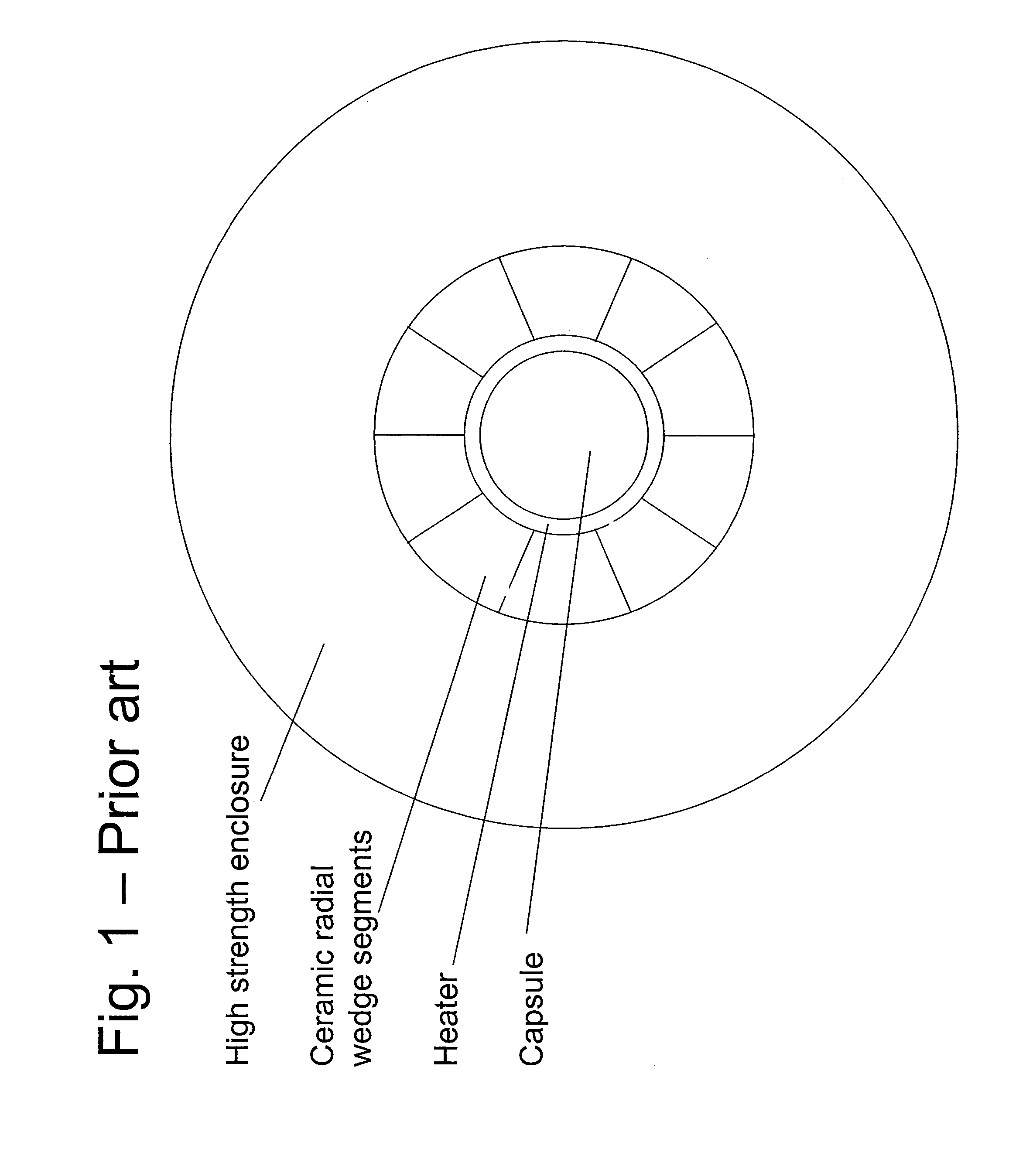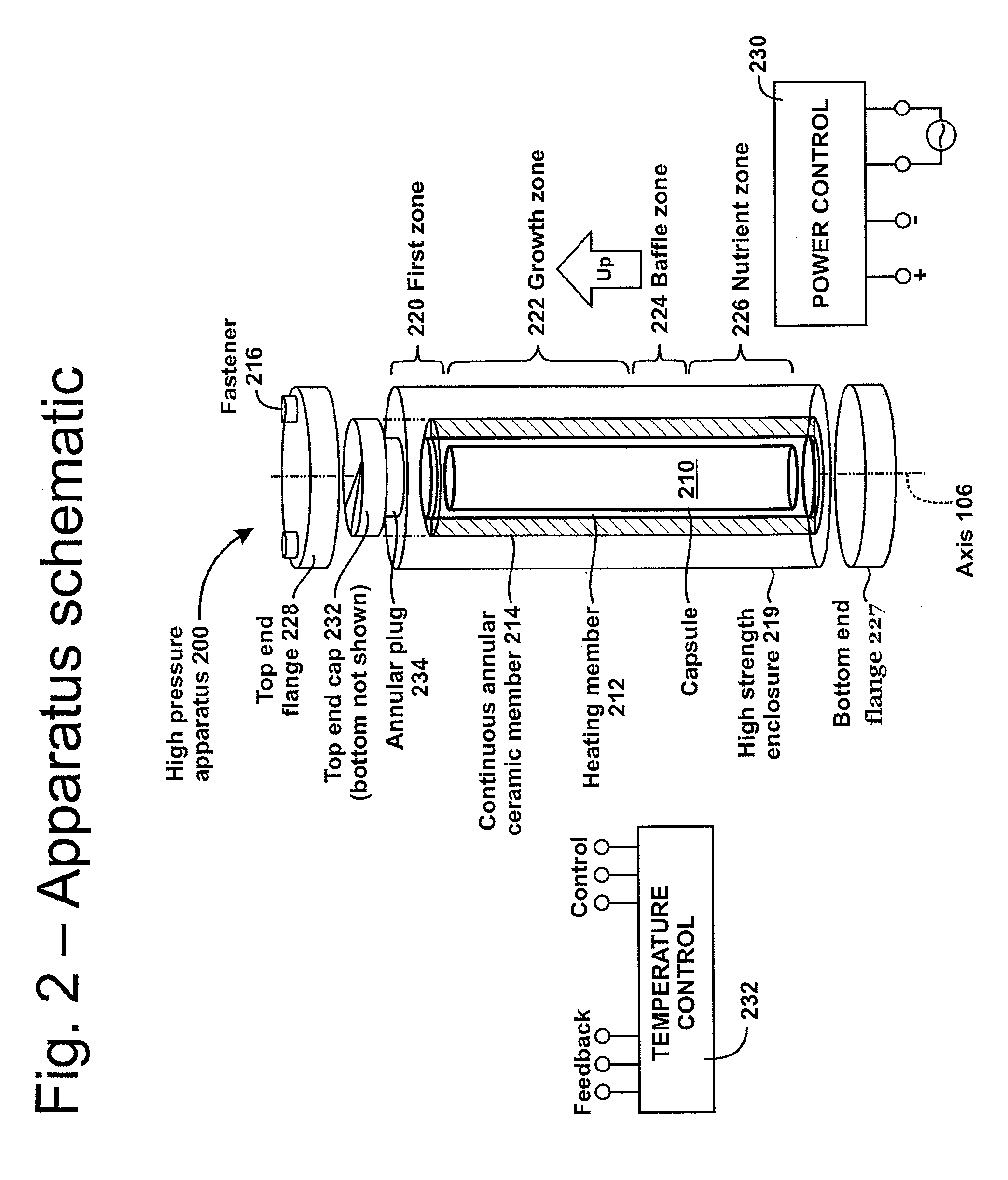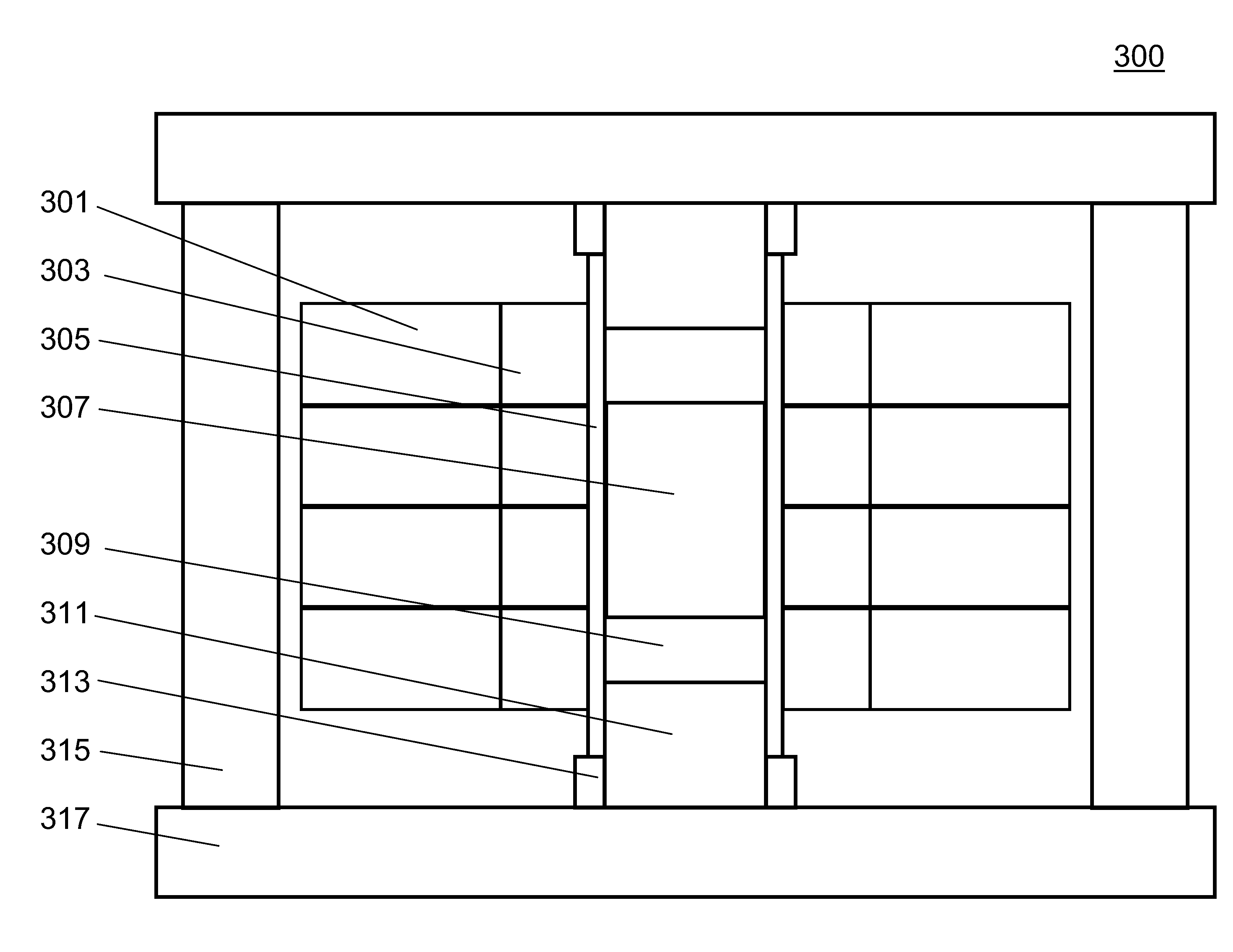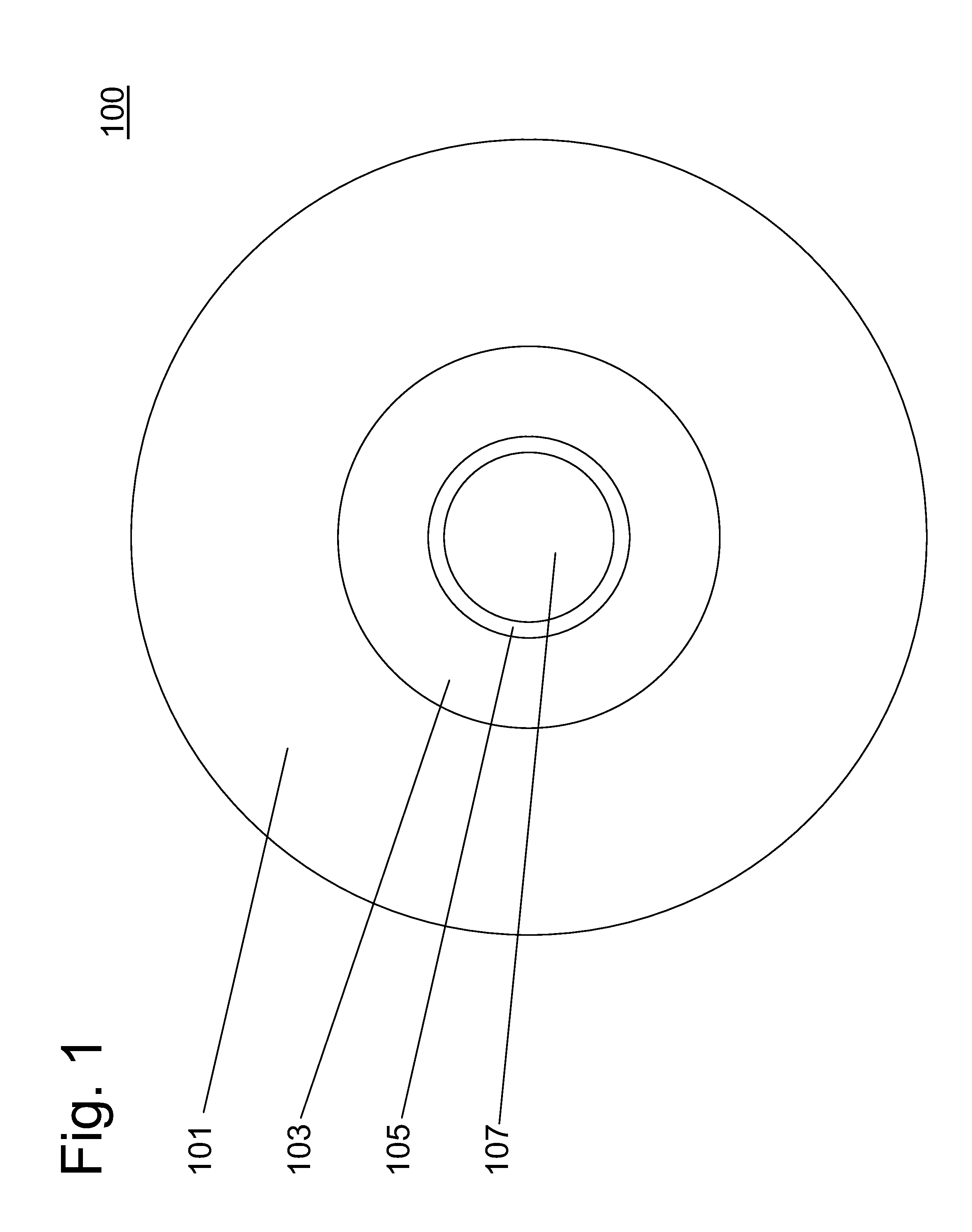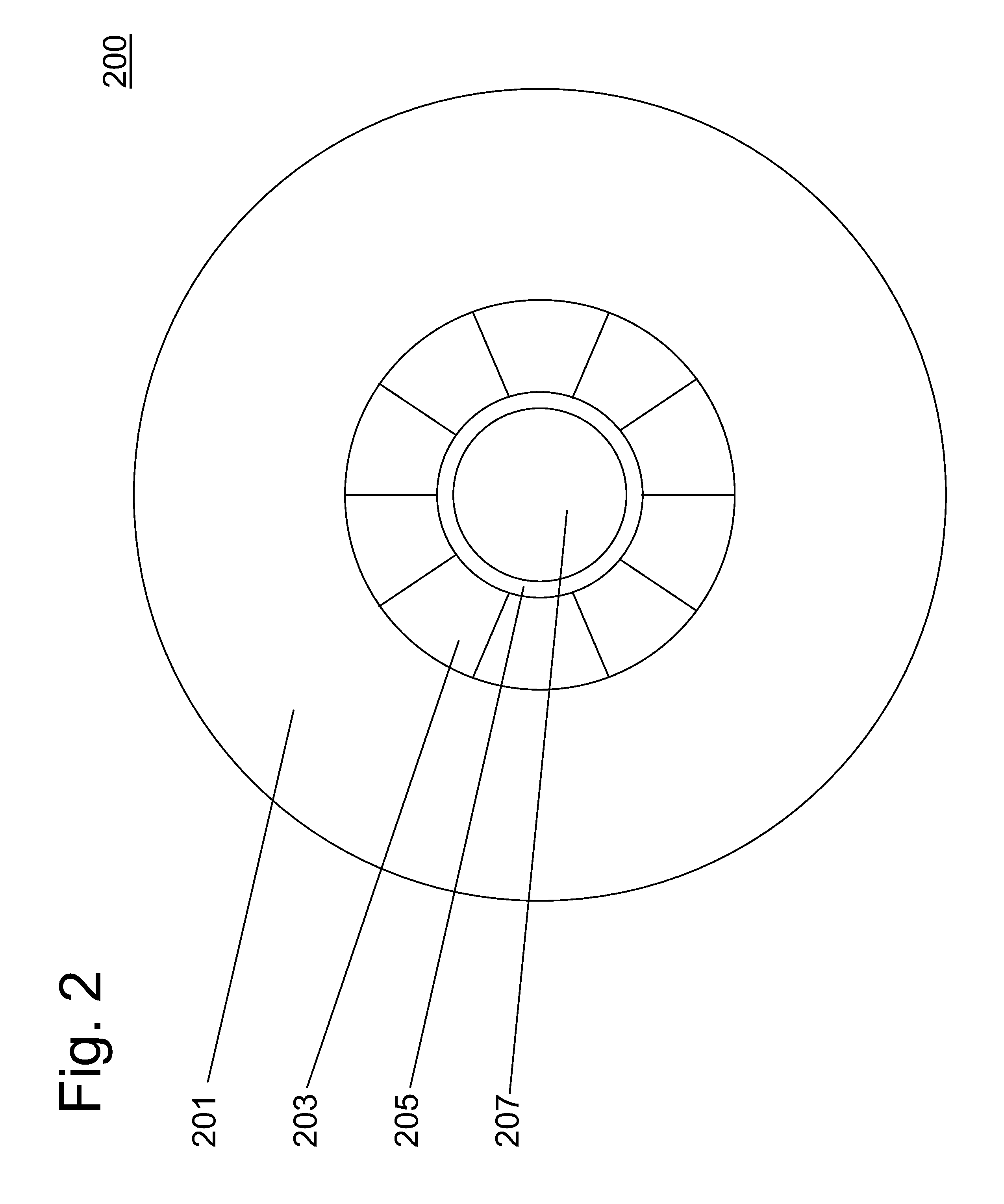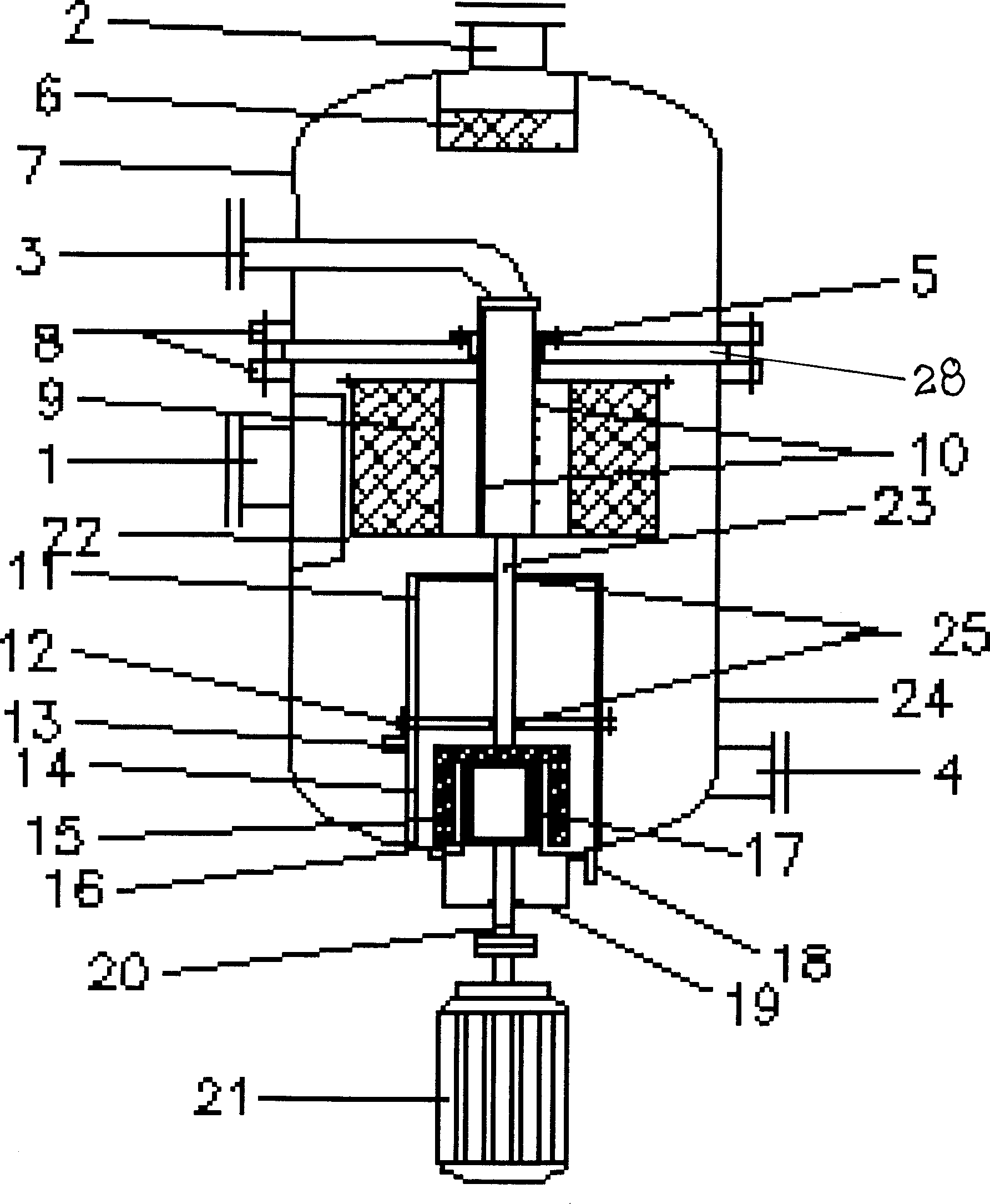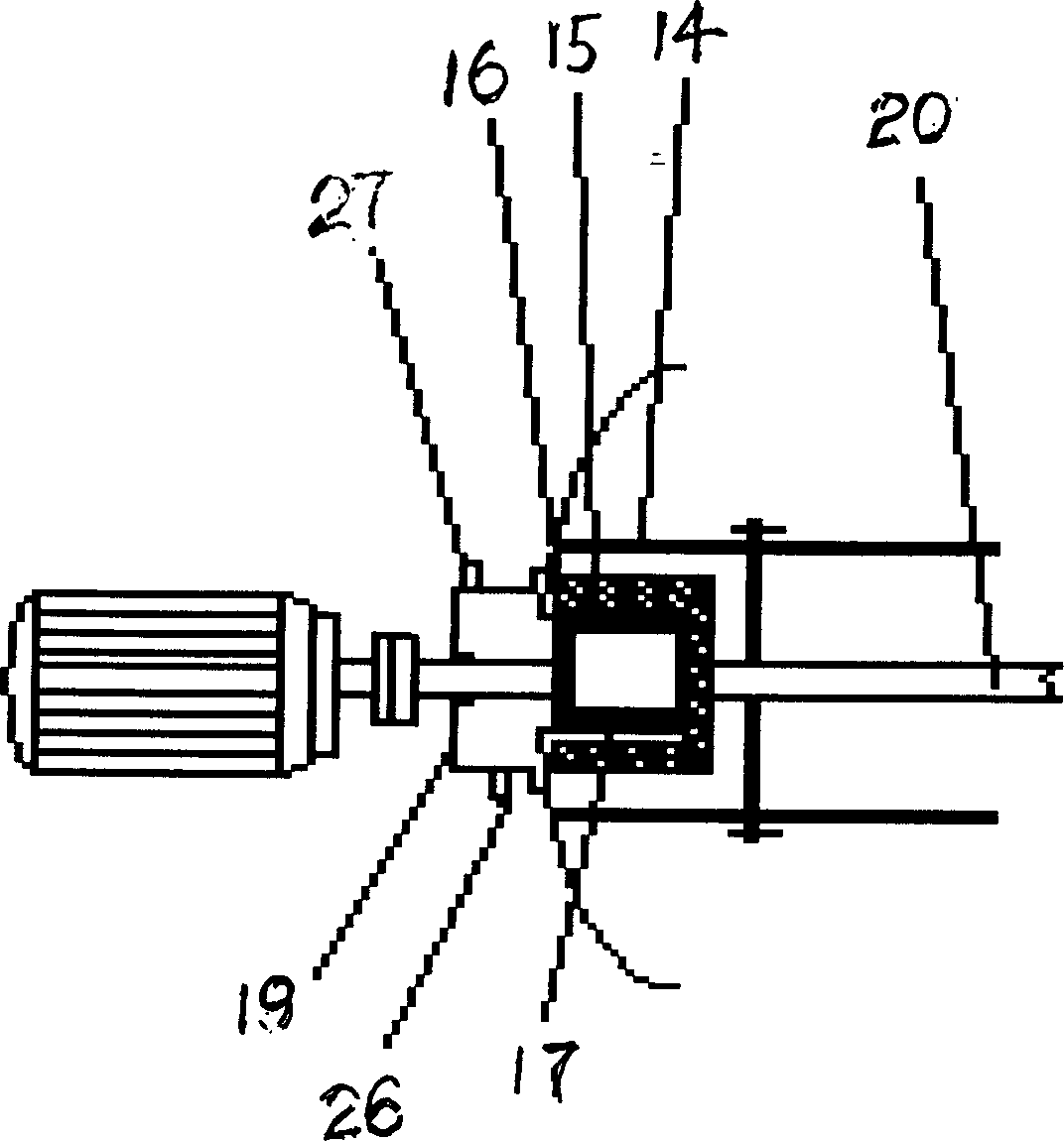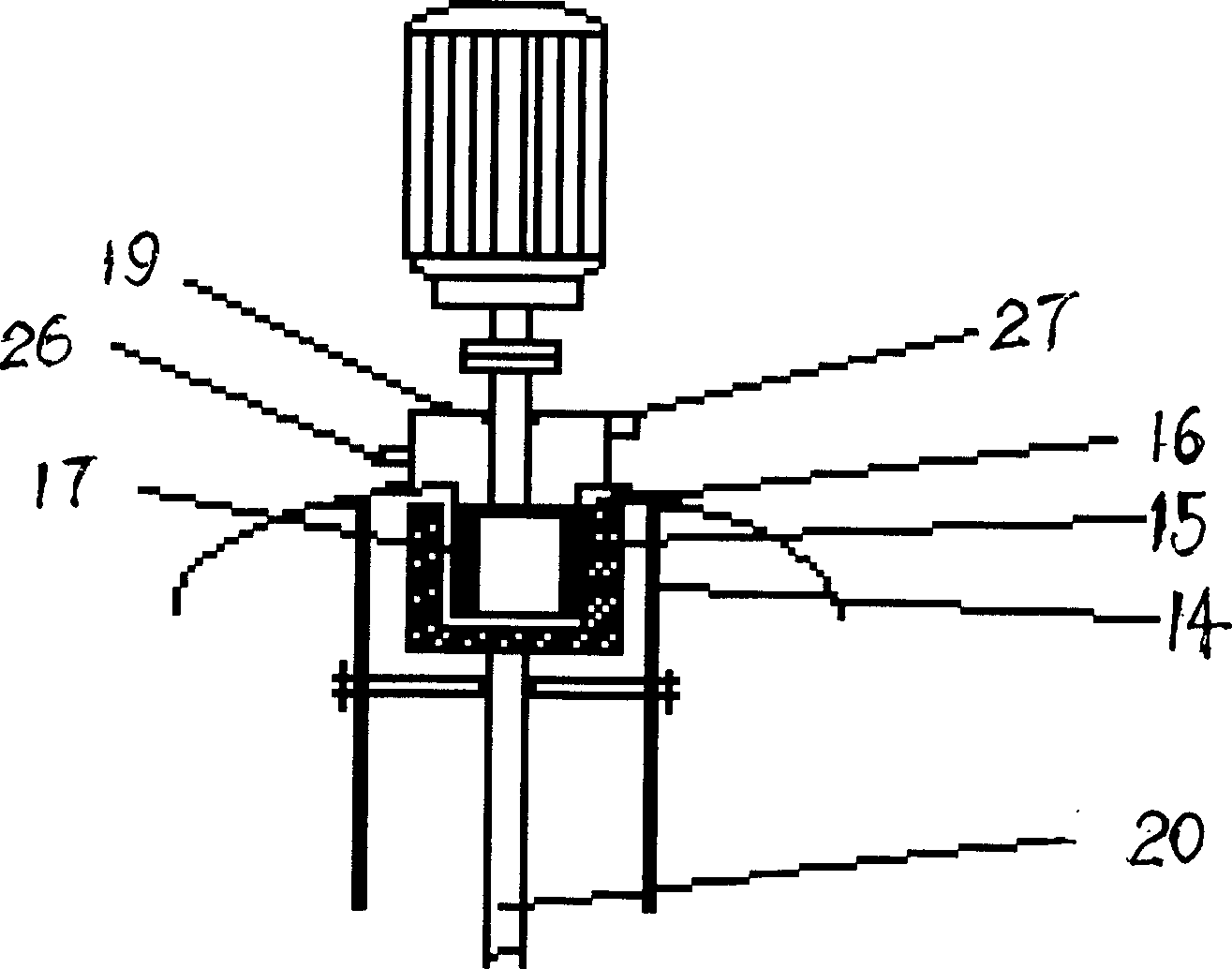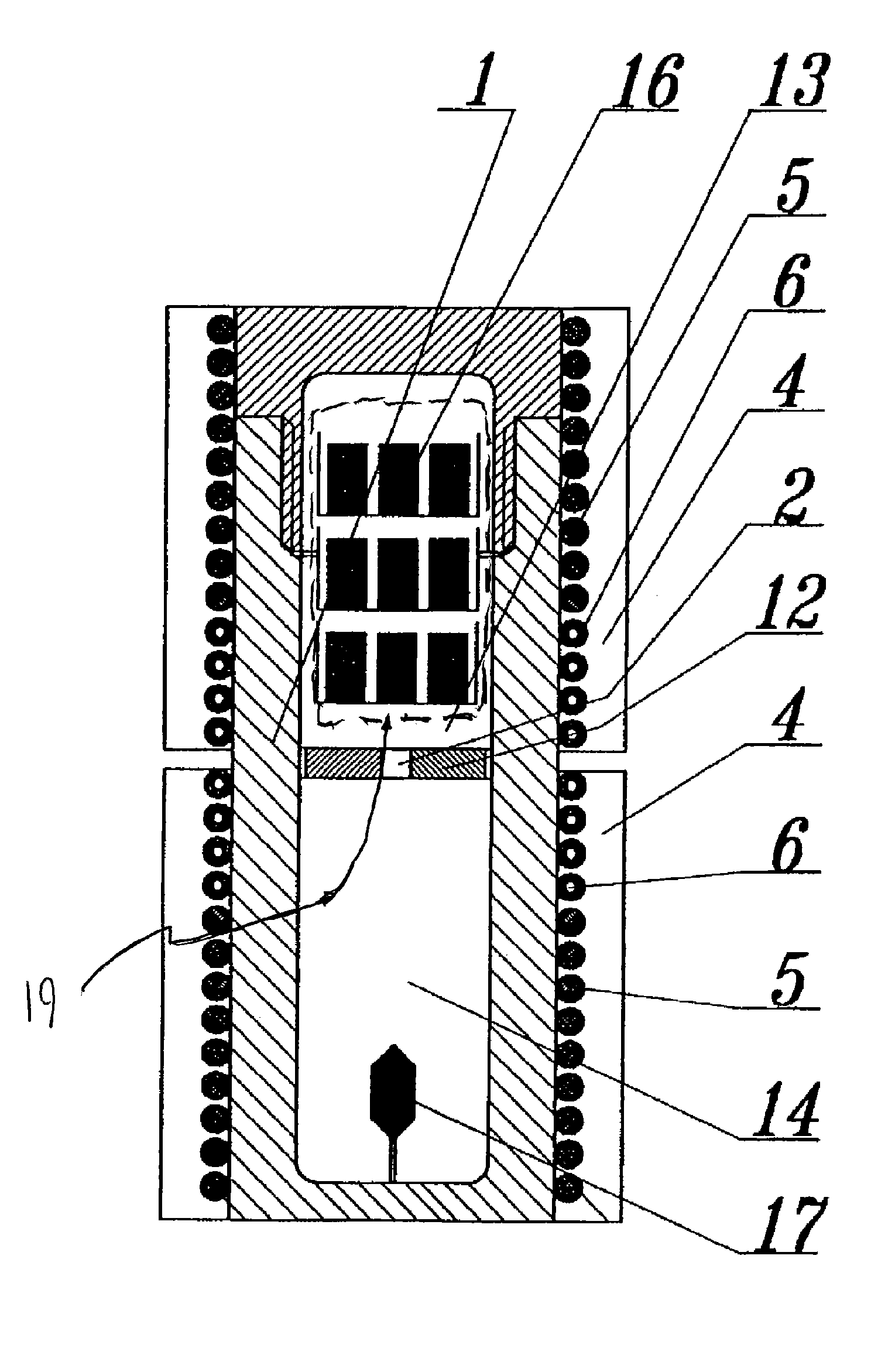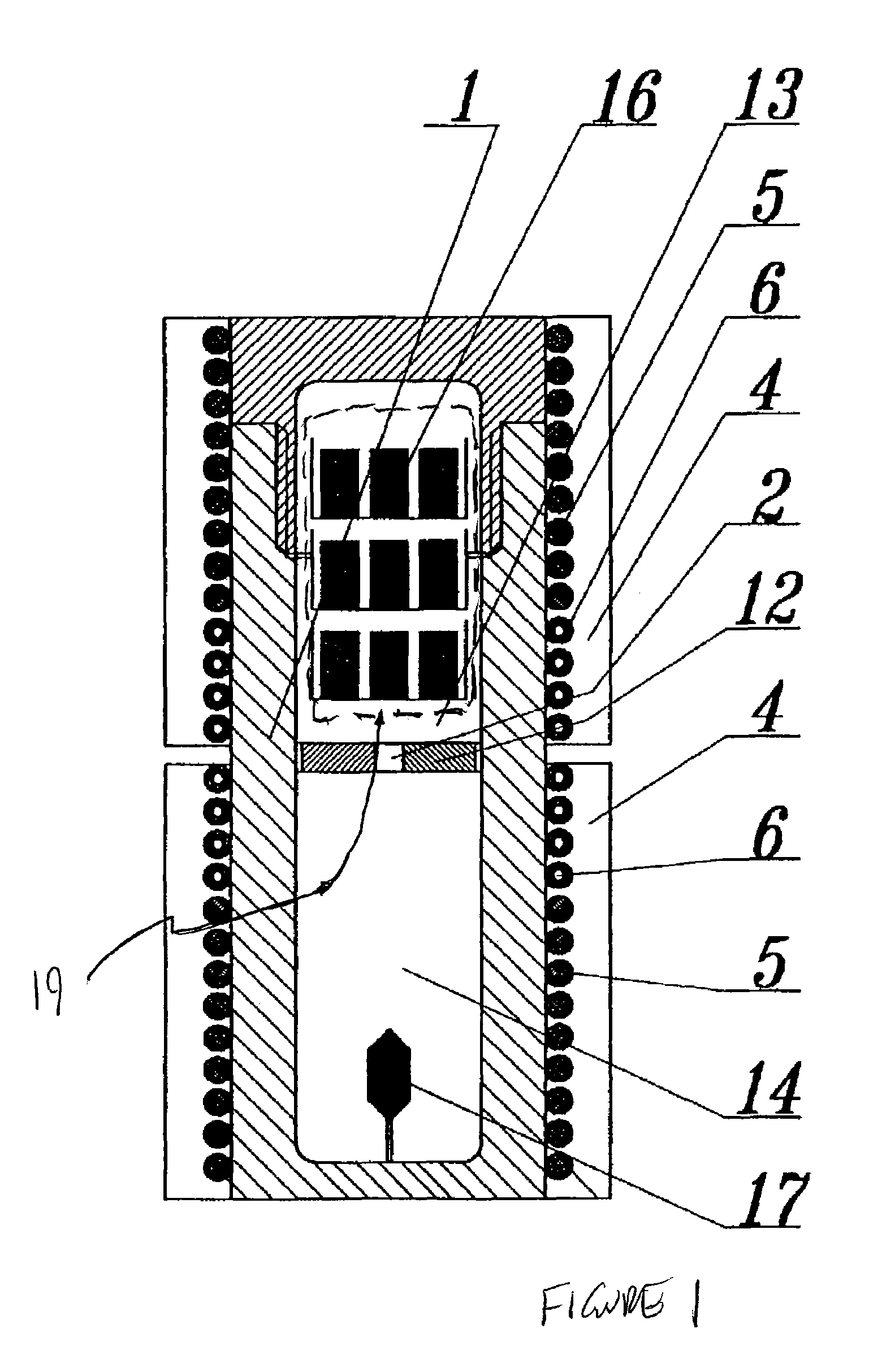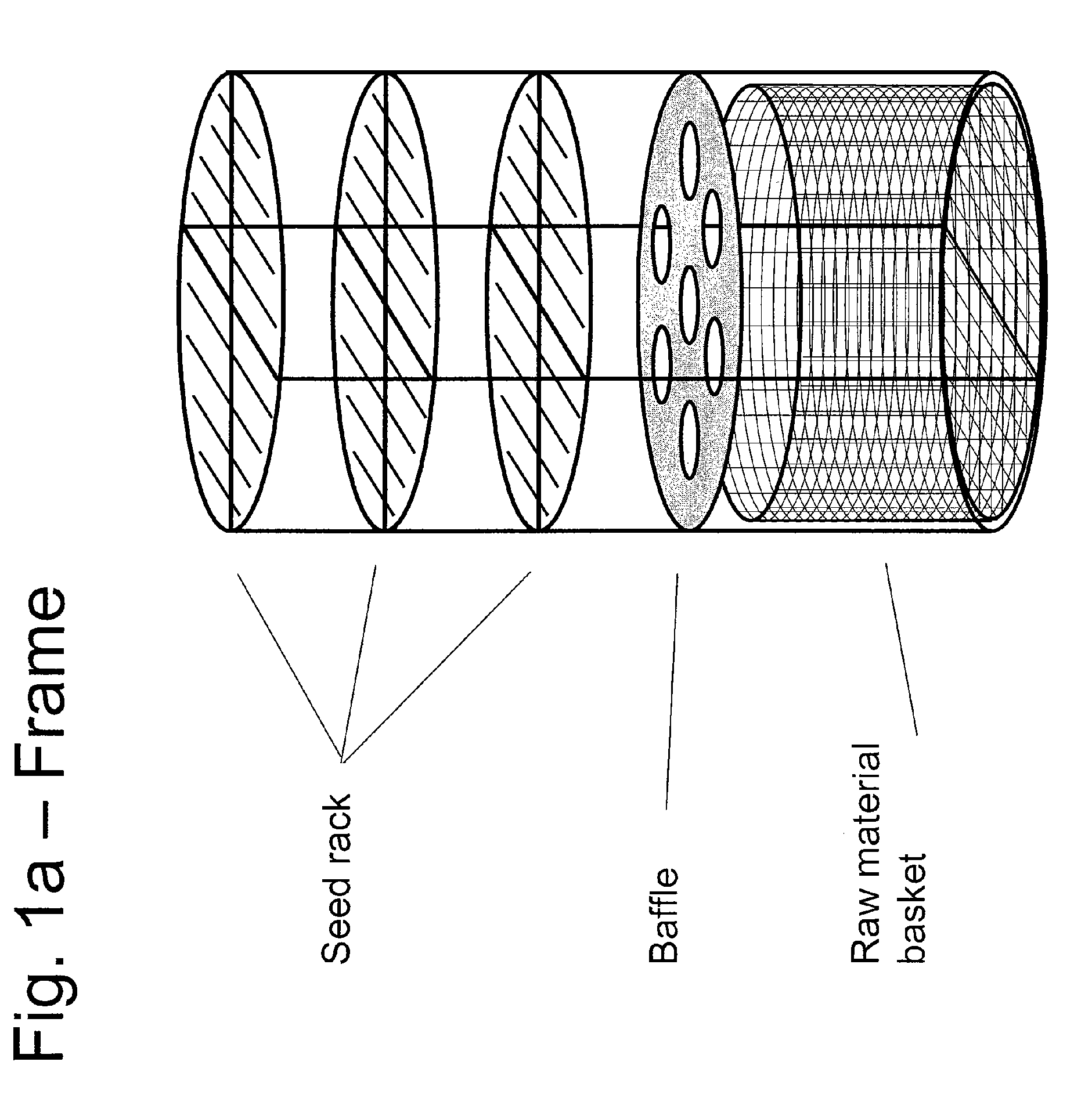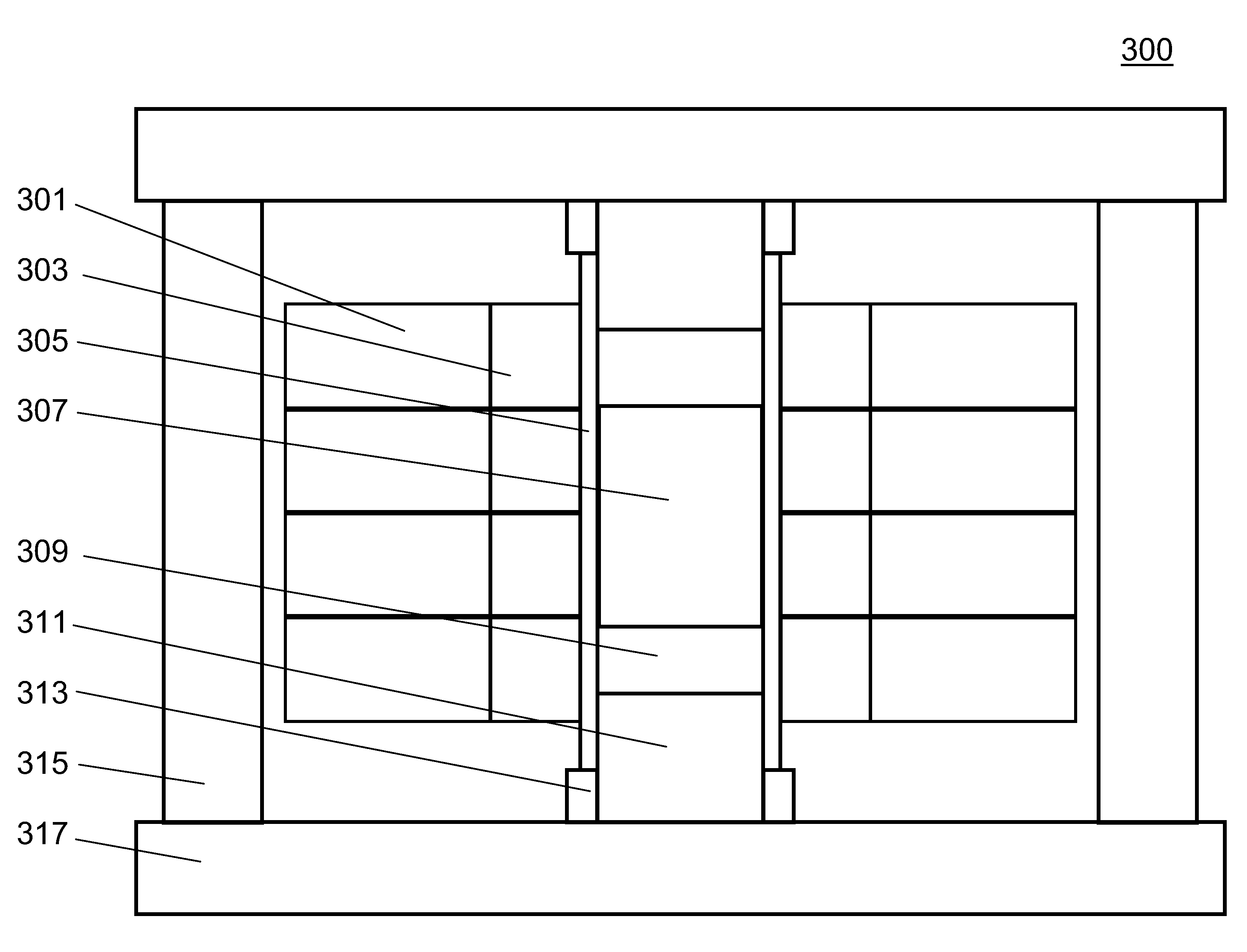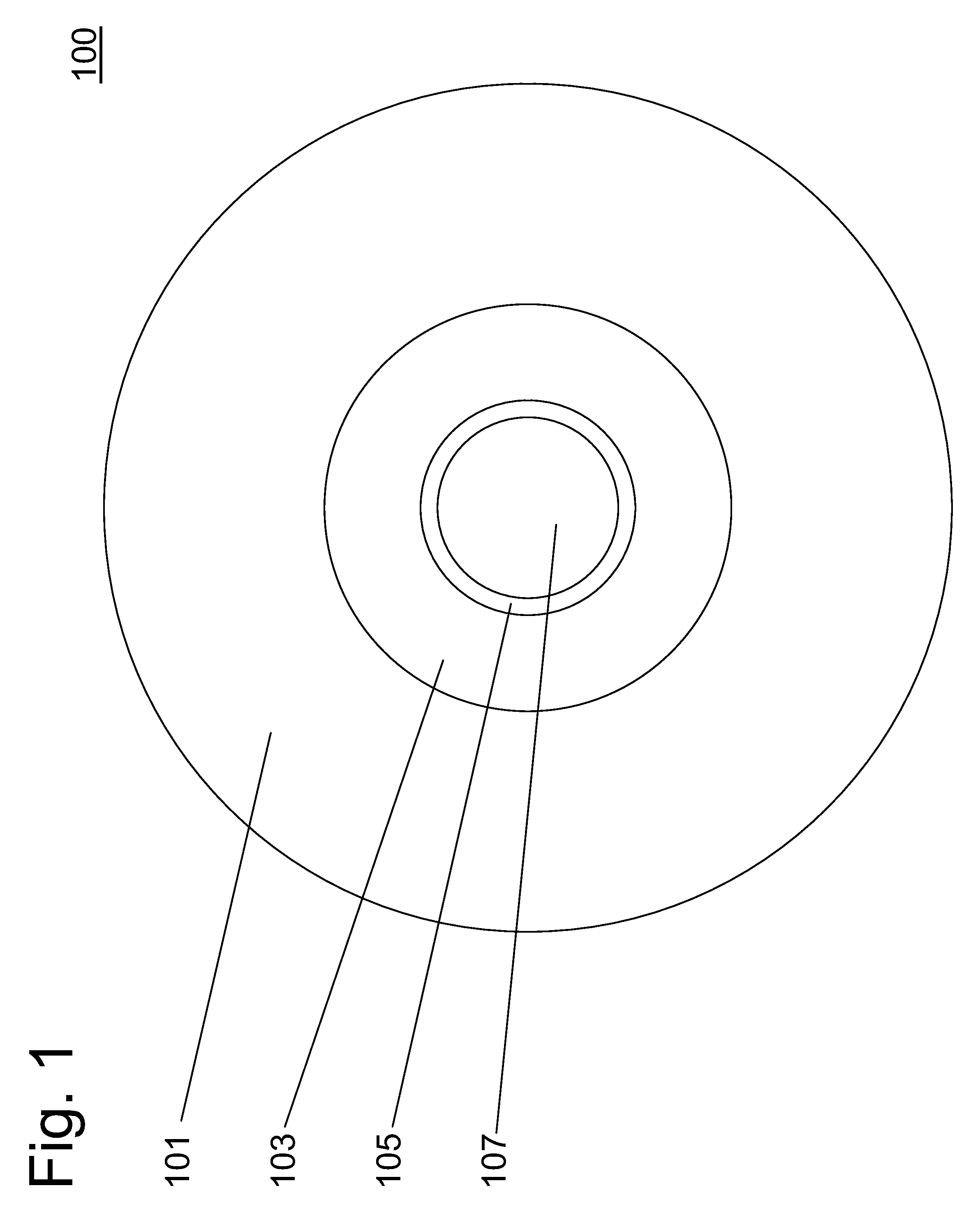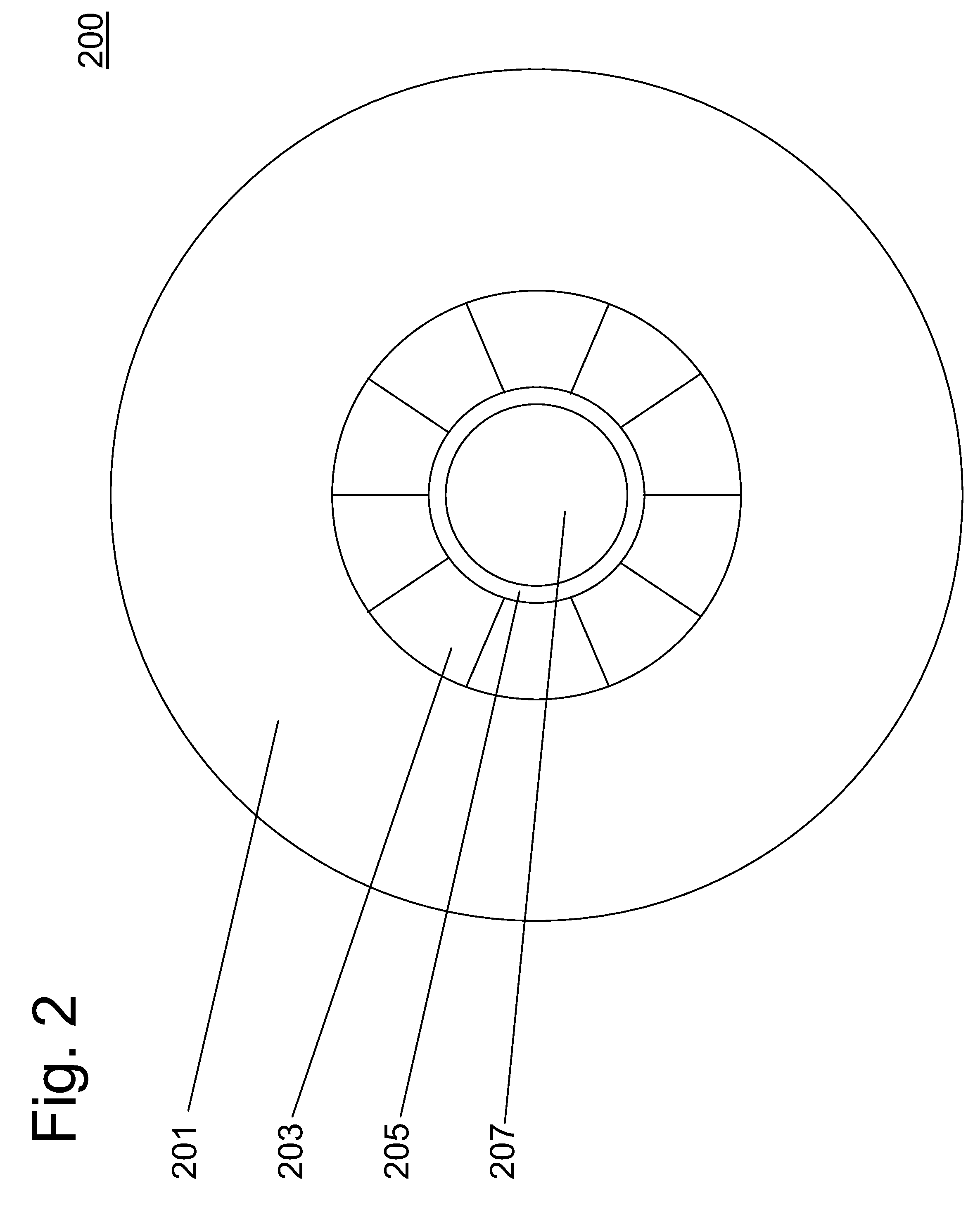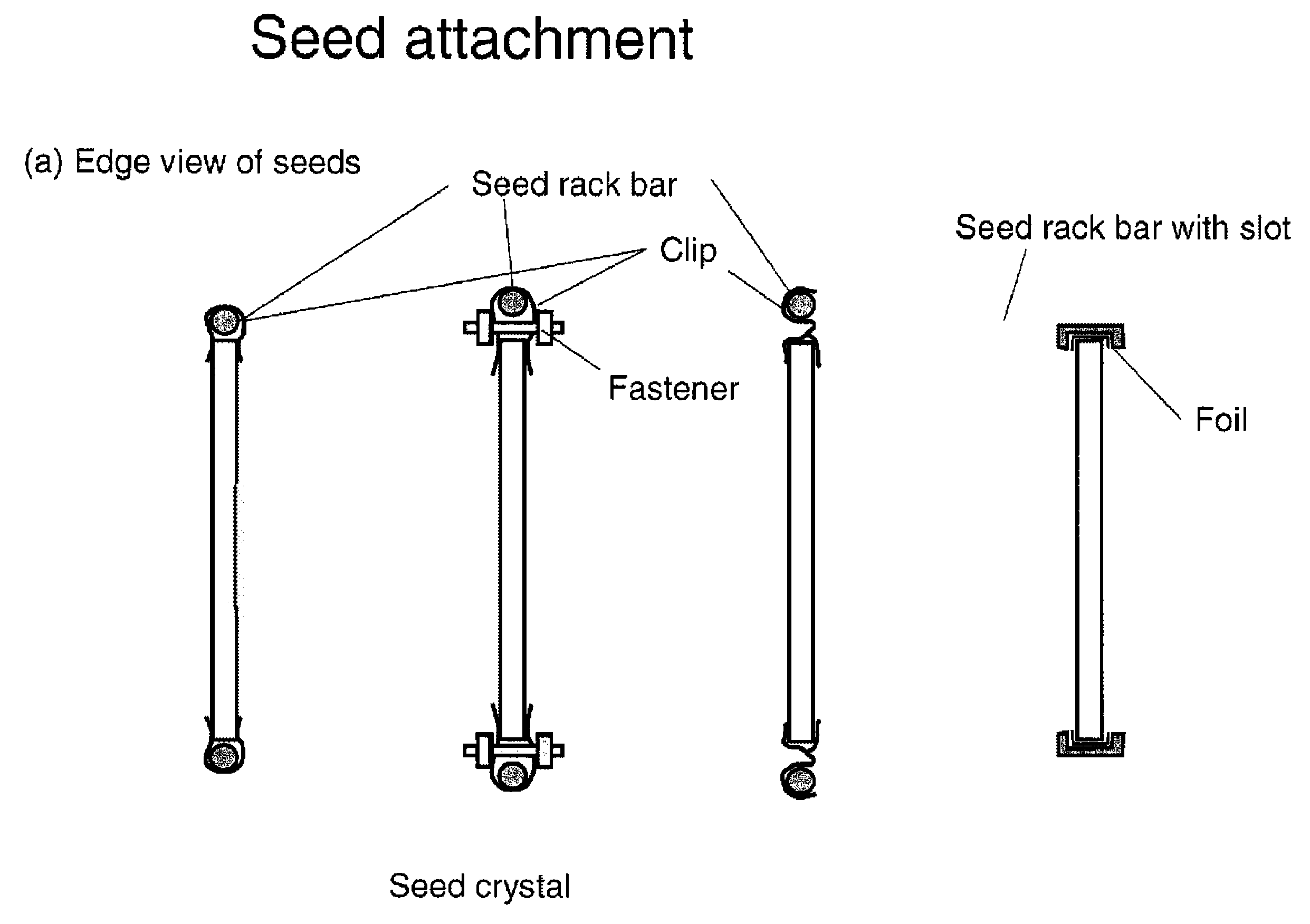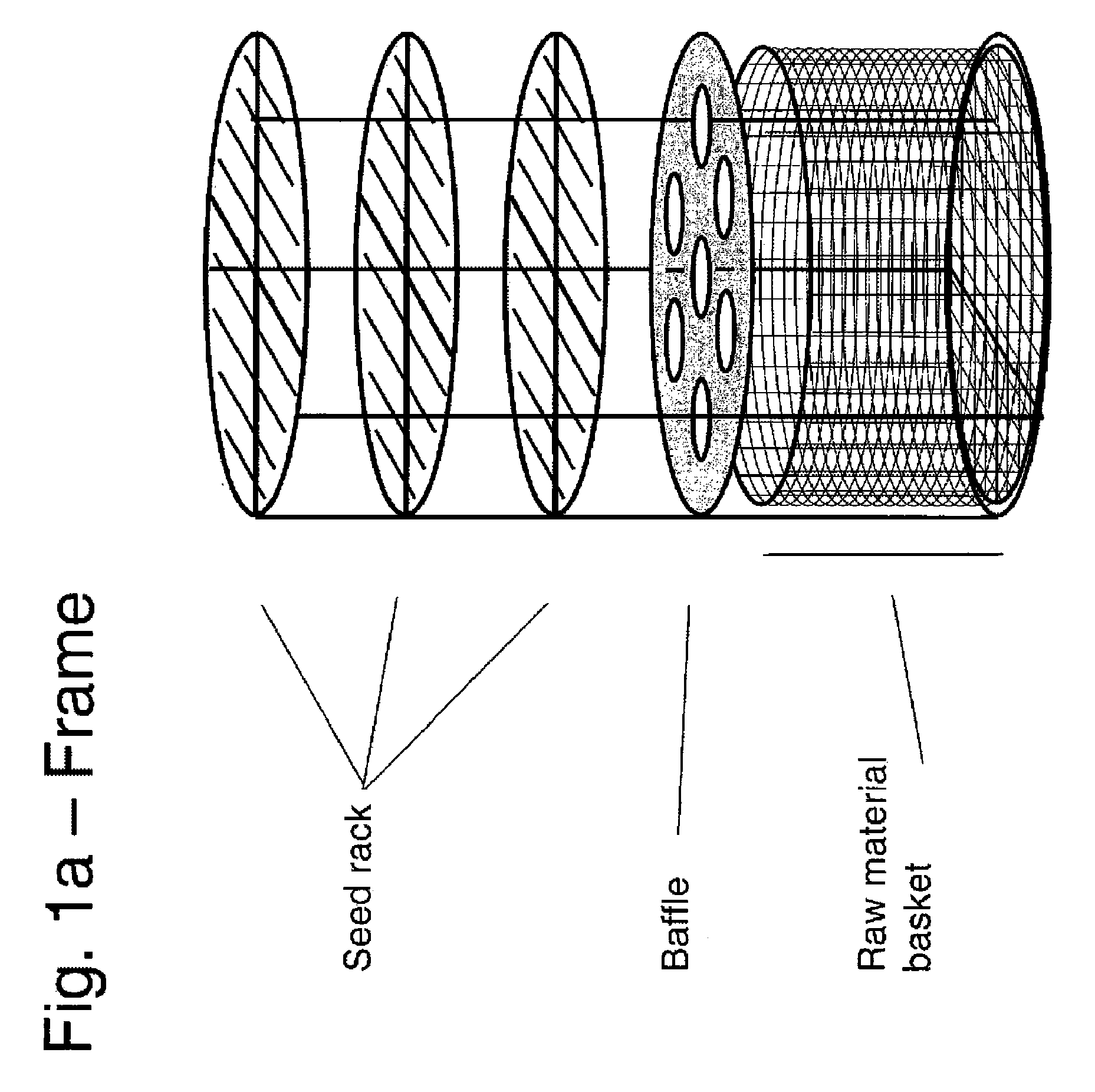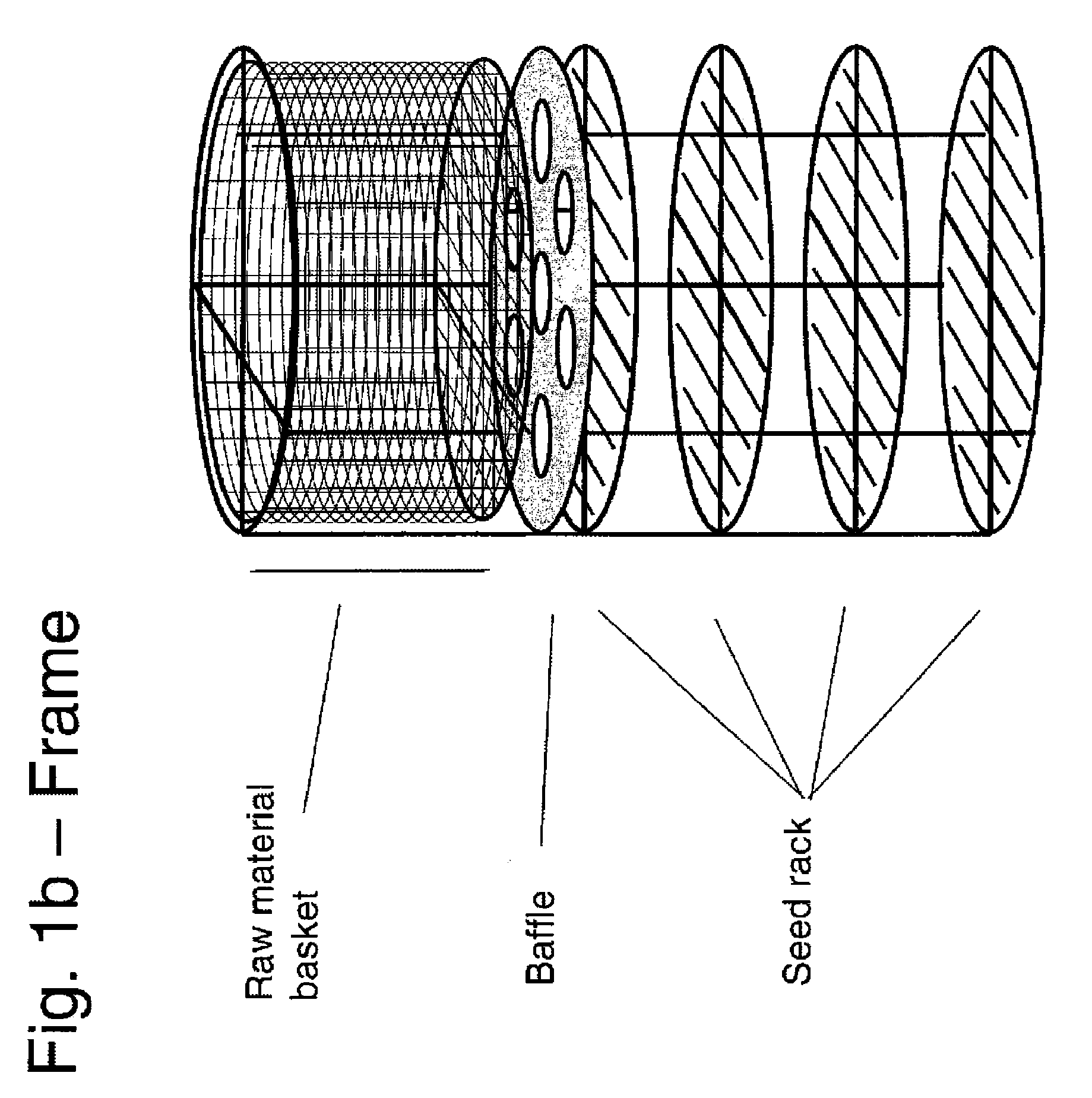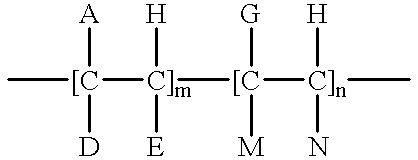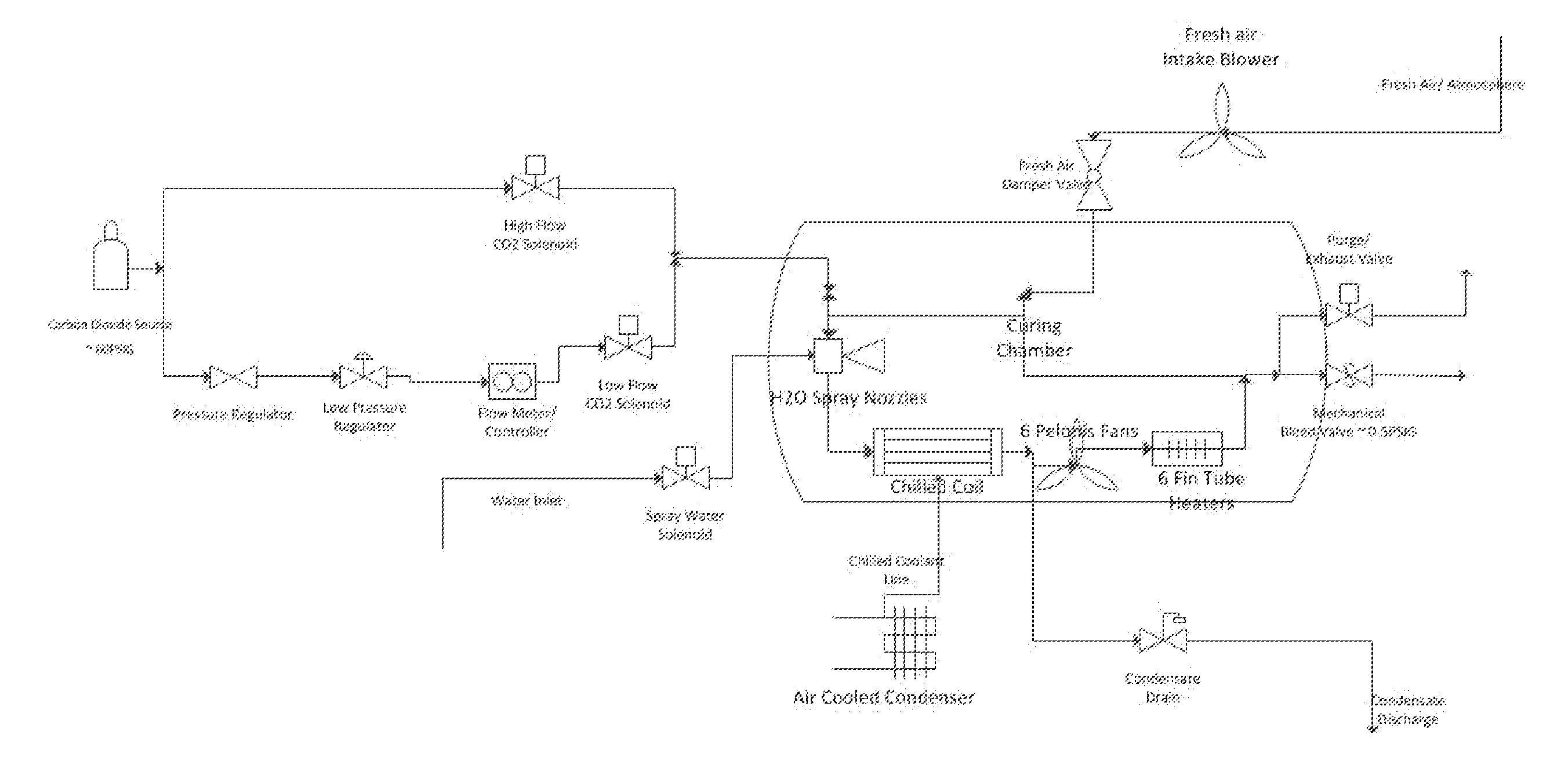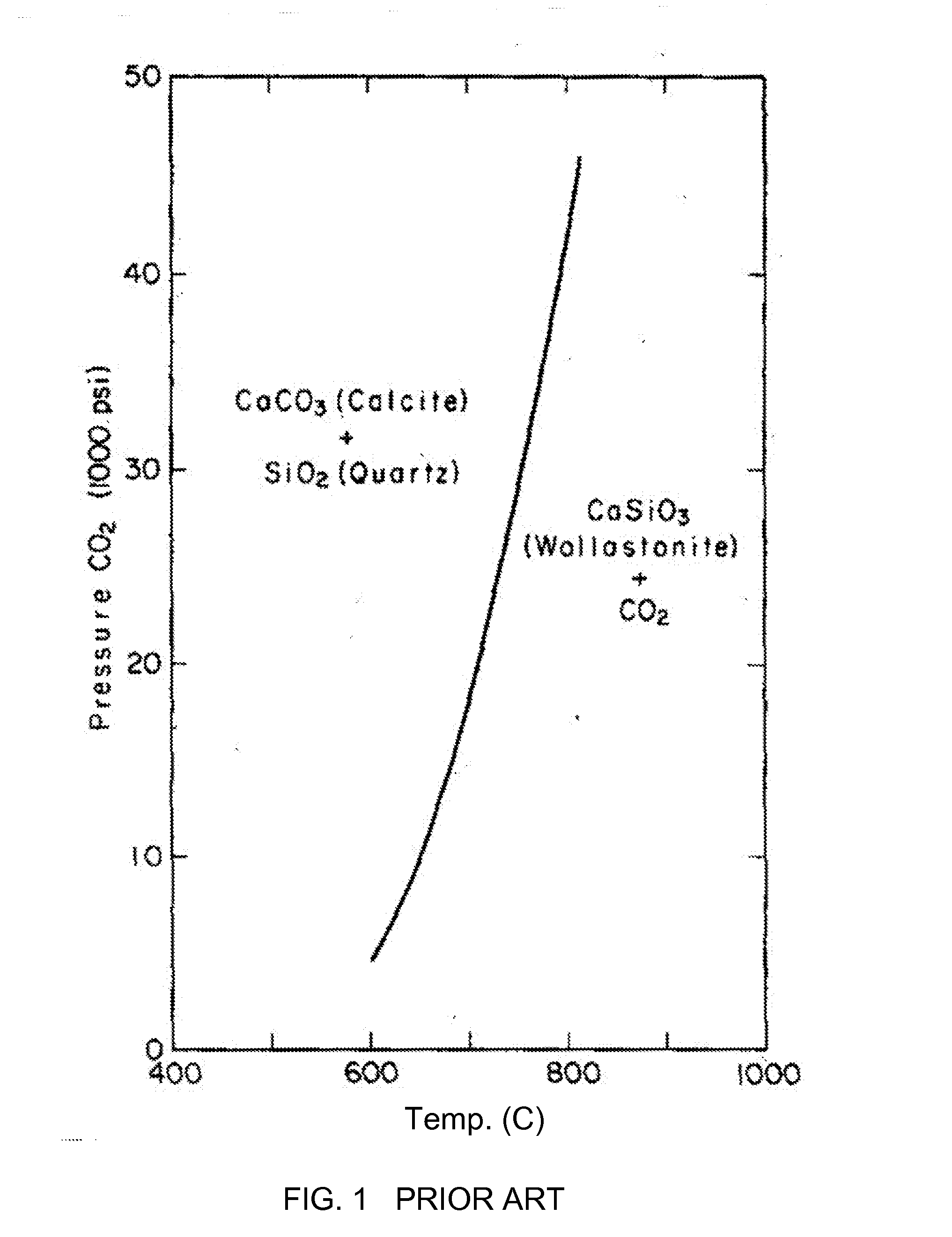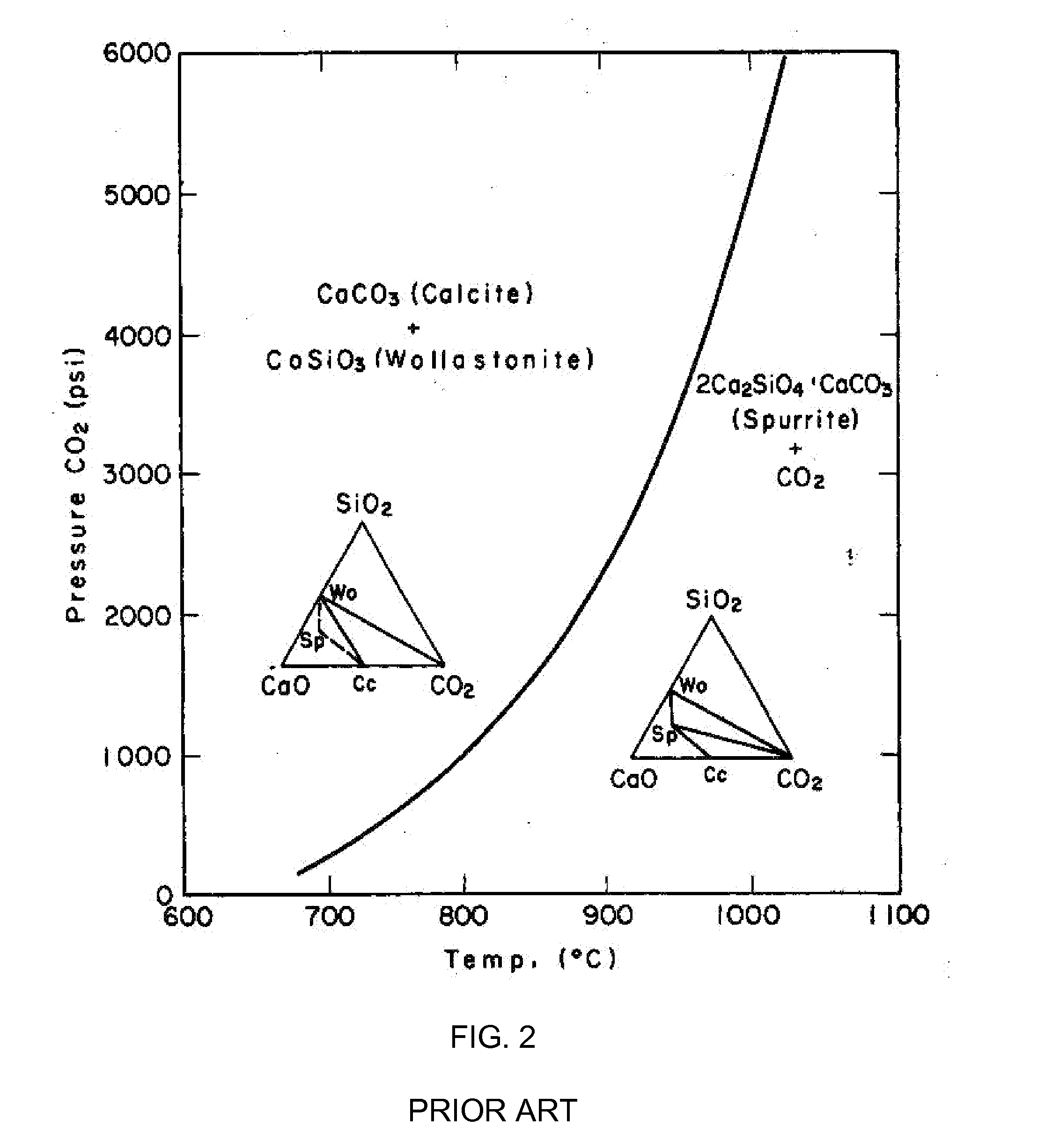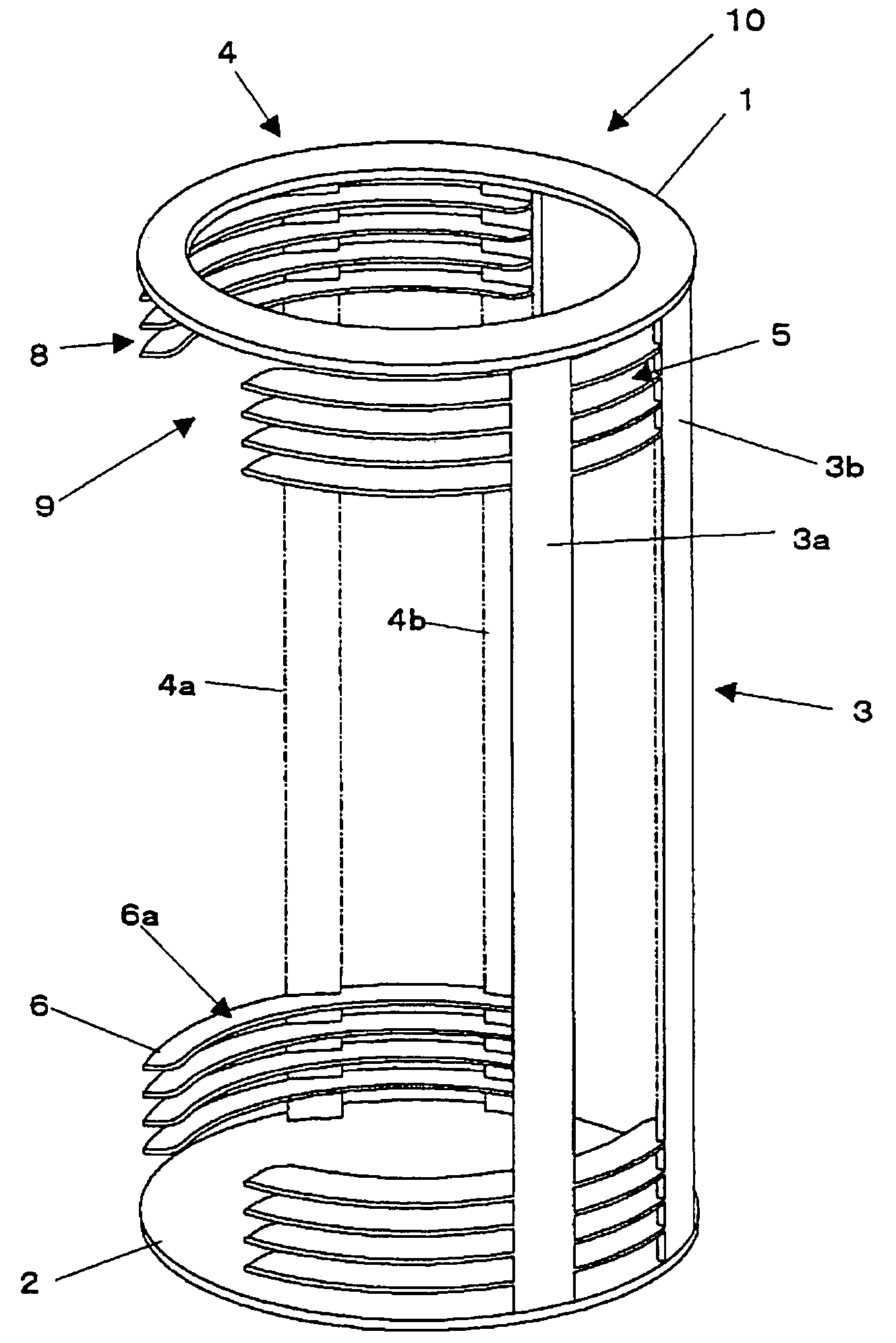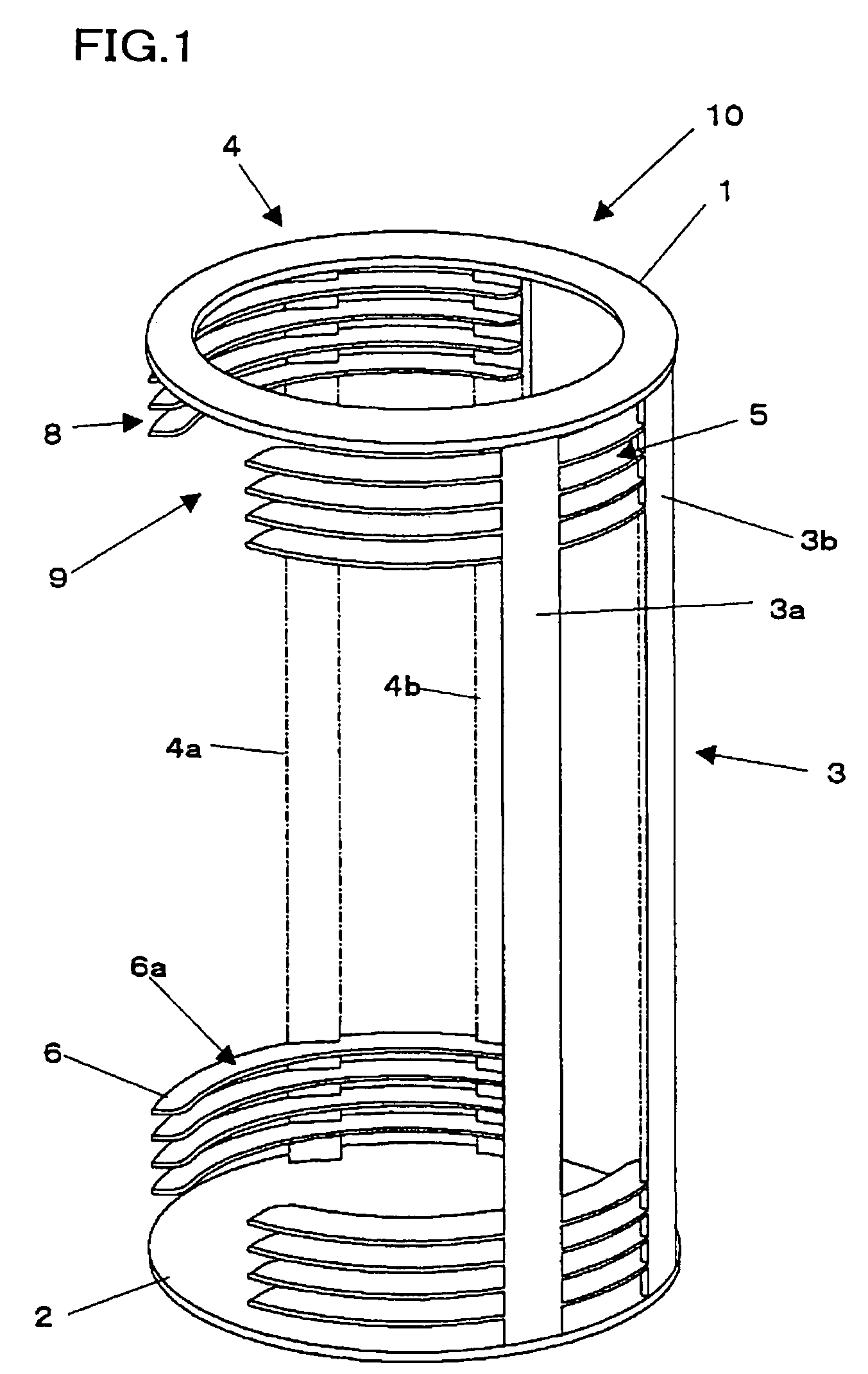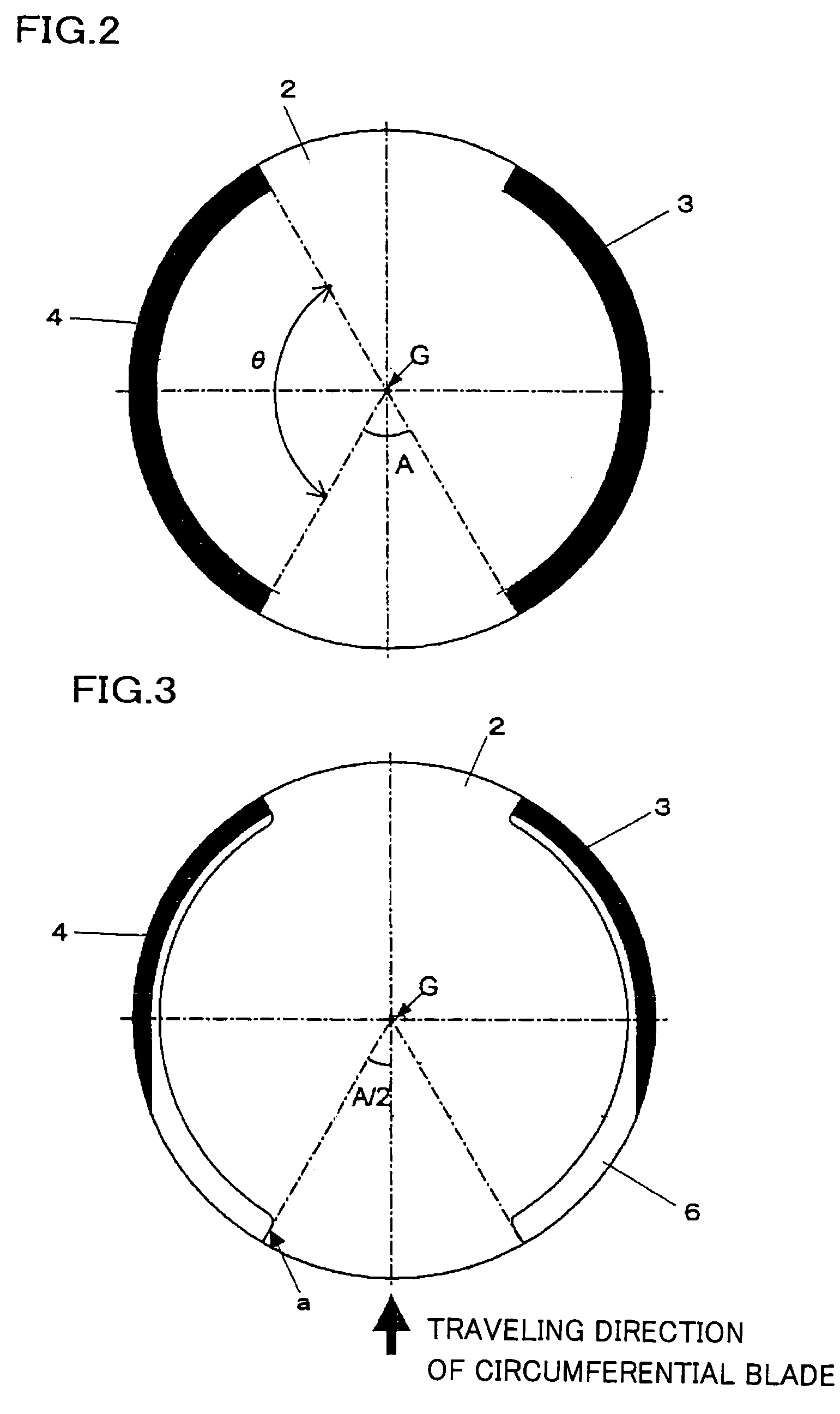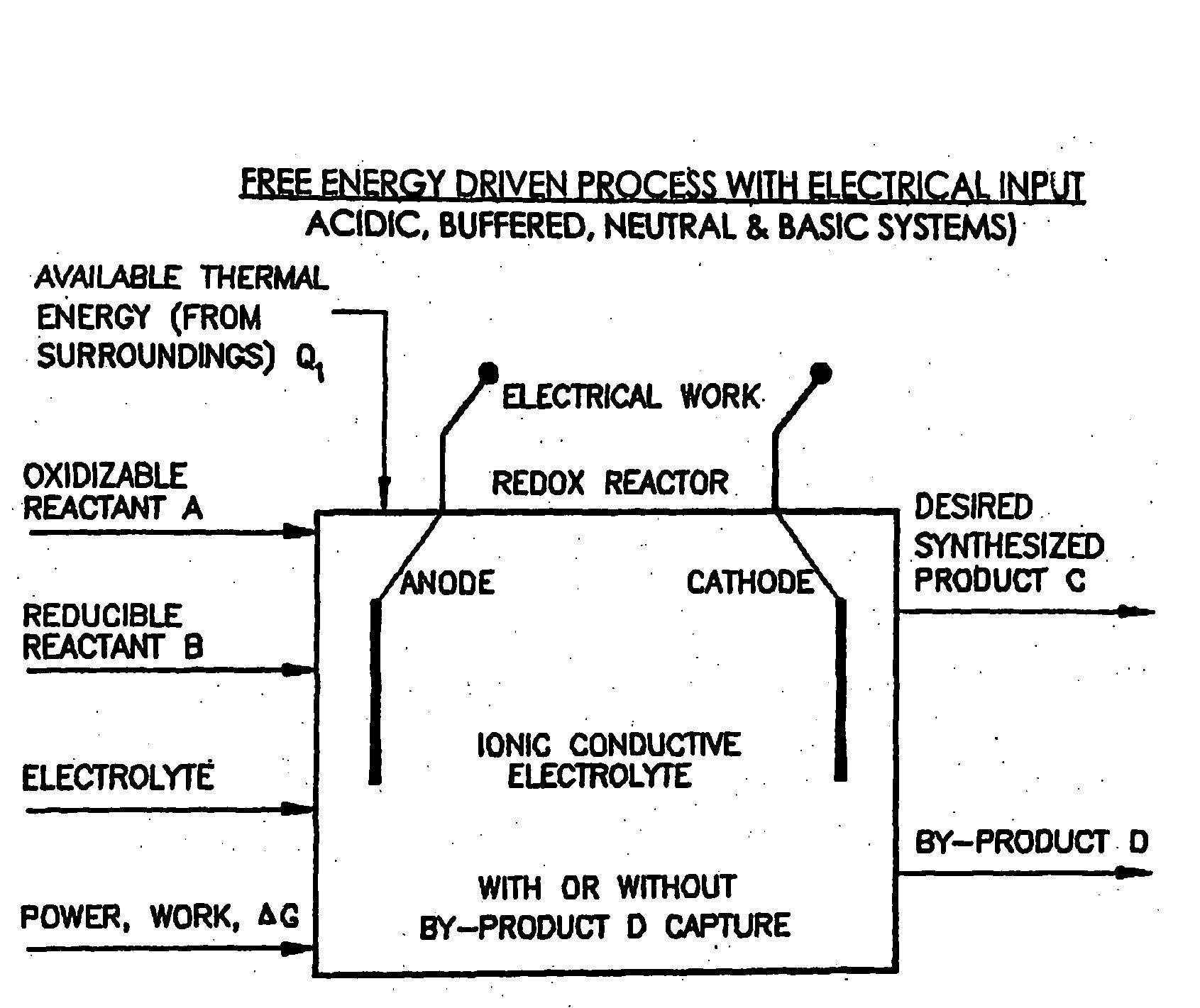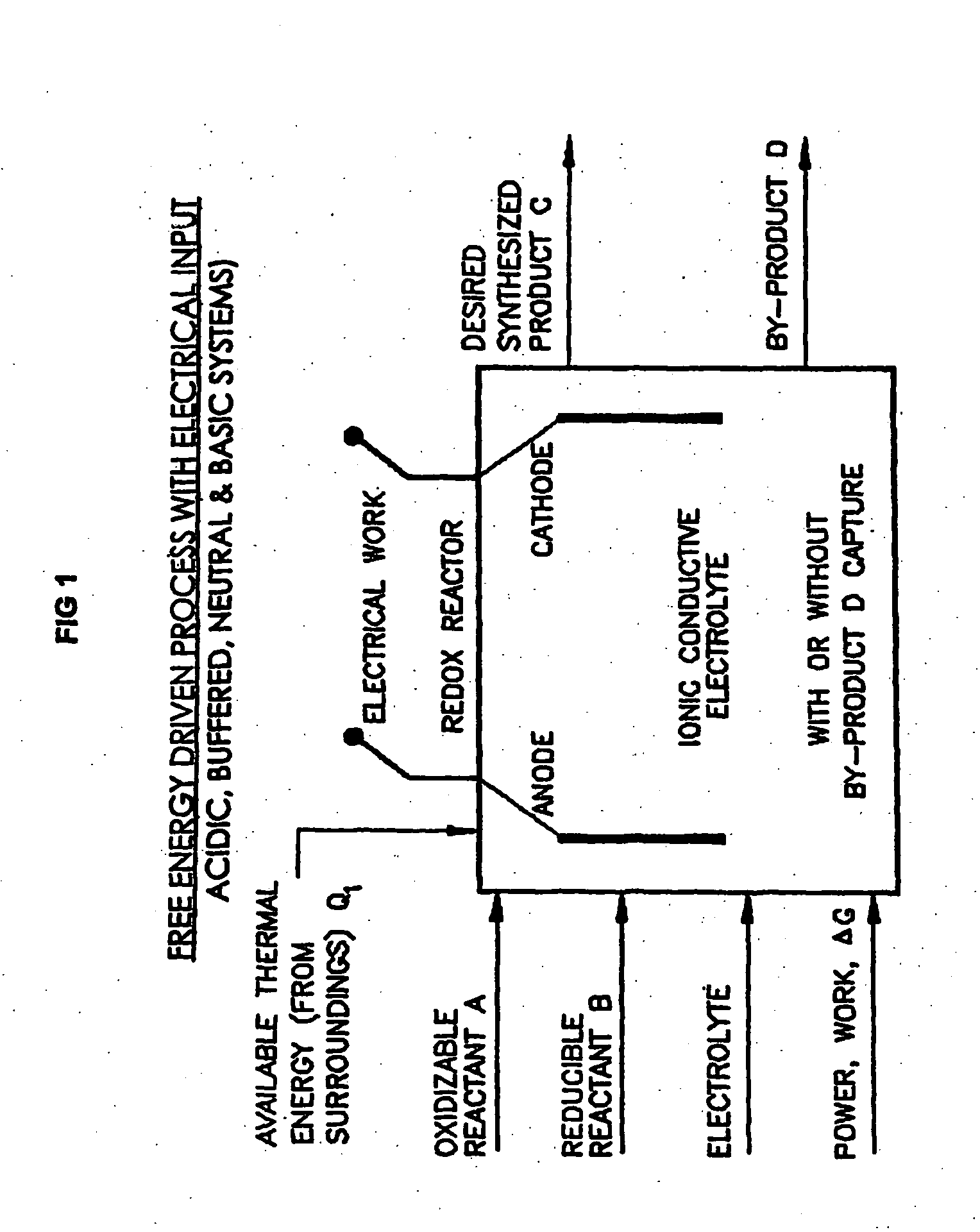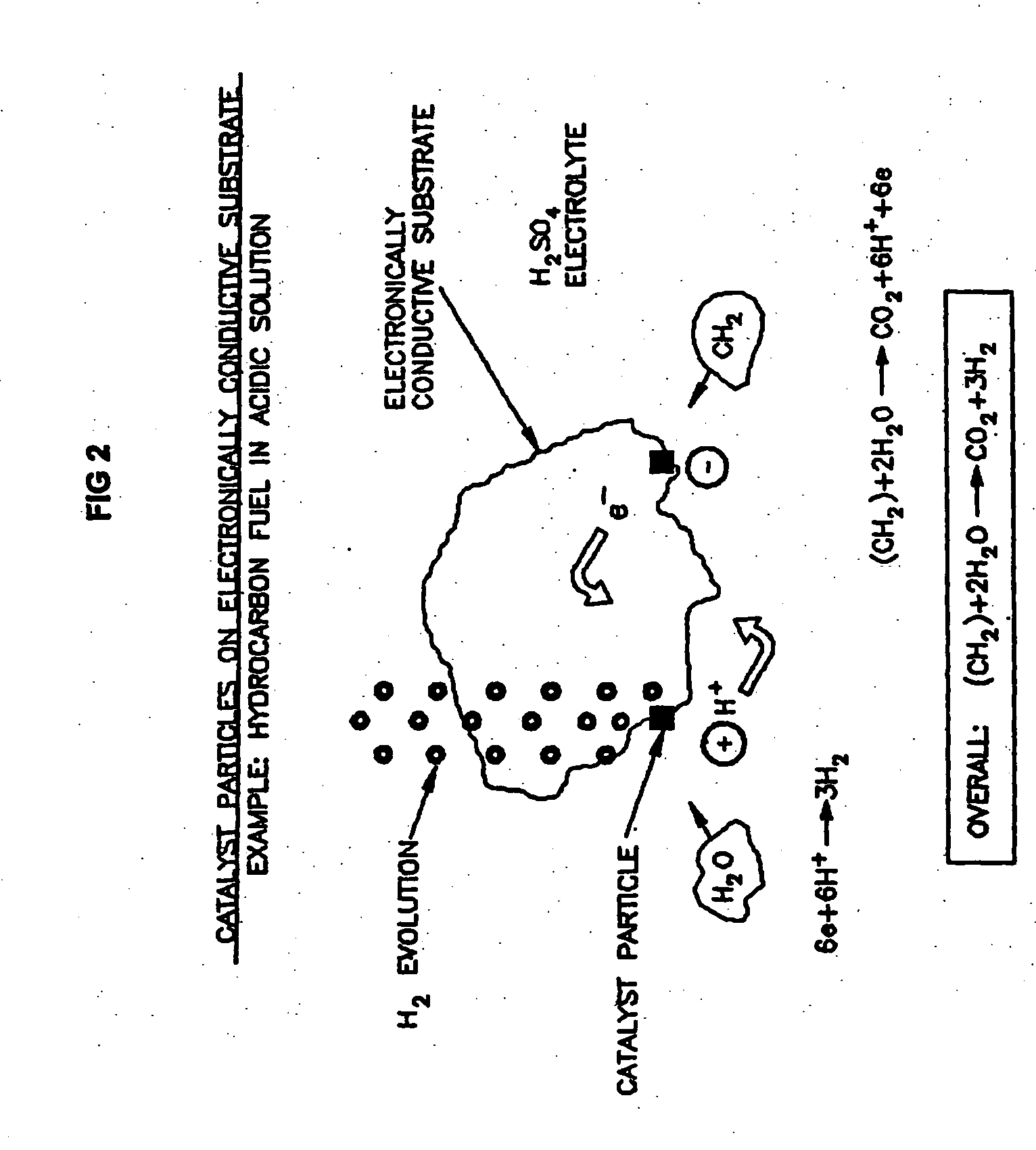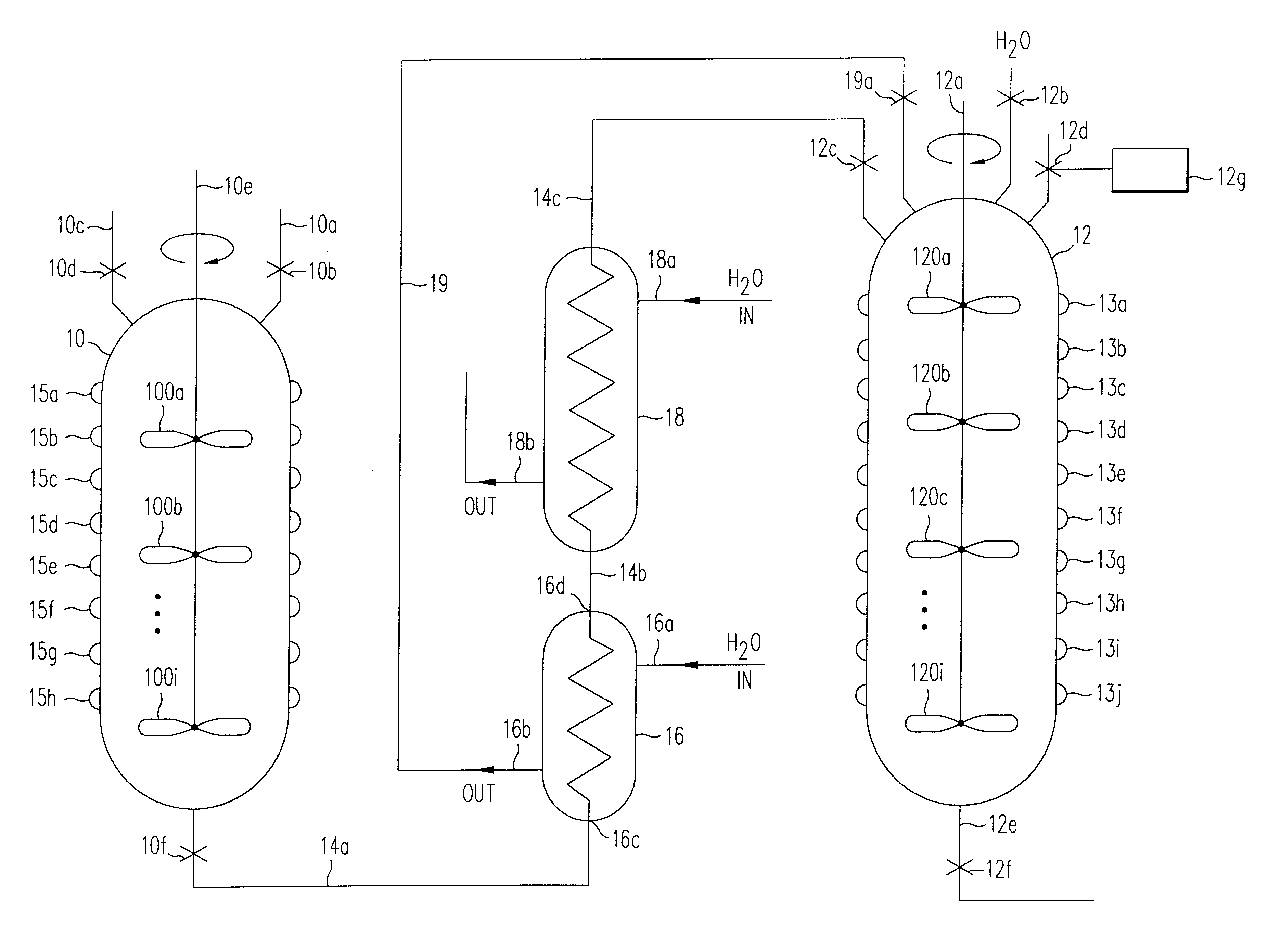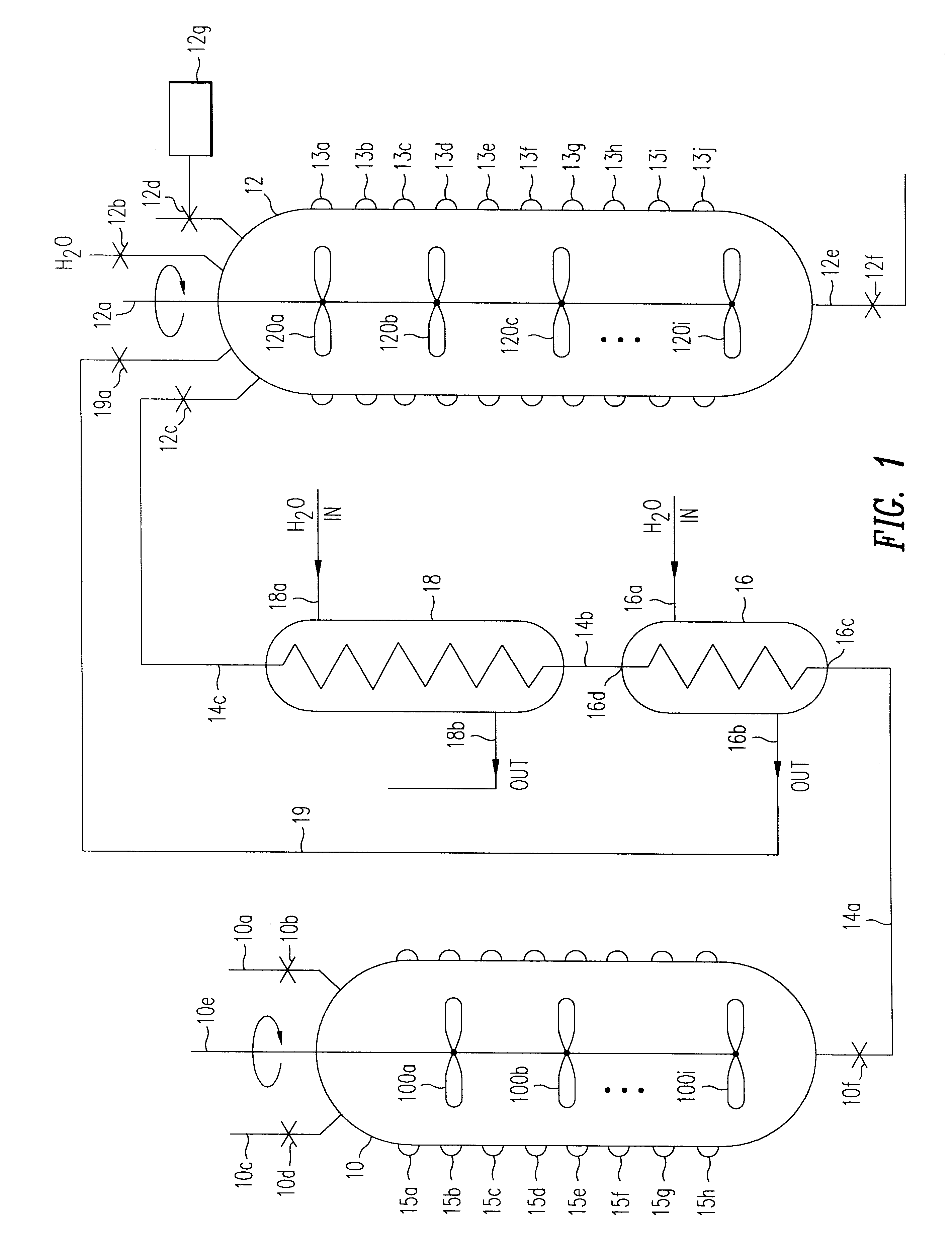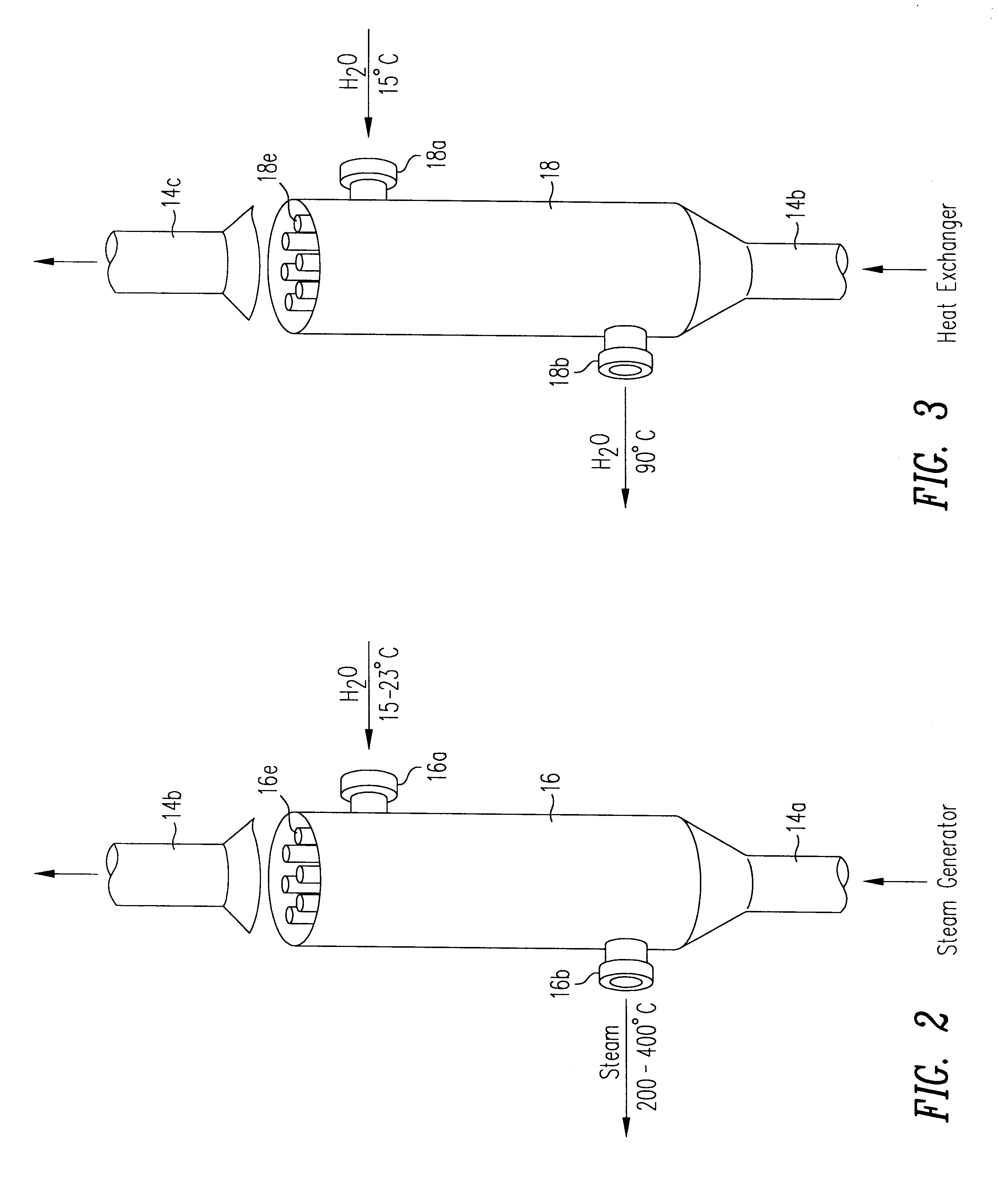Patents
Literature
1657results about "Pressure vessels for chemical process" patented technology
Efficacy Topic
Property
Owner
Technical Advancement
Application Domain
Technology Topic
Technology Field Word
Patent Country/Region
Patent Type
Patent Status
Application Year
Inventor
Apparatus and method for combinatorial chemistry synthesis
InactiveUS6045755AOvercome problemsImprove throughputEngagement/disengagement of coupling partsSequential/parallel process reactionsChemical synthesisProcess engineering
In a first embodiment, this invention includes an integrated robot apparatus for performing combinatorial chemistry synthesis protocols and having interchangeable work-stations, robot arm tools, and reaction vessels and reaction vessel arrays. The work-stations and tools are specialized to perform tasks necessary for the synthesis in a plurality of the reaction vessels grouped in a plurality of the reaction vessel arrays. Preferably, these elements function interchangeably because they have standardized sizes and conformation. The work-stations and tools include those for fluid dispensing or aspirating from individual reaction vessels or from all the reaction vessels in an array simultaneously. The reaction vessels can include, alternatively, stackable, ball-sealed reaction vessels, microtitre-like reaction vessel arrays, arrays of independent reaction vessels, valve-sealed reaction vessels, septum-sealed reaction vessels, and syringe reaction vessels. In alternative embodiments, this invention includes these work-stations, tools, reaction vessels and reaction vessel arrays in various combinations or sub-combinations either for use in partially integrated robots or for manual or standalone use.
Owner:LION BIOSCIENCE AG
Thermal processing furnace and liner for the same
ActiveUS8398773B2Easy to transportMinimized in sizeDomestic stoves or rangesRotary drum furnacesEngineeringReaction tube
A thermal processing furnace, comprising:a generally bell jar-shaped outer reaction tube having a central axis; andan open-ended inner reaction tube for accommodating a wafer boat holding a plurality of substrates, which inner reaction tube is substantially coaxially disposed within the outer reaction tube, thereby defining a gas passage between an outer wall of the inner reaction tube and an inner wall of the outer reaction tube,wherein at least one of the outer wall of the inner reaction tube and the inner wall of the outer reaction tube is provided with a flow deflector that protrudes radially from the respective wall into the gas passage.
Owner:ASM INTERNATIONAL
Process for producing single wall nanotubes using unsupported metal catalysts
InactiveUS6221330B1Continuous and efficient productionMaterial nanotechnologyFibre chemical featuresHydrogenGas phase
A process for producing hollow, single-walled carbon nanotubes by catalytic decomposition of one or more gaseous carbon compounds by first forming a gas phase mixture carbon feed stock gas comprising one or more gaseous carbon compounds, each having one to six carbon atoms and only H, O, N, S or Cl as hetero atoms, optionally admixed with hydrogen, and a gas phase metal containing compound which is unstable under reaction conditions for said decomposition, and which forms a metal containing catalyst which acts as a decomposition catalyst under reaction conditions; and then conducting said decomposition reaction under decomposition reaction conditions, thereby producing said nanotubes.
Owner:HYPERION CATALYSIS INT
High pressure apparatus and method for nitride crystal growth
ActiveUS20090301387A1Simple and cost-effective to manufactureIncrease pressureAfter-treatment apparatusPolycrystalline material growthControl systemPower control system
A high pressure apparatus and related methods for processing supercritical fluids. In a specific embodiment, the present apparatus includes a capsule, a heater, at least one ceramic ring but can be multiple rings, optionally, with one or more scribe marks and / or cracks present. In a specific embodiment, the apparatus optionally has a metal sleeve containing each ceramic ring. The apparatus also has a high-strength enclosure, end flanges with associated insulation, and a power control system. IN a specific embodiment, the apparatus is capable of accessing pressures and temperatures of 0.2-2 GPa and 400-1200° C., respectively.
Owner:SLT TECH
Loading table and heat treating apparatus having the loading table
ActiveUS7718930B2Thermal diffusionPrevent heat from spreadingDrying solid materials with heatMuffle furnacesEngineeringContamination
A thermal processing system has a processing vessel 4, a support post 30 stood on the bottom wall of the processing vessel 4, and a support table 32 internally provided with a heating means 38 and supported on the support post 30. A workpiece W is placed on the upper surface of the support table 32 and is subjected to a predetermined thermal process. The upper, the side and the lower surface of the support table 32 are covered with heat-resistant covering members 72, 74 and 76 to prevent the thermal diffusion of metal atoms causative of contamination from the support table 32. thus, various types of contamination, such as metal and organic contamination, can be prevented.
Owner:TOKYO ELECTRON LTD
Thermal processing furnace and liner for the same
ActiveUS20120186573A1Easy to transportReduce decreaseDomestic stoves or rangesRotary drum furnacesEngineeringBell jar
A thermal processing furnace, comprising:a generally bell jar-shaped outer reaction tube having a central axis; andan open-ended inner reaction tube for accommodating a wafer boat holding a plurality of substrates, which inner reaction tube is substantially coaxially disposed within the outer reaction tube, thereby defining a gas passage between an outer wall of the inner reaction tube and an inner wall of the outer reaction tube,wherein at least one of the outer wall of the inner reaction tube and the inner wall of the outer reaction tube is provided with a flow deflector that protrudes radially from the respective wall into the gas passage.
Owner:ASM INTERNATIONAL
Pressurization type method for manufacturing metal monoatomic layer, metal monoatomic layer structure, and pressurization type apparatus for manufacturing metal monoatomic layer
ActiveUS20190062917A1High surface coverageReduce surface roughnessChemical vapor deposition coatingPressure/vacuum vesselsProduct gasMaterials science
A pressurization type method for manufacturing elementary metal may include a metal precursor gas pressurization dosing operation of, in a state where an outlet of a chamber having a substrate is closed, increasing a pressure in the chamber by providing a metal precursor gas consisting of metal precursors, thereby adsorbing the metal precursors onto the substrate, a main purging operation of purging a gas after the metal precursor gas pressurization dosing operation, a reaction gas dosing operation of providing a reaction gas to reduce the metal precursors adsorbed on the substrate to elementary metal, after the main purging operation, and a main purging operation of purging a gas after the reaction gas dosing operation.
Owner:IUCF HYU (IND UNIV COOP FOUND HANYANG UNIV)
Pressure vessel
InactiveUS20030140845A1Prevent escapeAvoid creatingFrom gel statePolycrystalline material growthTemperature controlPressure transmission
A pressure vessel for processing at least one material in a supercritical fluid. The pressure vessel includes a self-pressurizing capsule for containing at least one material and the supercritical fluid in a substantially air-free environment, a pressure transmission medium surrounding the capsule for maintaining an outer pressure on the capsule, at least one heating element insertable in the pressure transmission medium such that the heating element surrounds the capsule, a temperature measurement means for measuring a temperature of the capsule, a temperature controller for controlling the temperature and providing power to the heating element, a restraint to contain and hold in place the capsule, the pressure transmission medium, and the heating element, and at least one seal between the restraint and the pressure transmission medium for preventing escape of the pressure transmission medium. Methods of using the pressure vessel, processing a material at high temperature and high pressure in the presence of a supercritical fluid within the capsule are also described.
Owner:SORAA
Single-wall carbon nanotubes from high pressure CO
InactiveUS7204970B2Promote rapid formationIncrease pressureMaterial nanotechnologyNanostructure manufactureDecompositionCarbon nanotube
The present invention discloses the process of supplying high pressure (e.g., 30 atmospheres) CO that has been preheated (e.g., to about 1000° C.) and a catalyst precursor gas (e.g., Fe(CO)5) in CO that is kept below the catalyst precursor decomposition temperature to a mixing zone. In this mixing zone, the catalyst precursor is rapidly heated to a temperature that results in (1) precursor decomposition, (2) formation of active catalyst metal atom clusters of the appropriate size, and (3) favorable growth of SWNTs on the catalyst clusters. Preferably a catalyst cluster nucleation agency is employed to enable rapid reaction of the catalyst precursor gas to form many small, active catalyst particles instead of a few large, inactive ones. Such nucleation agencies can include auxiliary metal precursors that cluster more rapidly than the primary catalyst, or through provision of additional energy inputs (e.g., from a pulsed or CW laser) directed precisely at the region where cluster formation is desired. Under these conditions SWNTs nucleate and grow according to the Boudouard reaction. The SWNTs thus formed may be recovered directly or passed through a growth and annealing zone maintained at an elevated temperature (e.g., 1000° C.) in which tubes may continue to grow and coalesce into ropes.
Owner:RICE UNIV
Process and apparatus for large-scale manufacturing of bulk monocrystalline gallium-containing nitride
ActiveUS20100031876A1Cost-effectiveSimple and cost-effective to manufacturePolycrystalline material growthFrom normal temperature solutionsCost effectivenessSingle crystal
A method for large-scale manufacturing of gallium nitride includes a process for reducing and / or minimizing contamination in the crystals, for solvent addition to an autoclave, for improving or optimizing the solvent atmosphere composition, for removal of the solvent from the autoclave, and for recycling of the solvent. The method is scalable up to large volumes and is cost effective.
Owner:SLT TECH
Plant and method for large-scale ammonothermal manufacturing of gallium nitride boules
InactiveUS20110100291A1Simple and cost-effective to manufactureSafe and cost-effectivePolycrystalline material growthFrom normal temperature solutionsNuclear engineeringGallium nitride
A method of operating a high pressure system for growth of gallium nitride containing materials. The method comprises providing a high pressure apparatus comprising a growth region and feedstock region. The high pressure reactor comprises a high pressure enclosure and is configured within a primary containment structure. The method includes operating an exhaust system coupled to the primary containment structure. The exhaust system is configured to remove ammonia gas derived from at least 0.3 liters of ammonia liquid.
Owner:SORAA
Basket process and apparatus for crystalline gallium-containing nitride
InactiveUS20100031873A1Avoid transportCost-effectivePolycrystalline material growthFrom normal temperature solutionsDopantCost effectiveness
An apparatus and associated method for large-scale manufacturing of gallium nitride is provided. The apparatus comprises a large diameter autoclave and a raw material basket. Methods include metered addition of dopants in the raw material and control of the atmosphere during crystal growth. The apparatus and methods are scalable up to very large volumes and are cost effective.
Owner:SORAA
Process and apparatus for growing a crystalline gallium-containing nitride using an azide mineralizer
ActiveUS20100031874A1Increase in sizeCost effectivePolycrystalline material growthFrom normal temperature solutionsDopantCost effectiveness
An apparatus and associated method for large-scale manufacturing of gallium nitride is provided. The apparatus comprises a large diameter autoclave and a raw material basket. Methods include metered addition of dopants in the raw material and control of the atmosphere during crystal growth. The apparatus and methods are scalable up to very large volumes and are cost effective.
Owner:SLT TECH
Apparatus and method for seed crystal utilization in large-scale manufacturing of gallium nitride
ActiveUS20100031872A1Cost-effectiveSimple and cost-effective to manufactureAfter-treatment apparatusPolycrystalline material growthCost effectivenessAdemetionine
An apparatus and associated method for large-scale manufacturing of gallium nitride. The apparatus comprises a large diameter autoclave or internally-heated high pressure vessel, a seed rack, and a raw material basket. Methods include effective means for utilization of seed crystals. The apparatus and methods are scalable up to very large volumes and are cost effective.
Owner:SLT TECH
High efficiency UV curing system
ActiveUS20060249078A1Improve uniformityMaterial analysis using wave/particle radiationElectric discharge tubesUltravioletRelative motion
An ultraviolet (UV) cure chamber enables curing a dielectric material disposed on a substrate and in situ cleaning thereof. A tandem process chamber provides two separate and adjacent process regions defined by a body covered with a lid having windows aligned respectively above each process region. One or more UV bulbs per process region that are covered by housings coupled to the lid emit UV light directed through the windows onto substrates located within the process regions. The UV bulbs can be an array of light emitting diodes or bulbs utilizing a source such as microwave or radio frequency. The UV light can be pulsed during a cure process. Using oxygen radical / ozone generated remotely and / or in-situ accomplishes cleaning of the chamber. Use of lamp arrays, relative motion of the substrate and lamp head, and real-time modification of lamp reflector shape and / or position can enhance uniformity of substrate illumination.
Owner:APPLIED MATERIALS INC
Production of Graphene and Nanoparticle Catalysts Supposrted on Graphen Using Laser Radiation
InactiveUS20120265122A1Eliminate generationProcess environmental protectionDomestic stoves or rangesDrying solid materials with heatInfraredUltraviolet
Methods and apparatuses to produce graphene and nanoparticle catalysts supported on graphene without the use of reducing agents, and with the concomitant production of heat, are provided. The methods and apparatuses employ radiant energy to reduce (deoxygenate) graphite oxide (GO) to graphene, or to reduce a mixture of GO plus one or more metals to to produce nanoparticle catalysts supported on graphene. Methods and systems to generate and utilize heat that is produced by irradiating GO, graphene and their metal and semiconductor nanocomposites with visible, infrared and / or ultraviolet radiation, e.g. using sunlight, lasers, etc. are also provided.
Owner:VIRGINIA COMMONWEALTH UNIV
High pressure apparatus and method for nitride crystal growth
ActiveUS8097081B2Simple and cost-effective to manufactureIncrease pressureAfter-treatment apparatusPolycrystalline material growthControl systemPower control system
Owner:SLT TECH
High Pressure Apparatus with Stackable Rings
InactiveUS20120137966A1Cost-effectiveSimple and cost-effective to manufactureAfter-treatment apparatusPolycrystalline material growthControl systemPower control system
A high pressure apparatus and related methods for processing supercritical fluids is described. The apparatus includes a capsule, a heater, at least one ceramic ring with one or more scribe marks and / or cracks present. The apparatus optionally has a metal sleeve containing each ceramic ring. The apparatus also has a high-strength enclosure, end flanges with associated insulation, and a power control system. The apparatus is capable of accessing pressures and temperatures of 0.2-2 GPa and 400-1200° C., respectively.
Owner:ELMHURST RES +1
High-pressure rotary bed gas-liquid mass-transferring and reaction equipment in superheavy force field
InactiveCN1428189AOvercome deficienciesOvercome defectsLiquid-gas reaction processesPressure/vacuum vesselsDrive shaftEngineering
The present invention relates to a gas-liquid mass transfer and reaction equiopment of high-pressure rotating bed in ultragravity force field. Said invention drive equipment is a magnetic drive equipment, including driving portion, driving magnetic stell protecting cover positioned on the exterior of the machine shell and driving magnetic steel and driving shaft which are placed in the protecting cover and driven portion, driven magnetic steel protecting cover positioned in the interior of the machine shell and driven magnetic steel and driven shaft which are placed in the driven magnetic steel protecting cover. The driving portion and driven portion are separatedy by means of magnetic isolation cover between both them. Said invention adopts band pressure design and measures of internal and internal magnetic steel protecting cover, magnetic steel cooling system, high-effective coating layer and others so as to raise mass transfer effect.
Owner:CHINA PETROLEUM & CHEM CORP +1
Process and apparatus for growing a crystalline gallium-containing nitride using an azide mineralizer
ActiveUS8323405B2Increase in sizeCost effectivePolycrystalline material growthFrom normal temperature solutionsDopantGallium nitride
An apparatus and associated method for large-scale manufacturing of gallium nitride is provided. The apparatus comprises a large diameter autoclave and a raw material basket. Methods include metered addition of dopants in the raw material and control of the atmosphere during crystal growth. The apparatus and methods are scalable up to very large volumes and are cost effective.
Owner:SLT TECH
High pressure apparatus with stackable rings
InactiveUS8435347B2Simple and cost-effective to manufactureIncrease pressureAfter-treatment apparatusPolycrystalline material growthControl systemPower control system
A high pressure apparatus and related methods for processing supercritical fluids is described. The apparatus includes a capsule, a heater, at least one ceramic ring with one or more scribe marks and / or cracks present. The apparatus optionally has a metal sleeve containing each ceramic ring. The apparatus also has a high-strength enclosure, end flanges with associated insulation, and a power control system. The apparatus is capable of accessing pressures and temperatures of 0.2-2 GPa and 400-1200° C., respectively.
Owner:ELMHURST RES +1
Apparatus and method for seed crystal utilization in large-scale manufacturing of gallium nitride
ActiveUS8430958B2Simple and cost-effective to manufactureIncrease pressureAfter-treatment apparatusPolycrystalline material growthCost effectivenessGallium nitride
An apparatus and associated method for large-scale manufacturing of gallium nitride. The apparatus comprises a large diameter autoclave or internally-heated high pressure vessel, a seed rack, and a raw material basket. Methods include effective means for utilization of seed crystals. The apparatus and methods are scalable up to very large volumes and are cost effective.
Owner:SLT TECH
Process for the preparation of ethylene copolymers, and their use as additives to mineral oil and mineral oil distillates
InactiveUS6509424B1Liquid carbonaceous fuelsChemical/physical/physico-chemical stationary reactorsCopolymerMineral oil
The invention relates to a process for the preparation of terpolymers of ethylene and at least 2 further olefinically unsaturated compounds by polymerization in a tubular reactor fitted with at least one side branch, wherein the fresh monomer components, which are introduced into the tubular reactor via the reactor inlet (the primary stream) or via the side branch or side branches (secondary stream or secondary streams), in each of the streams contain ethylene and at most one further olefinically unsaturated compound.
Owner:CLARIANT PROD DEUT GMBH
Rapid curing of thin composite material sections
A method of preparing and rapidly curing a composite material having a thin cross section. The composite material includes a mixture of solid particles, at least some of which are a material that reacts with CO2, such as a silicate, for example Wollastonite. The green material is prepared by mixing the solid components with a liquid such as water to form a slurry, and forming green bodies by placing the slurry in forms. The green bodies are reacted with CO2 to form cured composite materials having thin sections, in the range of 10 to 15 mm. Curing in periods of 6 hours has been demonstrated.
Owner:SOLIDIA TECH
Method for restoring the functionality of equipment subjected to heavy corrosion in a plant for the production of urea
InactiveUS6010669ASuitable width and thicknessEasy to carryUrea derivatives preparationChemical/physical/physico-chemical processesEngineeringHigh pressure
PCT No. PCT / EP95 / 03539 Sec. 371 Date Mar. 21, 1997 Sec. 102(e) Date Mar. 21, 1997 PCT Filed Sep. 8, 1995 PCT Pub. No. WO96 / 09136 PCT Pub. Date Mar. 28, 1996A method for repairing and restoring the functionality of equipment subjected to internal corrosion during its operation at high or medium pressure in a plant for the synthesis of urea. The method includes the cleaning of the corroded area, the formation of suitable supporting and / or holding surfaces for the placement of a new metallic lining, the formation of a new anticorrosive sealed off lining, obtained by positioning and welding flat elements and metallic plates which are suitably shaped and placed next to each other to become adapted to the internal profile of the equipment. The spaces and interstices below this new lining all communicate with at least one weep-hole present in the pressure resistant body. The entire repair is carried out through the manhole of the equipment and enables the restoring of its functionality for times similar to the normal duration of corresponding newly constructed equipment.
Owner:SNAMPROGETTI SPA
Vertical boat for heat treatment and method for producing the same
ActiveUS7484958B2Reduce material costsEasy to produceMuffle furnacesCharge supportsThermal treatment
A vertical boat 10 for heat treatment comprising a top plate 1, a bottom plate 2, and a column member fixed between the top plate and the bottom plate, a plurality of grooves 8 being formed in the column member, and a supporting part for horizontally supporting a wafer-like body to be treated being formed between the grooves, wherein, as the column member, two or more column members 3 and 4, each of which has a circular arc-shaped cross section and has the supporting parts in the shape of circular arc formed integrally inside by formation of the grooves, are cylindrically disposed, and the wafer-like body to be treated is inserted from the grooves of the column members and supported along a circumferential part of a lower surface thereof by the respective circular arc-shaped supporting parts. Thereby, there is provided a vertical boat for heat treatment that can effectively prevent a slip from being generated on a wafer and such during heat treatment, has low material cost, and is relatively easily produced.
Owner:SHIN-ETSU HANDOTAI CO LTD
Method for producing hydrogen peroxide from hydrogen and oxygen
InactiveUS6042804ASafe and efficientFull utilization of entire volume of reactorHydrogen peroxideGas-gas reaction processesPtru catalystLiquid medium
The invention relates to a method and apparatus for safely producing hydrogen peroxide by injecting dispersed minute bubbles of hydrogen and oxygen into a rapidly flowing liquid medium. The minute bubbles are surrounded by the liquid medium of sufficient volume for preventing an explosive reaction between the hydrogen and oxygen. The liquid medium is formed of an acidic aqueous solution and a Group VIII metal catalyst. Hydrogen is sparged into the flowing medium for dissolution of the hydrogen in the medium. Oxygen bubbles are reacted with the dissolved hydrogen for producing hydrogen peroxide. Preferably, the liquid medium has a velocity of at least 10 feet per second for providing a bubbly flow regime in the reactor. The invention allows the direct combination of oxygen and hydrogen while preventing propagation of an explosive condition within the reactor. The method and apparatus provide for the safe production of hydrogen peroxide with low manufacturing costs.
Owner:PRINCETON ADVANCED TECH
Efficient Production of Fuels
ActiveUS20090277799A1Efficient productionHydrogenBicarbonate preparationFluid phaseElectrical battery
Liquid phase processes for producing fuel in a reactor comprising the step of combining at least one oxidizable reactant with liquid water and at least one electrolyte to form a mixture and conducting a fuel-producing reaction in the presence of an electron transfer material, wherein the mixture permits the movement or transport of ions and electrons to facilitate the efficient production of the fuel. An alternative embodiment produces fuel in an electrochemical cell, the reaction characterized by an overall thermodynamic energy balance according to the half-cell reactions occurring at the anode and cathode. Energy generated and / or required by the system components is directed according to the thermodynamic requirements of the half-cell reactions, thereby realizing improved fuel production efficiency.
Owner:GAS TECH INST
Thermal reactor with self-regulating transfer mechanism
InactiveUS6241953B1Low transfer rateReduce the temperaturePipeline systemsStationary tubular conduit assembliesEngineeringPressure difference
A reaction product is formed and transferred from an autoclave to a receiving vessel at a laminar flow rate, using a self-adjusting transfer mechanism. A specific amount of water in the receiving vessel is heated and vaporized prior to the reaction product transfer to raise the pressure in the receiving vessel to saturation pressure. A flow passage between the autoclave and the receiving vessel is now opened, and a resulting pressure differential between the autoclave and the receiving vessel initiates the transfer process. A heat exchanger cools the reaction product flowing from the autoclave to the receiving vessel, where the amount of cooling is dependent upon the transfer rate of the reaction product. An increased transfer rate will cause the hotter reaction product entering the receiving vessel to increase the pressure inside the receiving vessel, thereby reducing, or self-adjusting, the transfer rate. The heat exchanger may also generate steam which is fed into the receiving vessel to adjust the pressure in the receiving vessel and thus adjust the transfer rate of the reaction product.
Owner:CERAMIC OXIDES INT
Features
- R&D
- Intellectual Property
- Life Sciences
- Materials
- Tech Scout
Why Patsnap Eureka
- Unparalleled Data Quality
- Higher Quality Content
- 60% Fewer Hallucinations
Social media
Patsnap Eureka Blog
Learn More Browse by: Latest US Patents, China's latest patents, Technical Efficacy Thesaurus, Application Domain, Technology Topic, Popular Technical Reports.
© 2025 PatSnap. All rights reserved.Legal|Privacy policy|Modern Slavery Act Transparency Statement|Sitemap|About US| Contact US: help@patsnap.com



